Society-Wide Newsletter: Spring 2020
Table of Contents
- Novel coronavirus/COVID-19 and SICB
- Message from the President, Beth Brainerd
- Message from the President-Elect, Melina Hale
- Message from the Program Officer, Jake Socha
- Message from the Treasurer, Miriam Ashley-Ross
- Message from the Secretary, Alice Gibb
- Integrative and Comparative Biology, Ulrike Müller, Editor
- Integrative Organismal Biology, Adam Summers, Editor
- Education Council Report, Lisa Whitenack, Chair
- Broadening Participation Report, Rita Mehta, Chair
- Public Affairs Committee Report, Sharri Zamore (Chair) & Thomas Sanger (Past-Chair)
- Student and Postdoctoral Affairs Committee, John R. Hutchinson, Chair
- Development Report, Lou Burnett, Development Committee Chair & SICB Past-President
- Society-Wide Elections: Candidate Biographies
Please vote in the Spring 2020 Elections (candidate biographies can be found below). The deadline is April 19th, and the ballot can be found in the link provided here. http://burkclients.com/sicb/elections/2020.php
Novel coronavirus/COVID-19 and SICB
In addition to the general disruption and tragic illness and loss of life, we are aware that several scientific societies have cancelled their meetings this spring. There are currently many unknowns in regard to the true epidemiology of this outbreak, but we will likely know more by the end of summer when SICB abstracts are due. We will make our decisions on the best possible evidence and will keep everyone informed just as soon as we can to avoid any last minute changes. Please also note that NSF has released a Dear Colleague Letter inviting Rapid Response Research (RAPID) proposals “to conduct non-medical, non-clinical-care research that can be used immediately to explore how to model and understand the spread of COVID-19, to inform and educate about the science of virus transmission and prevention, and to encourage the development of processes and actions to address this global challenge.”
Message from the President, Beth Brainerd
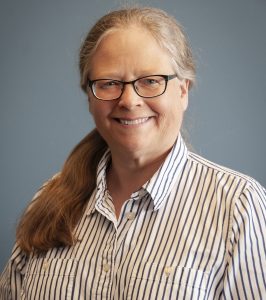
The SICB Annual Meeting in Austin was a great success, thanks to our hardworking Program Committee, dedicated staff at Burk & Associates Inc., and all of our SICB members who attended and shared their science. Special thanks to our Program Officer, Susan Williams, who completed her term of service at the end of the Austin meeting, and thanks to our new Program Officer, Jake Socha, for taking on this huge responsibility!
At the 2020 meeting in Austin, SICB introduced a number of new initiatives related to the SICB Annual Meeting Code of Conduct:
- New online reporting system for Code violations
- Trained Code of Conduct Safety Allies
- Trained Safety Coordinators at the SICB Registration Desk
- Poster with highlights of the Code of Conduct near the Registration Desk
- QR codes for accessing the full Code of Conduct and the reporting system
- Code of Conduct business cards with QR codes handed out with name badges
For the first time, SICB has published a Code of Conduct Transparency Report. SICB has had an Annual Meeting Code of Conduct since the 2017 meeting and a Code of Conduct with investigation procedures and listed disciplinary actions since the 2018 meeting. The purpose of the Transparency Report is to inform the SICB community about the number and types of reported Code of Conduct violations at the annual meeting, and to give a sense of how the Code of Conduct functions.
The SICB journals, Integrative and Comparative Biology and Integrative Organismal Biology, stand alongside our Annual Meetings as the core activities of SICB. Under the exciting leadership of Editor Ulrike Müller, Integrative and Comparative Biology is leading the way in implementing inclusive practices for scientific publishing, and ICB continues to publish synthetic and influential papers from our symposia and abstracts for the annual meeting. This past January marked the first anniversary of SICB’s new open-access journal, Integrative Organismal Biology. Editor Adam Summers, the IOB Editorial Board, and IOB Outreach Associates have done a superb job launching this new outlet for integrative biology research. IOB makes the most of being an open-access journal by publicizing every paper through a dedicated blog post by an Outreach Associate and social media promotion. This outreach publicity for every paper is a great perk of publishing your work in IOB. Altmetric scores how much attention papers get, and most IOB papers are in the top 5% of all research outputs scored by Altmetric. The missions of our journals are nicely complementary, and support SICB’s mission to promote the scientific excellence encompassed by our Society. Sign in or create an account with Oxford University Press to manage all ICB and IOB alerts in one place!
In the coming year, SICB will be adding a new position, “Communications Editor.” The Communications Editor will be responsible for all Society communications, such as this newsletter, the SICB web site and the monthly Member Updates. We expect the Communications Editor position to include a similar time commitment and level of responsibility as our ICB and IOB Journal Editor positions, and as such will include a small stipend to acknowledge the level of commitment required. We expect this position to be filled by a SICB member who has substantial experience with the Society. Stay tuned for the announcement of a Society-Wide search to fill this Communications Editor position!
Message from the President-Elect, Melina Hale
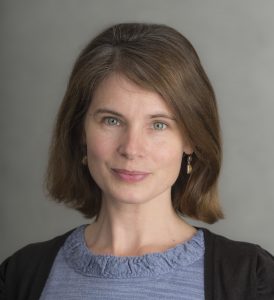
As covered in the Message from the President, SICB is taking significant strides for promoting diversity and inclusion and making the annual meeting welcoming to all attendees. An important part of this effort is to ensure that volunteer service for SICB is widely representative of membership and open to all.
SICB runs on volunteer service of members. By chairing sessions, running for divisional or society-wide office, serving on committees and boards, participating in outreach or serving in other ways, we are all working together for the Society and for research and education in integrative and comparative biology.
If you are interested in volunteering to serve, please let us know through the SICB volunteering to serve form. Society officers will review this list regularly and reach out to you with service opportunities.
Whether or not you volunteer your time, another great way to support the society is through donations, which are critical to the financial health of SICB. Please see the treasurer’s report for more information on the SICB Donations form.
Message from the Program Officer, Jake Socha

Program Officer’s Report, Jake Socha, Program Officer
Hello everyone, I’d like to introduce myself as your new Program Officer. For the past year and a half, I have been serving in the elect position, assisting outgoing Program Officer Susan Williams. I can tell you firsthand that Susan did a phenomenal job, deserving a pat on the back for her never-ending energy to an exhausting position. She was a calm hand working nearly silently behind the scenes, taking care of the big picture and every little detail along the way. She poured her heart into the job, reflected in the quality of the conference. As Susan moves out, we welcome in Thom Sanger as the new Program Officer Elect. I look forward to working with Thom for the next few years.
While we’re at it, Lori Strong and the rest of her team from Burk & Associates Inc. deserve high praise for their efforts. Lori is the glue that keeps everything together, and we’re not sure what we’d do without her.
Success in Austin. Thanks to all of you who attended and participated in the 2020 SICB meeting in Austin. It seemed to be a big success. The conference kicked off in grand fashion with an outstanding plenary lecture from SICB member Sheila Patek. She interwove stories of her research on extreme movements in biology with experiences in dealing with the public and Congress, and also gave us insight into her personal views on the impact of her science. To many in the room, it was one of the most striking talks seen in a long time. A total of 1,836 presentations were given, with 956 talks in 140 contributed oral sessions, 125 talks in 11 symposia, 750 posters, and 5 special lectures. It’s no surprise that we return home both rejuvenated and yet a bit exhausted from the whirlwind energy of the conference.
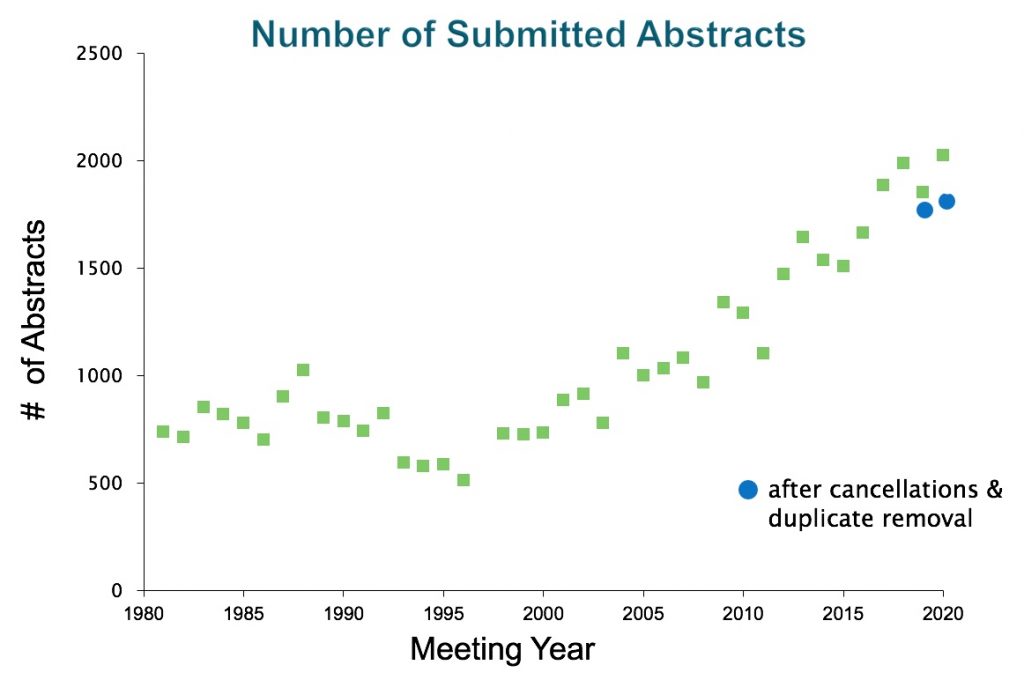
Our leadership has put increased emphasis on improving the climate of diversity and inclusion, which was noticed by many of our attendees as contributing to their positive experience at the conference. As of last year, we adopted formal Guidelines for Broadening Participation in SICB’s Leadership, Programs, and Awards to help ensure that our speakers represent our diverse membership to the fullest extent possible. Other notable efforts include support for workshops by the Broadening Participation Committee (on the topic of a sense of belonging and overcoming obstacles for people of color) and by the Public Affairs Committee (on perspectives on LGBTQ+ in academia), and adding the option of pronouns on our name badges. This was the first year for such an option on badges, and the response to it was overwhelmingly supportive. These events and efforts were empowering for many people, reflecting SICB’s values of diversity.
Notes from the member survey. We received substantial feedback from our members about this year’s conference, and I want to personally thank the 460 individuals who completed our Post-Meeting Survey. Your feedback is really important—it helps drive changes in the way we do things to continually improve the climate and keep the society at the cutting edge. The Executive Officers and Committee greatly value the insight, and use the feedback as a springboard for discussion. In recent years your feedback has led to things like pronouns on badges, free child care, and a mother’s room. The latter two are especially popular with members with young families because they enable the conference to be experienced more fully, and for some, even at all. Of relevant respondees, all judged the event to be somewhat (40%) or very (60%) family friendly.
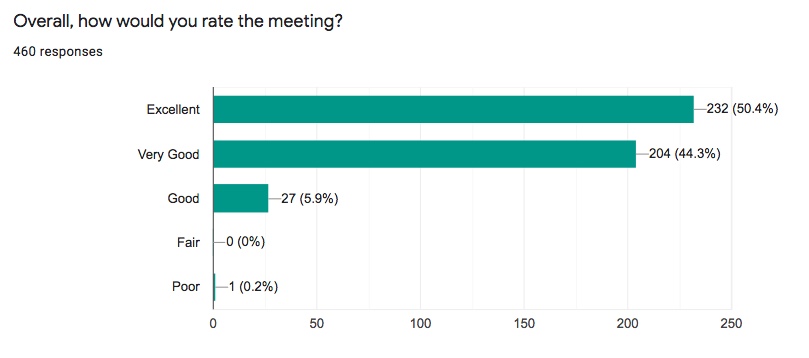
The overall response to the quality of the meeting was very positive (see graph above). It’s extremely encouraging that 99% of the respondees rated the meeting as good to excellent. That’s almost shockingly high. (Perhaps an alternative explanation is that the survey response pool didn’t represent the full population well, but we have to focus on the data we have, right?) SICB continues to be a favorite for many, with most respondees saying that the conference is much better (19%), better (44%), or equal (31%) compared with meetings of other societies.
The poster sessions were well received, with some people noting that there was more space than in some previous years. These sessions are always vibrant—they are partly the lifeblood of the conference. They tend to be well-attended, which is great, but it usually makes for a boisterous and sometimes loud and crowded experience. One suggestion was to ask people who get caught in a group conversation to politely shift to another location, to give more room for those who are still wandering and looking at posters. It might help the presenters as well. Also take note that posters are usually put up a few hours in advance of the sessions, so if you want to wander around and view in peace and quiet, feel free to check them out in advance. One complaint about the poster sessions was that the drink prices were too high. We do as much as we can to keep costs low, but we are generally at the mercy of the venue with their prices.
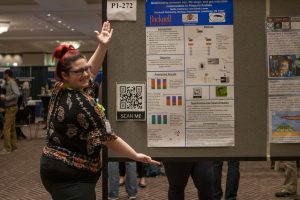
The use of social media by members continues to be mixed. Of the respondees, about half (48%) used some form of social media, with the lion’s share of usage going to Twitter (80%) and then Facebook (27%) and Instagram (20%). The shift away from Facebook toward Twitter has been slowly building over the past few years. Of the non-users of social media, some (23%) wish they had time to use it, whereas others do not feel savvy enough to use it (15%) or don’t see its utility for professional communication (32%). Officially, SICB’s view is all-in; we are in favor of our members spreading the word about our science in any way possible. The more the merrier. We don’t, however, force it upon our members. Keep in mind that we communicate with members via multiple avenues, and that we’ll never provide important information solely through social media. Also, for the second year, we have had a formal opt-out policy for social media (meaning that presenters must show ‘no tweet’ or ‘no photos’ icons if they wish to opt out of social media). The vast majority of respondees (93%) were neutral (19%), comfortable (32%), or very comfortable (41%) with this policy. Please help spread the word about its usage, and feel free to engage us if you encounter problems.
Speaking of not forcing things on our members, we continue to provide both electronic and paper versions of the meeting abstract book. Most members appear to primarily use the app; only 11% did not use it in Austin. Despite the high numbers of users, there are still a number of issues with the app that need to be improved. The phone/tablet app has been available since 2013, and each year we have taken suggestions from our members and attempted to make the app better. Our goal is for the app to be a seamless experience; like a referee, it’ll be best when no one notices it. Personally, I have been using it for a number of years, and while it has gotten substantially better over time, we will aim for better for 2021. So thanks for all of your suggestions on improvements—we will work with the developers to implement as much change as possible.
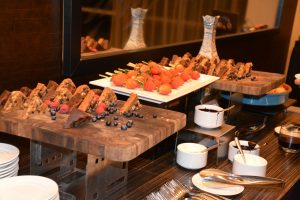
Opinions about the socials varied widely. For socials that have tended to be off-site in recent years, some people appreciated the hotel venue for being more low-key and easy to access, whereas others were disappointed in the more sterile setting. One universal complaint was that food ran out quickly and drink prices were too high. Both of these are in some way related to SICB’s aim of low cost of registration. Refreshments and catering tend to be exorbitant at our venues, and it’s difficult to impossible to provide copious food or cheap drinks on a tight budget.
Student participation at SICB continues to be strong, and we had 1,197 students (2 high school, 402 undergraduate, 793 graduate) register for the meeting, with 2,278 registrants overall. In total, 729 presentations were given by students, representing about 40% of all presentations. Impressive! Many of these students were able to attend with support from our travel awards programs for annual meeting attendance. We continue to encourage our Full Members to bring students to this meeting, and thank all of you who have supported students in any way.
Thanks to our symposium organizers. We would like to thank the organizers of the 12 symposia in Austin: James McClintock, Charles Amsler, Bill Baker, Art Woods, Amy Moran, Gareth Fraser, Darrin Hulsey, Tyler Stevenson, Lynn Martin, Haley Hanson, Virginia Hayssen, Teri Orr, Ulrike Muller, Simon Poppinga, Anna Westermeier, Justin Jaworski, Chris Clark, Karen Burnett, Jonathon Stillman, Don Mykles, David Durica, Henry Astley, Lance McBrayer, Eric McElroy, Diego Sustaita, Lindsay Waldrop, Jonathan Rader, Yuxiang Liu, and Sarah Burmeister. Look to the upcoming issues of ICB to see the papers that result from these symposia!
Upcoming meeting: Washington D.C. 2021. Check out the “Upcoming meetings” web page for updates on the venue for the 2021 Washington D.C. meeting and program throughout the coming year. And you can look ahead to see the future venues — we have confirmed the locations through 2025.
Tentative 2021 symposium schedule
Monday, January 4
- SICB-Wide Symposium: Blinded by the light: Effects of light pollution across diverse natural systems, Organizer: Meredith Kernbach
- Genomic perspectives in comparative physiology of mollusks: Integration across disciplines, Organizers: Omera Matoo and Maurine Neiman
- Physical mechanisms of behavior, Organizers: Patrick Green and Alejandro Rico-Guevara
Tuesday, January 5
- SICB-Wide Symposium: Biology beyond the classroom: Experiential learning through authentic research, design, and community engagement, Organizers: Alexandria Hansen, Patrice Connors, Hayley Lanier
- An evolutionary tail: Evo-Devo, structure, and function of post-anal appendages, Organizers: Janneke Schwaner, Tonia Hsieh, Craig McGowan
- Spatiotemporal dynamics of animal communication, Organizers: Kim Hoke, Nate Morehouse, Sara Wasserman
Wednesday, January 6
- SICB-Wide Symposium: The integrative biology of pigment organelles, Organizers: Florent Figon, Jérome Casas, Leila Deravi
- The biology of sticky: Adhesive silk, fiber, and glue biomaterials across Eukaryota, Organizers: Mercedes Burns and Sarah Stellwagen
- Sending and receiving signals: Endocrine modulation of social communication, Organizers: Karen Maruska and Julie Butler
Thursday, January 7
- Metachronal coordination of multiple appendages for swimming and pumping, Organizers: Margaret Byron, David Murphy, and Arvind Santhanakrishnan
- Biology’s best friend: Bridging disciplinary gaps to advance canine science, Organizers: Caleb Bryce and Ana Jimenez
- Manakin genomics: comparative studies of evolution and behavior in a unique clade of birds, Organizers: Ignacio Moore and Blake Jones
In addition to these symposia, we will be holding a special session in honor of George Gilchrist, who recently passed away after battling cancer. Perhaps best known for his support of SICB members as a long-time program officer at NSF, he was a friend and mentor for many in the Society, particularly those in DEE.
Call for new symposia for Phoenix 2022. Looking ahead to the 2022 Annual Meeting in Phoenix, AZ: It is already time to start planning symposia for the 2022 meeting in Arizona. The deadline for symposium proposals for the 2022 meeting is August 24, 2020. SICB welcomes symposium proposals from folks at all career stages, including junior faculty, postdocs, and graduate students. If you are thinking about organizing a symposium for 2022, contact your divisional program officer(s) and cc me (ProgramOfficer@sicb.org) to discuss the appeal of your ideas, and ask for suggestions that could help ensure broad appeal across the Society. The SICB SYMPOSIA POLICIES AND GUIDELINES are a good place to get started and full of helpful information on how to pitch your idea. Keep in mind that SICB has recently begun reimbursing symposium speakers for the full meeting registration fee upon submission of the manuscript to ICB. This is just small incentive to encourage symposia at the meeting to support the journal and society.
Message from the Treasurer, Miriam Ashley-Ross
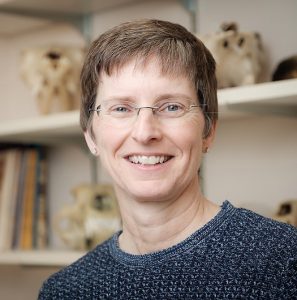
SICB continues to be on sound financial footing. Our assets total nearly $2.1 million dollars, most of which consists of investments allocated to our various named funds. Our guiding principles in developing each year’s budget are (1) the Society should be “in the black” each year; (2) the registration fees for the Annual Meeting are set so that the meeting breaks even; and (3) the membership dues are set to fund the non-annual-meeting expenses of the Society.
Because SICB’s finances use a Fiscal Year that runs from July 1 – June 30, the most recent FY that we have final numbers for is FY 2019. The Society’s overall net value increased by slightly over $46,000 in that fiscal year, attributable to gains in our investments. Breaking down the numbers, the revenues from the annual meeting were slightly below the costs; this is expected, because some of the costs are offset by transfers from the named funds that support specific meeting-related endeavors. For example, the Mangum Fund for Student Support provided approximately $12,500 to partially cover student rooms at the annual meeting (the rest of the cost coming from the general operations budget). At the 2019 Annual Meeting, the Executive Committee approved a change in the amount allowed to be transferred from the named funds from 4% of value to 3.5% of the trailing 5-year average fund value, due to volatility in the stock market during 2018. Transfers from named funds and Divisions bring us to just above the “break even” point for the Annual Meeting; further increases in the overall value of Society assets results from investment gains over and above the 3.5% that may be drawn from the funds annually.
Based on data from the final FY 2019 numbers the Finance Committee (Treasurer, President, Past President, President-Elect, and Executive Director) decided to increase the budget for Mangum student support at the 2021 Annual Meeting from $40,000 to $60,000. We also have allocated $10,000 for costs associated with Code of Conduct training and enforcement. Other costs for the meeting vary based on the venue, and fluctuate slightly from year to year. The Executive Committee approved the FY 2021 budget at the Austin annual meeting.
While SICB is in good financial shape, we are always looking to improve our ability to support various endeavors. Our main vehicle for that is the named funds (e.g., the Bartholomew fund, Moore fund, Bern fund, etc.) that are typically administered by individual Divisions. All except for the D. Dwight Davis fund and the Wenner Strong Inference fund are below their targets. Members can check with their Division chairs for updates on Divisional needs and opportunities. A focus of the Society as a whole for the past three years has been the Double Your Dues for Student Support campaign (DYD), which asks all members, of any membership level, to contribute, in addition to their regular dues, an amount equal to one year’s dues over a period of three years. These funds are targeted to enhance the Grants In Aid of Research/Fellowships for Graduate Student Travel, which support competitive research grants for SICB student members. Now that we are in the final year of this effort, it is appropriate to ask, “Is it working?” Unfortunately, the short answer is “No.” SICB has around 2,500 members, and the total dues receipts in FY 2019 were $164,214. If everyone were contributing to DYD, we would expect close to 2,500 donations per year (~7,500 over the three-year period), which would total approximately $55,000 annually. What are the actual numbers? Over 3 years, we have had 166 donations for $10,366. Note that these are specifically DYD donations, and do not include donations made by members for other purposes. So, what to do? The SICB leadership has been trying to increase these resources through voluntary donations in an effort to keep meeting registration costs down. If these are unsuccessful, it may be necessary to raise registration fees and/or annual dues to keep pace with increased demand for student support. Respectfully submitted, Miriam Ashley-Ross
Message from the Secretary, Alice Gibb
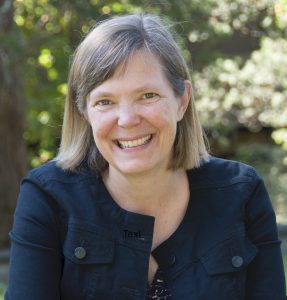
Just a brief reminder that the spring elections are upon us. We have candidates for President, Treasurer and Member at Large at the society-wide level, and almost every division is also electing new officers. ALL full, post-doctoral, and graduate student members can vote, and the membership year runs through the spring. That means if you paid your membership in spring, summer, or fall of 2019 (including those who paid membership as part of the 2020 meeting registration), then you are eligible to vote! We welcome participation by all members, especially graduate students. Please read the candidate biographies and then choose the candidates that you feel will help lead SICB into a bright, productive, and inclusive future!
Please feel free to contact me at secretary@SICB.org if you have any questions about the spring 2020 elections other aspects of the business of the society.
Integrative and Comparative Biology, Ulrike Müller, Editor
Supporting SICB authors and symposium organizers. In 2020, Integrative and Comparative Biology continues toward its goal of supporting SICB authors in communicating and disseminating their research. At the Austin 2020 meeting, ICB co-hosted a well-attended workshop on science communication facilitated by a team of communication experts (Eric Tytell – AAAS Mass Media Fellow and free-lance science writer, Kathryn Knight – News and Views editor at Journal of Experimental Biology, Ulrike Müller – editor in chief at Integrative and Comparative Biology, Jason Macrander – Social Media editor at Integrative and Comparative Biology). At the workshop, symposium speakers and conference presenters were learning about how to share their science with a wider audience through social media, press releases, radio or podcasts. ICB also co-hosted a workshop for future symposium organizers to support organizers in planning their 2021 symposia.
Second Editor’s Challenge and Virtual Symposia. ICB is launching the Second Editor’s Challenge. We aim to organize a virtual workshop and symposium and we are currently looking for ideas on suitable topics. The first Editor’s Challenge was “define stress”. If you have an idea for a topic or if you would like to bring together a group of people around a cutting-edge challenge, please reach out to ICB. We offer you ICB’s resources to organize a virtual workshop and the opportunity to publish in ICB.
Integrative Organismal Biology, Adam Summers, Editor
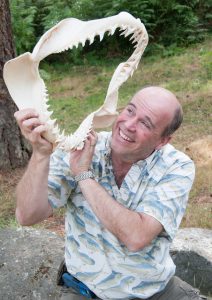
The 2020 meeting in Austin was an opportunity to update the membership on progress with Integrative Organismal Biology since the launch of the journal one year ago. In 2019 we had 38 manuscripts submitted to the journal with authors spanning every SICB division. Many of the published articles have done well with AltMetrics, and according to Oxford we are doing very well in this regard compared to other journals. We have another year of introductory pricing for SICB members at $1200 per article. Our expectation is that we will have more than 50 articles for 2020. The first volume of the journal closed on the 1st of January 2020 and we are now working on volume 2. We publicized our policy of redacting reviews at the 2019 meeting and got both positive and vehement negative feedback. We had planned to write an editorial on the topic, but it turned out that the number of reviews we had to redact went from about 30% to less than 5%.
There has been great cooperation between IOB and ICB. Manuscripts have been passed over from ICB to IOB by Ulrike Muller, the editor-in-chief of ICB. That direct help is nice, but more significant is the intellectual synergy, with a shared vision of inclusivity and diversity, as well as new ways to communicate science. We are looking forward to planning virtual symposia that will challenge our ideas about how we push science forward and will feed manuscripts to both journals.
We have no ISI impact factor, and will not have one for at least 4 years. We will shortly be submitted by OUP for coverage in PubMed, and we expect this application to be successful. We are already covered by Google Scholar, and in another year they will have enough data to give us a journal-based impact factor.
The launch year was wonderfully successful and we look forward to the SICB membership continuing to support the society by contributing excellent science to the journal. This will establish us early as a force in the world of organismal biology.
Education Council Report, Lisa Whitenack, Chair
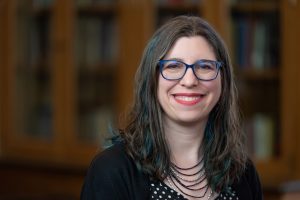
John A. Moore Lectureship. We were very excited to have Emily Graslie as our John. A. Moore Lecturer this year, where she spoke about the world of science education and communication in her talk “Prehistoric Road Trip: Crafting a Story 2 Billion Years in the Making.” Emily is the Chief Curiosity Correspondent at the Field Museum in Chicago and host of the extremely popular YouTube channel The Brain Scoop. After moving to Montana to pursue an undergraduate degree in fine art painting, she fell in love with the campus vertebrate research collection as a place of artistic inspiration. What started off as a passionate volunteering position within a small museum eventually transformed into a full-time career as an advocate for these under-appreciated repositories. Emily spoke about how this journey led to her new PBS series (“Prehistoric Road Trip”) and lessons for communicating science with the masses. Look for the series to air this summer on your local PBS station.
As a reminder, any SICB member can nominate speakers for the Moore Lecture. The aim of this lecture series is to invite a nationally-recognized speaker who does not generally attend the SICB annual meeting to offer the society a new perspective on science education. Nominations should include a curriculum vitae, a one-page description of the nominee’s contributions to science education, and any additional supporting materials related to the nominee’s achievements in science education, along with up to three recommendation letters. A file including nominated candidate materials will be kept for consideration for a total of three years, and candidates can update any component of the file before consideration for that year’s award. The Chair of the Educational Council may authorize funds to help support the winner’s attendance at that year’s meeting. Please send nominations for this award to the Chair of the Educational Council (Chair.EdCouncil@sicb.org). The deadline for nominations is 23 August 2020.
Teaching and Learning X (TAL-X) workshop. This year’s Teaching and Learning X (TAL-X) workshop was “Teaching critical thinking about science and technology: GMOs as a case study”. Participants were walked through methods to engage their students in critical thinking in the context of bioethics. Statements about GMO safety were used as a test case, where participants role-played the part of students in a bioethics course. The workshop was organized by Bram Lutton and co-lead by Steven Druker, Executive Director of the Alliance for Bio-Integrity.
We have already started receiving proposals for the 2021 TAL-X. If you have an idea for a terrific workshop, please contact us! To begin coordinating each annual workshop, applications include the following specific information, along with any foreseeable logistical considerations: for example, space/location, timing, invited participants, refreshments, and an itemized budget. Past TAL-X workshops have generally been 1.5-2 hours in length, in the evening, and they generally include refreshments; however, this is an informal and flexible opportunity and all ideas are welcome! The Chair of the Educational Council may authorize funds to help in support of the TALX workshop at each year’s meeting. Please send application materials to the Chair of the Educational Council (Chair.EdCouncil@sicb.org). The deadline for applications is June 1st, 2020.
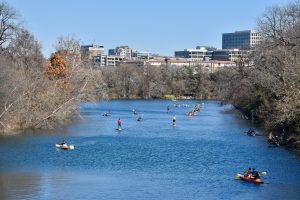
Patricia Morse Award for Excellence and Innovation in Science Education. The M. Patricia Morse Award for Excellence and Innovation in Science Education is an annual prize awarded to a SICB member at any career stage for significant achievement in science education. This award honors the achievements and contributions of M. Patricia Morse, President of SICB in 1985, to the Society especially in the area of education. The 2020 Morse Award was received by David Epel of the Hopkins Marine Station and the Department of Biological Sciences at Stanford University. While David is perhaps best known to SICB members for his scientific research on sea urchin embryos, he also has a long history of bringing sea urchin embryos into the education realm, including the Sea Urchins for Education and Virtual Urchin websites and the textbook Ecological Development Biology. He also has had a successful career mentoring undergraduate researchers and was awarded the Allan V. Cox Medal for Faculty Excellence in Fostering Undergraduate Research in 1995.
If you know of an outstanding educator who is a SICB member, please nominate them! The SICB Educational Council will accept and evaluate applications as well as nominations for this award. Nominations should include a curriculum vitae, a one-page description and any supporting materials related to achievements in science education, and three letters of support. In lieu of an oral presentation, awardees are expected to write a brief article for the SICB newsletter or journal describing their achievements or any important aspect of science education. Each year’s winner will be recognized prior to the introduction of the Moore Lecturer, and the Chair of the Educational Council may also authorize funds to help support the winner’s attendance at that year’s meeting. Please send nominations for this award to the Chair of the Educational Council at Chair.EdCouncil@sicb.org. The deadline for nominations is 23 August 2020.
Looking ahead. The Educational Council is already working on events for SICB 2021. We are happy to be assisting with the symposium “Biology Beyond the Classroom: Experiential Learning through Authentic Research, Design, and Community Engagement”. One of the Educational Council’s responsibilities is to assist in the development of science education and communication symposia. Please shoot us an email (in case you missed it, it’s Chair.EdCouncil@sicb.org) if you are thinking about education-based symposia for future annual meetings. We are also working on reorganizing and reimagining the Research and Education Resources (RER) database. Please stay tuned for updates!
Finally, the 2020 SICB annual meeting saw a changing of the guard for the Educational Council, as Bram Lutton finished his service as chair. Bram has been a member of the Educational Council since 2013 and has been instrumental in the success of the TAL-X workshops and bringing in speakers for the Moore Lecture. On behalf of the Educational Council, thank you for all of your work!
Broadening Participation Report, Rita Mehta, Chair

The goal of the Broadening Participation (BP) committee is to increase the diversity of SICB and the field of integrative biology at all career stages, in terms of gender/gender identity, sexual orientation, race/ethnicity, ability/disability, and socioeconomic background. The BP committee works to increase the diversity of SICB members through the following activities: 1) providing travel awards to help underrepresented attendees defray the costs of attending the annual meeting, 2) supporting a workshop with a topic that fosters inclusivity and professional development, 3) hosting an evening social at the SICB meeting, and 4) organizing a one-on-one meeting mentorship program. These events and programs are open to all SICB members.
The Broadening Participation Committee met during the annual meeting in Austin, Texas to discuss committee membership, maintenance and potential expansion of the BP Meeting Mentorship program, and scoring rubric for the BP travel awards. Throughout the coming year, the committee will continue to benefit from the participation of members Nick Burnett, Kaushik Jayaram, Gabriel Rivera, Shayle Matsuda, and Crystal Reynaga, our newest addition to BP. BP and SICB leadership would like to thank Karen Maruska for her service over the last few years and her contributions which have improved our activities.
BP Travel Awards bolstered by the Gans Collections and Charitable Fund. The BP Committee was fortunate to receive a generous donation from the Gans Collections and Charitable Fund, Inc., a foundation established by renowned vertebrate morphologist and functional anatomist Carl Gans, to provide additional support for our travel award program. To learn more about the foundation and additional opportunities for conference travel grants, please visit http://carlgans.org. For the 3rd consecutive year this donation has allowed the BP committee to double the number of travel awards given. For 2020, the committee offered travel awards of up to $500 to 42 applicants, 29 of whom were women. Our awardees were of Latin X descent, Black/African American descent, and Native American/Pacific Islander descent and represented varied career stages from undergraduate to newly appointed faculty. Travel award recipients were welcomed at an evening Meet-and-Greet on January 3rd, and their accomplishments were celebrated at the BP award social on Sunday, January 6th at the Marriott, our conference venue.
Annual Broadening Participation Meeting Mentorship Program at the 2020 meeting. In 2018, the Broadening Participation committee started the BP Meeting Mentorship program. The program provides all SICB members who are underrepresented and/or who enhance diversity within their field, region, or institution with the opportunity to be matched with a “meeting mentor” – a more experienced student, post-doc, or faculty member who has attended SICB several times. Mentors were able to help their mentees make the most of the meeting, offer tips on which sessions and events to attend, provide career-related advice, and/or attend events with their mentees to help expand their professional network at SICB. The positive response from our members encouraged BP to grow the mentorship program in 2019. This year, there was a glitch with our communication with potential mentors and mentees and we could only match a small fraction of our interested members. We apologize to those who indicated they were interested in participating and were not matched with a mentor or mentee. BP has identified the problem and we have a plan to streamline the communication for this program on the website. The matching survey and additional information about the program will be posted next fall on the Broadening Participation web page at http://www.sicb.org/meetings/bp/.
Broadening Participation Workshop at the 2020 Meeting in Austin, TX. We deviated from our usual professional development workshop in Austin to experience the film screening entitled, “Can We Talk? Difficult Conversations with Underrepresented People of Color: Sense of Belonging and Obstacles to STEM Fields. This film was directed and produced by Dr. Kendall Moore, a Professor in the departments of Journalism and Film Media at the University of Rhode Island. “Can we Talk?” features raw and unfiltered conversations about the struggles of underrepresented people of color on their paths to success. The film is powerful in its sobering ability to capture the emotional experience of minority students navigating STEM disciplines, who are often met with discrimination, discouragement, and stereotype threat. The film also shows how sometimes even simple gestures from mentors or those who have had much experience navigating various educational systems can help dissipate anxiety and may encourage feelings of stability, determination, and a sense of belonging. Dr. Moore introduced the film and facilitated an intimate discussion with the attendees afterwards.
As a SICB member and an underrepresented minority in STEM, I personally had never encountered an environment that felt as inclusive, encouraging, and accepting as the one Dr. Moore created after her film screening. Dr. Moore and her film helped facilitate an environment of camaraderie, where many could share their personal experiences in academia from the undergraduate to faculty level. There was consensus among BP members that these types of environments are valuable and important in creating dialogue around these issues to retain and recruit talented developing scientists. If you happened to be present at the film screening and / or participated in the discussion after the screening, BP would be grateful for any feedback you might have for emulating spaces that foster encouragement and a sense of belonging during future SICB meetings (chair.bpc@sicb.org).
Public Affairs Committee Report, Sharri Zamore (Chair) & Thomas Sanger (Past-Chair)

The SICB Public Affairs Committee (PAC) has had an exciting annual meeting. At this meeting we hosted a workshop that drew attention to the many unique experiences and challenges our LGBTQ+ members face, kicked off a new social media initiative, and began working with our 2020 cohort of student journalists. The 2020 meeting also marks the end of service for past PAC chair Dr. Thomas Sanger and the beginning of service for new PAC chair Dr. Shaz (Sharri) Zamore.
Visibility and empowerment of all underrepresented groups are key first steps to inclusion and belonging, and essential to creating a safe space for networking, community building, professional development and the mentorship of young scientists. This year, the PAC hosted a new workshop, “Embracing Variation Among Humans: Perspectives on LGBTQ+ Experiences in Biology and Academia,” at the 2020 Austin conference in collaboration with the National Organization of Gay and Lesbian Scientists and Technical Professionals (NOGLSTP). Eric Tobin, the NOGLSTP facilitator, and a panel of five LGBTQ+ SICB members, started the conversation about effectively addressing the needs of our LGBTQ+ communities at SICB and more broadly, in academia. The panelists shared personal and professional stories about how their intersectional identities shaped their journeys, which brought to light some of the larger systemic barriers more subtle day to day discrimination LGBTQ+ face. During the audience Q&A, panelists shared success stories and simple actions that allies can take to help make STEM more inclusive for LGBTQ+ people at their own institutions, and at SICB. The workshop ended with small-group breakout discussions covering topics from intersectionality to organismal sex biases in research. The Embracing Variation workshop opened the door for conversation and engagement on this important topic, and we on the PAC and at SICB are committed to continuing this dialog in years to come. We are extremely grateful for the five panelists and their contribution to improving inclusion within SICB. The PAC encourages ideas and feedback on facilitating inclusivity discussions and support at future meetings. (pac@sicb.org)
Finally, the PAC is happy to announce the expansion of SICB’s communication efforts. First, we are proud to welcome the 2020 cohort of student journalists, Tracy Burkhard, Ben Buford, Jordan Bush, and Victoria Farrar. Their stories will traverse the scientific diversity of SICB’s divisions and illuminate human aspects of research. We look forward to sharing their stories this spring! We also welcome graduate students Noah Bressman, Katherine Gonzalez, and Ioannis Tsagakis to their roles as SICB’s Social Media Correspondents, where they manage SICB’s Twitter presence. SICB’s Twitter following has grown from only a few hundred in 2016, to over 4300 today. We commend our new Correspondents for their hard work, and look forward to the changes to come!
If you have successes to announce, such as paper acceptances, grant awards, and upcoming employment opportunities, please remember to tag @SICB_, so we can share them with the community.
Student and Postdoctoral Affairs Committee, John R. Hutchinson, Chair
SPDAC’s activities went very well at SICB 2020. We had numerous good conversations at our exhibits hall booth and lots of positive feedback (and uptake) on our brochures, which we’ll endeavor to put up online. Our “Transitions in Science” workshop was a blast —we had a lot of good interactions and conversations. It was a busy session. I was glad to see that the “careers in industry” table was very busy in particular. And no expert was left without people wanting to chat to them. Thank you to all of our experts! And to our many enthusiastic participants full of smart questions.
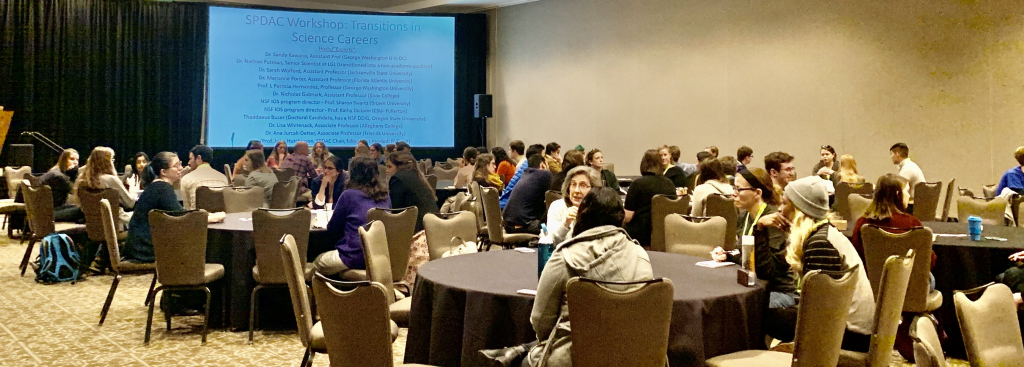
We thank our divisional reps for their service: Sammi Smoot, Jonathan Chang, Brett Aiello, Amaneet Lochab. We also welcome our new replacement reps: Ryan Hulett (DEDB), Emily Lessner (PCB), Armita Manafzadeh (DCB), and Rebecca Varney (DIZ).
For SICB2021 in Washington, DC, we have agreed on 2 SPDAC events:
- Similar booth, with poster advertising our activities for the meeting. And:
- More brochures! Same ones plus: how to do a diversity statement, What to do during the “nether-zone” between undergrad-grad school, 1st-timer SICB tips (including SPDAC rep info), Federal/other fellowships, Research statement, etc. Ideas are welcome!
- We’ll have an easel with post-its for people to suggest what they want from SPDAC. “Office hours” will be posted for Divisional reps at the booth
- We will try to get some drink tickets to raffle off over the week in return for students+postdocs (NOT faculty!) showing up to speak with SPDAC reps.
- Similar workshop, but with theme “Transferrable skills in academia and non-academia” — and with a strong DC theme. We will invite similar experts to this year plus DC (ideally SICB-affiliated?) experts from government, policy/thinktank, museum, NGOs, etc. Ideas/suggested expert nominations encouraged! Topics will include skills in these domains and sci-comm and more. We will start with a 30 min panel chat about transferrable skills then 60 min roundtable sessions. Our goal is to ensure that the panel is maximally diverse in all senses.
Have a great winter, spring and summer. We aim to have some exciting updates on our workshops’ experts in the Fall newsletter.
Development Report, Lou Burnett, Development Committee Chair & SICB Past-President
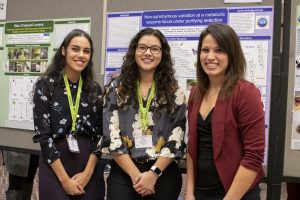
SICB Funds. SICB has invested funds that provide support for students to attend the annual meeting and support their research, support for symposia, lectures, and several awards. There are separate funds that are designed for specific purposes including the ones mentioned below. Without these invested funds most of the SICB activities would not occur in their current robust form.
Double Your Dues. We are in the third year of our Double Your Dues (DYD) Campaign where we have asked each member of SICB, including the students, to contribute over a period of three years the equivalent of SICB dues for one year. At this time 166 SICB members have donated over $10,300 to fund student research through the DYD Campaign!
Estate Planning. It is never too soon to consider ways to remember things that are important to you. The Development Committee now provides mechanisms and documents (see Estate Planning – go to Donate to SICB, left panel of the home page) to assist you in planning your legacy. Estate planning is a very personal endeavor and crafting documents to meet your specific needs are done on a one-to-one basis. Please contact Lou Burnett, Chair of the Development Committee (Chair.Development@sicb.org) or Brett Burk, SICB Executive Director (ExecDir@sicb.org) for details or if you have any questions.
SICB Apparel. Remember to order your SICB Apparel (https://sicbstore.qbstores.com/). Show your support of SICB and its programs. A percentage of all apparel sold benefits SICB.
Named Student Research Awards. Student Research Awards are given each year through the Grants-in-Aid of Research program and the Fellowship of Graduate Student Travel program of the Society. This support of research is provided by a special research fund and by the operating budget of the Society. SICB recently established named awards for the most outstanding student applicants. These awards are established through donations to the Student Research Fund (GIAR, FGST). A donation of $1,000 to the fund in honor of an individual will memorialize that individual with a named student award for one year; a $5,000 donation will memorialize that individual each year for 5 years and so on. For donations associated with an individual that is greater than $20,000 (all of these include multiple donations), the named award will be given in perpetuity. At the 2020 annual meeting the following named awards were presented to our top student applicants. Congratulations to these students!
- Steven Vogel Award to Sara Wang, Louisiana State University (GIAR)
- Toby Gaunt Award to Rachel Davis, College of William and Mary (FGST)
- Rosemary Knapp Award to Alyssa Eby, University of Windsor (GIAR)
- Alexander Fodor Award to Bradford Dimos, University of Texas, Arlington (GIAR)
- Steve Wainwright Award to Christopher Moore, East Carolina University (GIAR)
Recognition of Donors. Since 2014, the Society has recognized donors both through ribbons attached to badges at the annual meeting and listing donors in the Spring Newsletter. In 2019, SICB received over $25,000 from 175 individual donations in support of its programs. Below we highlight our list of patrons who made contributions in 2019 and thank them for their generosity.
Special Recognition for Diamond SICB Donors contributing $1000 or more in 2019.
- Elizabeth Adkins-Regan (to honor Rosemary Knapp)
- Tom Daniel
- Ken Dial
- Terry Dial
- Patricia Morse (to honor John Moore)
- Bob Roer
- Billie Swalla (to honor Alexander Fodor)
- Sable Systems International (in support of the Bart Award)
- Sarah Woodin
Diamond ($500 and up)
- Frances Bonier (to honor Rosemary Knapp)
- Karen Burnett
- Louis Burnett
- Ellen Ketterson (to honor Rosemary Knapp)
- Robert Mason (to honor Rosemary Knapp)
- Ignacio Moore (to honor Rosemary Knapp)
- Ken Sebens
- David Wake
- Marvalee Wake
- Susan Williams
- Frances Bonier (to honor Rosemary Knapp)
Platinum ($250–499)
- Andy Baxevanis
- Jon Harrison (to honor Rosemary Knapp)
- Don Mykles
- Sherry Tamone (to honor Rosemary Knapp)
- John Wingfield (to honor Rosemary Knapp)
- Sarah Woodley (to honor Rosemary Knapp)
Gold ($100–249)
- George Bakken (to honor Rosemary Knapp)
- Michael Baltzley
- Richard Blob
- Marguerite Butler
- Timothy Casey (to honor Rosemary Knapp)
- Kathleen Casey (to honor Rosemary Knapp)
- David Collar
- Robert Cox
- Erica Crespi
- Kathy Dickson
- Sarah DuRant (to honor Rosemary Knapp)
- Lara Ferry
- Douglas Gaffin (to honor Rosemary Knapp)
- Alice Gibb
- Thomas Hahn
- Lynn Hartzler
- Tyson Hedrick
- Susan Herring
- Diana Hews (to honor Rosemary Knapp)
- Vikram Iyengar
- Darwin Jorgensen (to honor Steve Vogel)
- Deborah Lutterschmidt (to honor Rosemary Knapp)
- Scott MacDougall-Shackleton (to honor Rosemary Knapp)
- Duncan MacKenzie
- Karen Maruska (to honor Rosemary Knapp)
- Steven McCormick (to honor Rosemary Knapp)
- Jenna Monroy (to honor Rosemary Knapp)
- Kristi Montooth
- John Pearse
- Robert Podolsky
- Mary Rice
- Lynn Riddiford
- Michael Romero (to honor Rosemary Knapp)
- John Scarpa (to honor Rosemary Knapp)
- Sandra Scarpa (to honor Rosemary Knapp)
- Lars Schmitz
- Daniel Speiser
- Nancy Staub (to honor Rosemary Knapp)
- Brian Tsukimura
- Allison Welch
- Terry West
Silver ($50–99)
- Philip Bergmann
- Rachel Bowden
- Jamie Cornelius
- Ben Dantzer
- Susan Foster
- Aaron Galloway
- Lisa Hazard
- Wendy Hood
- John Hranitz (to honor Rosemary Knapp)
- Karuhiko Itagaki
- Michele Johnson (to honor Rosemary Knapp)
- Diane Kelly
- Christine Lattin (to honor Rosemary Knapp)
- Matthew Lovern (to honor Rosemary Knapp)
- Rosalie Maltby (to honor Rosemary Knapp)
- Lynn Martin (to honor Rosemary Knapp)
- Donald Miles
- David Norris
- Ned Place (to honor Rosemary Knapp)
- Colin Summers
- San Van Wassenberg
- Maren Vitousek (to honor Rosemary Knapp)
- Dylan Wainwright
- Brian Walker
- Travis Wilcoxen
- Art Woods (to honor Rosemary Knapp)
Bronze (<$50)
- Brett Aiello
- Haley Amplo
- Miriam Ashley-Ross
- Andrea Aspbury (to honor Rosemary Knapp)
- Charles Booth
- Noah Bressman
- Nicholas Burnett
- Luke Butler
- Stephanie Crofts
- Mason Dean
- Scott Dominic Cinel
- Hugh Ellis
- Stacey Farina
- Malcolm Gordon (to honor Rosemary Knapp)
- Jennifer Grindstaff (to honor Rosemary Knapp)
- Alexander Hall
- John Hatle (to honor Rosemary Knapp)
- Amberleigh Henschen (to honor Rosemary Knapp)
- Carole Hickman
- Sarah Humfield (to honor Rosemary Knapp)
- Barbara Joos
- Emily Kane
- Sandy Kawano (to honor Steve Vogel)
- Harvey Lillywhite
- Spencer Mass
- Kevin Matson
- Gregory Mutumi
- Julia Notar
- Sara O’Brien
- Alexandra Pamfilie
- Rrian Ramos-Guivas
- Christopher Richardson
- Nicholas Santangelo (to honor Rosemary Knapp)
- Wendy Smith (to honor Rosemary Knapp)
- Kristin Stover
- Cristy Strand
- William Talbot
- Zuleyma Tang-Martinez
- Jessica Tingle
- Erica Westerman
- John Whitman (to honor Rosemary Knapp)
- Tony Williams (to honor Rosemary Knapp)
- Dorothy Zahor
- William Zamer
Society-Wide Elections: Candidate Biographies
(Ballot: http://burkclients.com/sicb/elections/2020.php)
Candidates for SICB President-Elect
Frank E. Fish
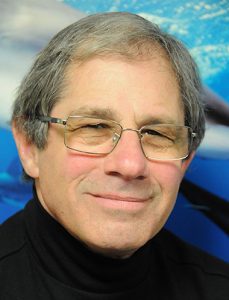
Current Position: Professor of Biology, West Chester University (WCU)
Education: B.A. Biology, SUNY Oswego (1975); M.S. (1977) and Ph.D. Zoology, Michigan State University (1980).
Professional Experience: Assistant, Associate, and Professor, Biology Department, WCU (1980-Present); Faculty Wallops Island Marine Science Center (1982); Chair Biology Department, WCU (2000-2001); Editorial Board, Bioinspiration & Biomimetics; Faculty Shoals Marine Laboratory, Cornell University (2007-2015); Associate Editor, Marine Mammal Science (2008-Present).
SICB Activities: Life member. Local Committee, Philadelphia, PA (1983); Nominating Committees, Chair DVM (1984, 1988, 1992); Secretary DVM (1991-1995); Editorial Board American Zoologist (1992-1997); D. Dwight Davis Student Award Committee (1996, 1999); Co-organizer of symposia (2001, 2015); Chair of the DVM (2004); SICB Digital Library Advisory Board (2004-2006); Program Officer DCB (2006-2009); DCB Nominating Committees (2006, 2011, 2013).
Other Memberships: American Society of Mammalogists, Marine Technology Society, Society for Marine Mammalogy
Research Interests: Research includes the energetics, evolution, and biomechanics of swimming, and biomimetic applications of aquatic animal propulsive systems.
Goals Statement: I love this society! The annual meetings are where I come to learn more about science to develop research ideas. My primary goal is to support and strengthen SICB and its mission. SICB provides a venue for important research and professional opportunities as well as demonstrating the excitement and fun of research. I wish to convey this perspective and encourage others to join and participate in this great society. I would like to see greater efforts to increase diversity, both socially and academically. Educators and students at small, teaching-oriented institutions should be encouraged to join SICB and attend meetings. NSF has been a reliable exhibitor at meetings, but we want to invite other funding agencies to participate. I want to support workshops about obtaining jobs, innovative techniques, funding, and publishing. After hearing the Treasurer’s report at the 2020 business meeting, it is paramount that we look at additional avenues for funding to build the endowment and provide sustainable assets to support the societal and divisional awards and support student involvement. I would like to work through the Public Affairs Committee to increase our exposure to highlight the importance of our research. Although I have ideas and goals to help strengthen SICB, this is your society. Therefore, I am always looking for good, actionable suggestions and ideas to improve the society. Together we can have a bright future with SICB maintaining its position as a leader in the scientific community.
L. Patricia Hernandez
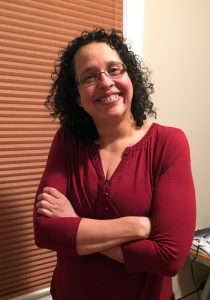
Current Position: Professor of Biological Sciences, George Washington University, Washington, DC.
Education: BS Eckerd College (1987); MS University of South Florida (1994); Ph.D. Harvard University (1999)
Professional Experience: 2002-present: Assistant – Full Professor, George Washington University; 2014-present: Associate Editor for Zoology; 2018-present: Associate Editor for Integrative Organismal Biology; 2018-present: Audubon Naturalist Society- Board of Directors; 1999-2002: Postdoctoral Fellow, Wesleyan University; 2001: Visiting Professor, University of Washington Friday Harbor; 1999-2000: Visiting Professor, Wesleyan University; 1992-1993: Adjunct Instructor, Eckerd College.
SICB Activities: Loyal member since 1994 (26 years); 2019-2021: Chair, Division of Vertebrate Morphology and Member of Executive Committee; 2015-2017: SICB Member-at-Large; 2010-2013: Program Officer for the Division of Evolutionary Developmental Biology; 2007-2009: Student Support Committee; 2007-2008: Chair, Broadening Participation Committee; 2005: Chair, Nominating Committee for DEDB; 2004: Organized roundtables for Membership Diversity Committee; 2003: Nominating Committee, DEDB; 2002-2005: Membership Diversity Committee, member; 2001: Chair, Nominating Committee DEDB; 2000-2002: Graduate Student/Postdoctoral Representative for DEDB
Other Memberships: International Society of Vertebrate Morphology; American Society of Ichthyologists and Herpetologists
Research Interests: Functional morphology and evolutionary developmental biology of fishes. Development, functional morphology, and evolution of novelties.
Statement of Goals: The power of the Society for Integrative and Comparative Biology lies in both our interdisciplinary emphasis as well as our commitment to excellence within each specific Division. The breadth and depth of biology presented at our meetings and published in our journals allows for the type of integrative training that makes our membership unique. NSF has recently formalized a variety of programs to reintegrate biology. The members of our Society have been at the forefront of this mission, contributing to both the evolving Rules of Life programs and incipient Biology Integration Institutes within NSF. This synergy with NSF has helped our members flourish, with the Society playing a leading role in the development of key funding opportunities. As President, I would foster our tradition of interdisciplinary investigation nurturing the essential cross-fertilization that occurs with such integrative vision, making our members more competitive for NSF funding. I would continue those initiatives that have made SICB great such as our mentoring of early career researchers and financial support of student members. I would strive to broaden participation to all scientists, taking advantage of the many urban locations to which we travel. As a queer woman of color, whose parents were immigrants, I value our increasingly diverse membership and I look forward to growing diversity in our leadership.
Candidate for SICB Treasurer
Miriam Ashley-Ross

Current Position: Professor of Biology, Wake Forest University, NC.
Education: B.S. Northern Arizona University (1988); Ph.D. University of California, Irvine (1994); Instructor, California State University, Long Beach (1994-1995); Grass Fellow, Marine Biological Laboratory, Woods Hole, MA (1995); Postdoctoral Fellow, University of California, Irvine (1995-1996); Postdoctoral Fellow, University of Pennsylvania (1996-1997).
Professional Experience: Assistant through Full Professor, Wake Forest University (1997-current), Associate Dept. Chair (2013-2014); Program Director, Physiological Mechanisms and Biomechanics program, Division of Integrative Organismal Systems, National Science Foundation (2014-2015; 2019-2020).
SICB Activities: Member for 30 years; Treasurer (2019-current); Student Support Committee (2012-2015); Secretary, DCB (2006-2012); Chair, Public Affairs Committee (2000-2008); Public Affairs Committee member (1998-2008); co-organized two symposia for SICB.
Other Memberships: International Society of Vertebrate Morphologists
Research Interests: Functional morphology and biomechanics of animals; locomotion; prey capture; locomotor transitions from water to land
Statement of Goals: In the past two years, first as Treasurer-Elect and then as Treasurer, I have learned a great deal about how SICB “works” as a Society. My priorities are to make sure that we make prudent decisions regarding meetings and support vehicles so that the Society remains solvent. Balancing member costs against expanding desirable programs (e.g., student support) is challenging, and I look forward to continuing to work with the other Executive Officers to ensure that the Society thrives.
Candidates for SICB Member-at-Large
Allen F. Mensinger
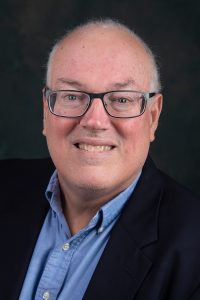
Current Positions: Professor and Department Head, Biology Department, University of Minnesota of Duluth (2000-present) and Director of the NSF-REU Biological Discovery in Woods Hole at the Marine Biological Laboratory (2010-present).
Education: B.S. Duke University (1983), Ph.D. University of California Santa Barbara (1991), Post Doctoral Fellow Vanderbilt University (1991-1993) and Washington University in St. Louis (1994-1999)
Professional Experience: Grass Fellow Friday Harbor Labs, University of Washington. Visiting Researcher and summer scientist, Marine Biological Laboratory (1993-present).
Research Interests: Sensory physiology of teleost fish, fish behavior, and developing deterrents to aquatic invasive species.
Statement of Goals: SICB was the first scientific meeting I attended (Boston, 1989) and I have always appreciated its welcoming environment for students and diverse scientific offering. My research interests range from neurophysiology to animal behavior to ecology which provides a broad foundation to interact with SICB scientists. Working at a regional University has given me insight into both undergraduate and graduate student education and training. I have been fortunate to spend the past 26 summers at the Marine Biological Laboratory and am currently the director of the summer NSF-REU program. I am very proud that we have recruited 70% underrepresented minority students over the past decade with well over 50% of these students currently enrolled in Masters or PhD programs. I appreciate SICB allowing myself and my students to be a part of the community for over 30 years, and I believe it is now time to give back to the organization. As a Member at Large I will continue to advocate for inclusion while at the same time seeking to increase opportunities and diversity. My broad research and educational training provides the experience to work with all the SICB divisions to assist in SICB’s scientific advocacy. Thank you for your consideration.
Marianne E. Porter
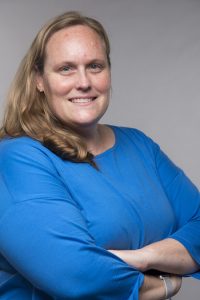
Current Position: Assistant Professor, Florida Atlantic University, FL (2014-present)
Education: B.S. Northern Arizona University (2000); M.S. Northern Arizona University (2002); Ph.D. University of California, Irvine (2007); Postdoctoral Fellow and Faculty Research Associate, Vassar College (2008-2013)
Professional Experience: Visiting Assistant Professor, Florida Atlantic University (2013); Visiting Lecturer, Friday Harbor Labs, University of Washington (2012); Affiliate Research Assistant Professor, Florida Atlantic University (2011-2013)
SICB Activities: Member for 18 years; Assistant editor for ICB (2019-2021); Membership committee (2018-2021); DCB nominating committee (2018, 2019); DVM nominating committee (2019); Member of SICB ad hoc committee assessing student career outcomes and diversity (2016); Student Support Committee (2012-2015); DCB graduate student / postdoc representative (2010-2012); co-organized symposium (2011); judge for student posters and talks for DVM and DCB at numerous meetings.
Other Memberships: American Society of Ichthyologists and Herpetologists; American Elasmobranch Society; International Society of Vertebrate Morphology; American Association of Underwater Scientists.
Research Interests: Comparative biomechanics and morphology of marine organisms; biological materials, especially cartilage, bone, and skin; swimming, using volitional swimming to understand kinematics.
Statement of Goals: I consider SICB to be my ‘home’ society, and I would be delighted to give back to this organization by serving as a Member at Large. As a member of the executive committee, I will actively work with the all SICB divisions to facilitate their individual missions and goals. My broad training in ecology (plant – herbivore interactions; riparian ecology), work in functional morphology and biomechanics, and current research in collective animal behavior make me well suited to fulfill the duties of this position and ‘advocate for the entire scope of SICB science.’ In addition to working across SICB divisions, I can work across career stages. Since I was a graduate student, I have been bringing undergraduates to the annual meeting as a way for them to be broadly exposed to scientific research and highlight their scientific achievements. Now as faculty, I regularly bring high school, undergraduate, and graduate students to the annual meetings because they are in a welcoming and diverse environment where early-career researcher can explore integrative biology. Finally, my role as an ICB assistant editor enables me opportunities to learn about big topics being discussed in many of the divisions, which will help me to fulfil the role of a Member at Large. Thank you for considering me as a SICB Member at Large.
DAB
Table of Contents
- Best Student Presentation Competition
- Message from the Chair, Kendra Sewall, Chair.DAB@sicb.org
- Message from the Program Officer, Kathleen Lynch, DPO.DAB@sicb.org
- Message from the Secretary, Erica Westerman, Secretary.DAB@sicb.org
- Message from the Student/Postdoctoral Affairs Committee Representative, Sydney Hope
- DAB Secretary Candidate Biographies
Division of Animal Behavior: Spring 2020 Newsletter
Please vote in the Spring 2020 Elections (candidate biographies can be found below). The deadline is April 19th, and the ballot can be found in the link provided here. http://burkclients.com/sicb/elections/2020.php
Best Student Presentation Competition
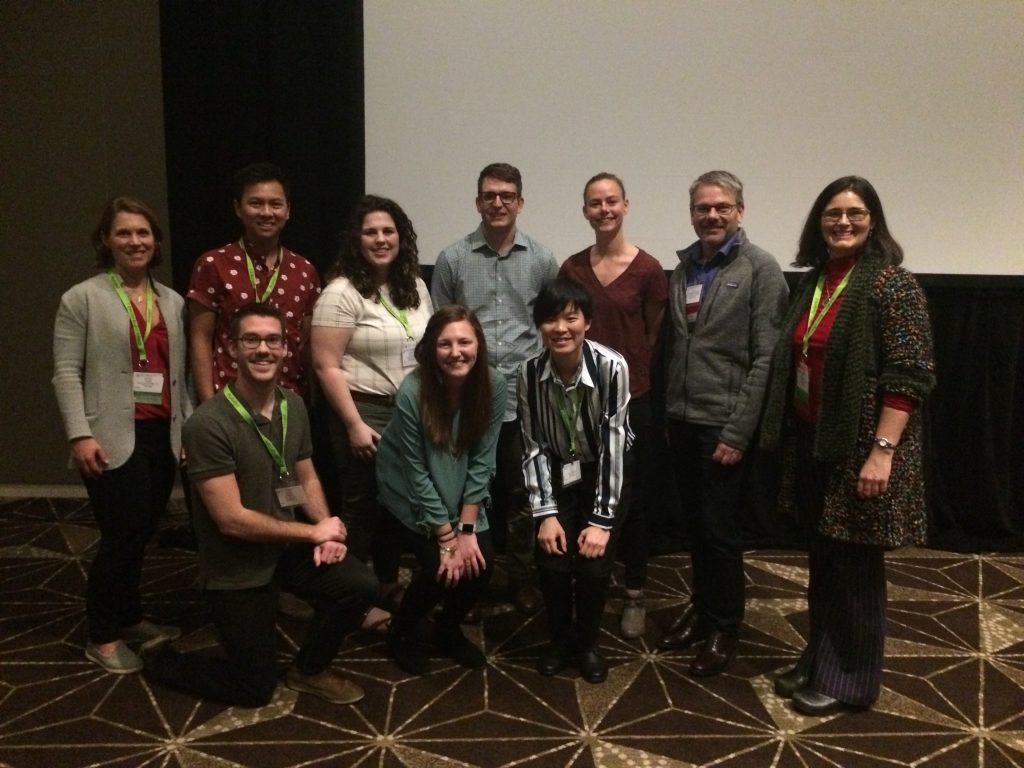
Thank you to all of the students who participated in our 2020 Marlene Zuk and Elizabeth Adkins-Regan competitions! With 67 student competitors and 57 judges across our Zuk and Adkins-Regan competitions, much of our division was involved in these competitions, and we are very proud of this high level of participation. We had a fantastic Marlene Zuk Best Student Presentation Session, with seven finalists giving excellent oral presentations to a packed room, as well as an impressive 50 students competing for the Elizabeth Adkins-Regan Award for Best Student Poster.
The Marlene Zuk Award for best oral presentation went to Kayla Goforth for her talk titled “The role of magnetic field detection in foraging site fidelity of sea turtles.” Kayla is a graduate student at the University of North Carolina-Chapel Hill in Dr. Kenneth Lohmann’s lab. She studies how marine migrants navigate using Earth’s magnetic field. Specifically, her research focuses on how sea turtles learn and memorize the locations of foraging sites, and develop strong ties to those locations. In the research Kayla presented at SICB, young sea turtles were classically conditioned to a specific magnetic field and these turtles learned their conditioned magnetic field was associated with food.
The Elizabeth Adkins-Regan Award went to Angela Riley, for her poster “Paternal removal leads to changes in learning ability and sociality in zebra finch (Taeniopygia guttata) offspring”. Angela is a PhD student in Dr. Jennifer Grindstaff’s lab at Oklahoma State University. She studies the effect of removing the father during the early post-hatching life in zebra finches (Taeniopygia guttata), a biparental species in which both mothers and fathers contribute to offspring care. A number of studies examine the effects of maternal removal on offspring development in mammals and birds, but very little is known about the impact of paternal removal, despite ~80% of all bird species having some extent of biparental care. In this study, Angela found that birds who experienced paternal removal during the fledgling period were more aggressive than both control birds and birds that experienced paternal removal during their entire nestling and fledgling periods. There was also a trend towards an effect of paternal removal on offspring learning ability.
This year, in addition to the Marlene Zuk and Elizabeth Adkins-Regan awards, judges awarded a Adrian M. Werner Award for Strong Inference to Yusan Yang for her talk titled “Male contest limits assortative female preference in a color polymorphic poison frog.” Yusan is a Ph.D. student in the Richards-Zawacki lab at the University of Pittsburgh, where she studies sexual selection of the color polymorphic strawberry poison dart frog (Oophaga pumilio). Her research integrates field, laboratory, and mathematical approaches to examine the mechanisms that shape divergent sexual behaviors, and the evolutionary and ecological consequences of such divergence.
Many congratulations to our three winners, and a big thank you to all of the judges who helped evaluate the student talks and posters!
-
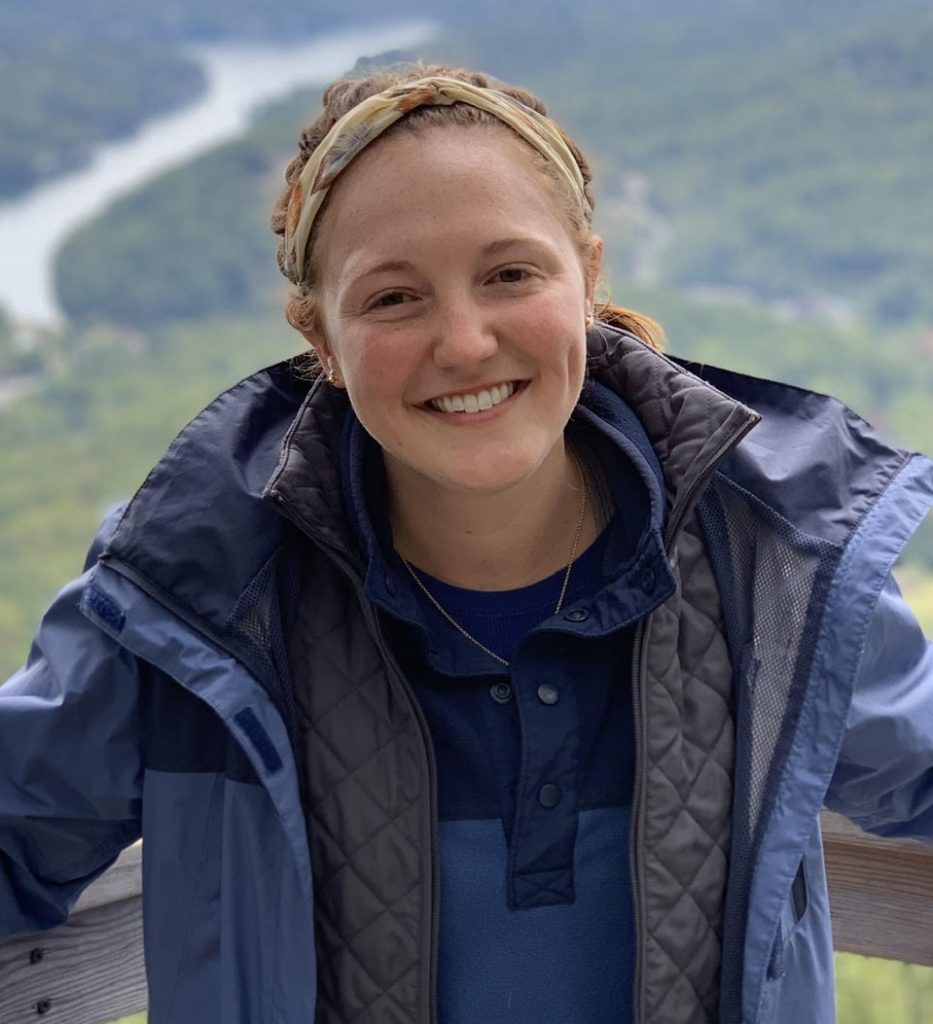
Kayla Goforth -
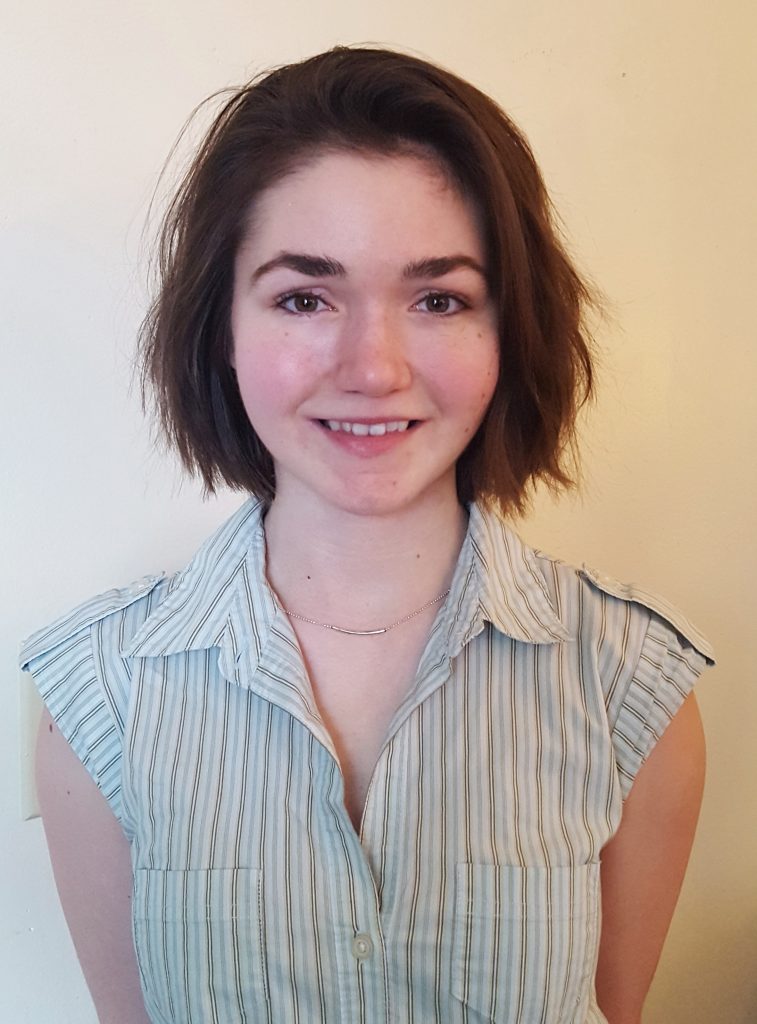
Angela Riley -
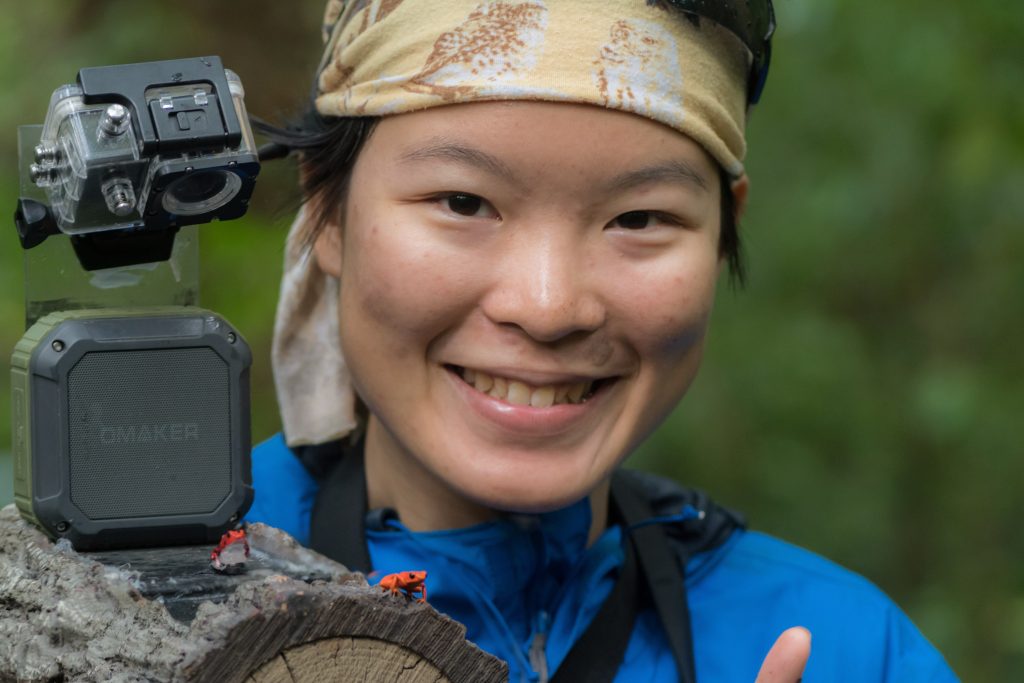
Yusan Yang
Message from the Chair, Kendra Sewall, Chair.DAB@sicb.org
“We make a living by what we get, but we make a life by what we give.” —Winston Churchill
A huge thank you to everyone who volunteered to help with poster judging, moderating sessions, and the mentorship program at our annual meeting in Austin! If you value collaboration, student support, and collegiality, volunteering is a fantastic way to make a positive impact. We welcome ideas for new initiatives and contributions from any and all members – please consider one of the following ways to volunteer!
Opportunities for Leadership:
- Organizing symposia: Because we are so integrative, our division supports a lot of symposia. However, we have few symposia that are focused on behavior. If you have ideas for a symposium for the 2022 meeting in Phoenix, AZ, that would focus on behavior please contact Kathleen Lynch! Organizing a symposium can be a great way to highlight your work and all symposium papers are published in Integrative and Comparative Biology. Postdocs should definitely consider this opportunity!
- Meeting participation: Please consider moderating a session during our next meeting in 2021 and attending the business meeting (really a members meeting).
- Student mentoring program: At the 2020 meeting we piloted a student mentoring program that and over 61 people participated. We plan to run the program again for the 2021 meeting with assistance from Dr. Rindy Anderson, who will serve as our Mentoring Coordinator. If you have ideas for improving the mentoring program or want to help organize please contact Kendra or Rindy.
Opportunities for students:
- Student talk and poster awards: When the 2021 meeting rolls around please do participate in DAB events like the social and the business meeting. These events are not just for faculty! And they are a wonderful opportunity to meet future mentors. Additionally our student talk and poster awards are great opportunities for students to have their work highlighted – please sign up for the Marlene Zuk Best Student Oral Presentation or Elizabeth Adkins-Regan Award for Best Student Poster. These sessions highlight the best work our students are doing so they are about a lot more than just the competition. Please attend these events to support your fellow student DAB members.
- Support for students and post-docs: SICB has a great history of supporting students and post-docs but meetings are expensive and networking is tough. We will continue to include a networking session in our business meetings but are looking for new ideas. If you have suggestions for workshops, group meals, or other events that we can support as a division please contact Kendra!
-
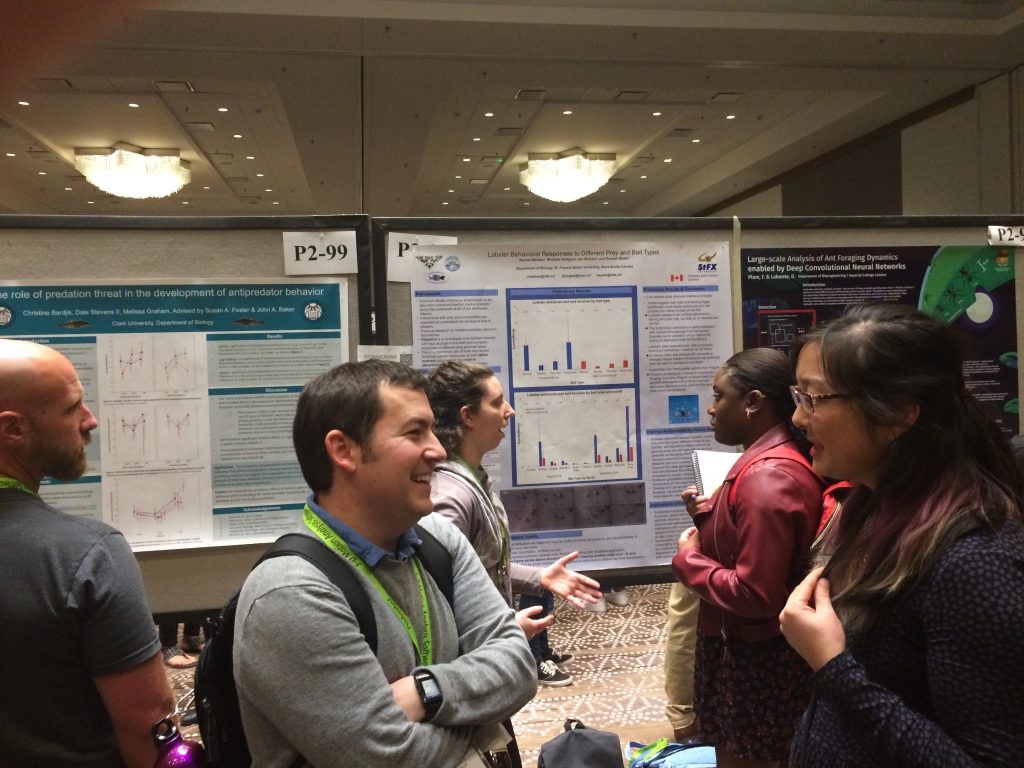
Poster Session -
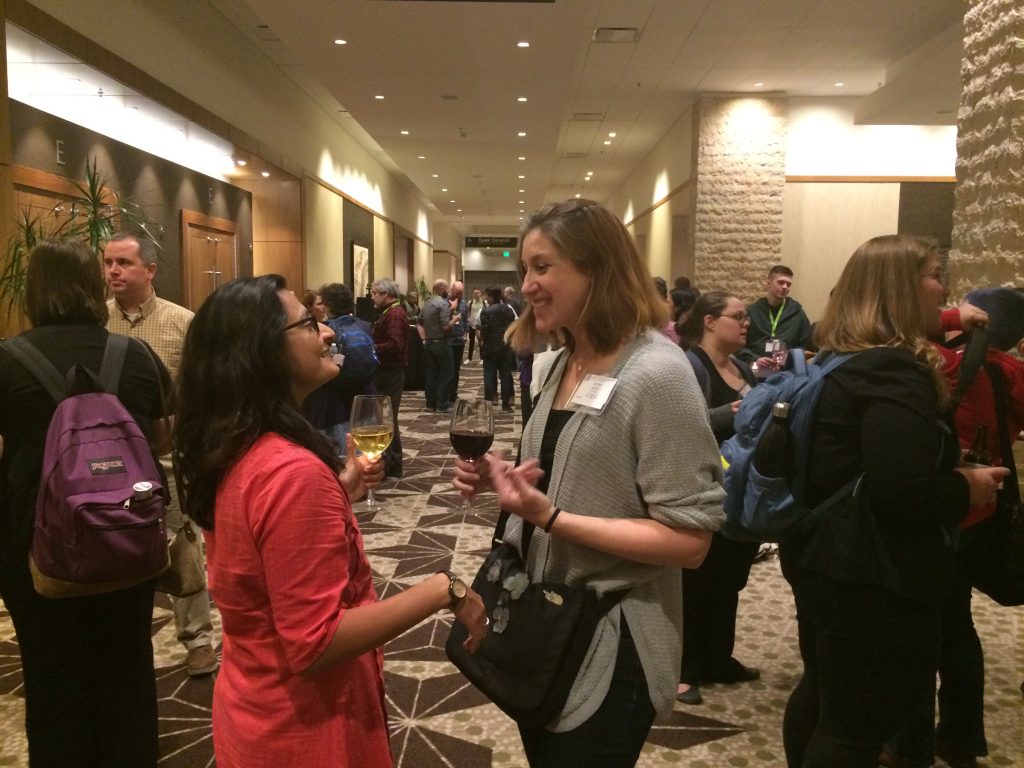
DAB Social
Message from the Program Officer, Kathleen Lynch, DPO.DAB@sicb.org
Welcome to my first newsletter as the new Program Officer for DAB. First, I want to thank all presenters, attendees and volunteers that made this year’s SICB meeting a great success. It was a fantastic line-up of talks and Austin, once again, proved to be an amazing place for the SICB conference. We had a nice blend of science and we had lots of fun in downtown Austin. DAB had many submissions for the student presentation competition this year. All the student talks were phenomenal. The out-going program officer, Scott McDougall-Shackleton, reported that the number of symposiums proposal submissions this year neared an all-time high. So, let’s keep that going! One way to do that is to start thinking now about your symposium ideas for our 2022 meeting and all future meetings. Proposals are due in the summer but it’s not too soon to contact me with your ideas or if you have any questions about organizing a symposium. DAB would like to continue co-sponsoring symposia that bridge fields of research and symposia that reflect the integrative qualities of our animal behavior studies. I am happy to help potential organizers navigate the duties of an organizer and offer ideas to look for financial support. If you have a great idea for a symposium proposal but don’t want to organize it, please go ahead and contact me with the idea so we can work on making it happen. Thanks again to all presenters and attendees. Hope to see you at next year’s meeting!
Thank you to outgoing DAB Program Officer Scott MacDougall-Shackleton
We would like to extend our heartfelt thanks to Scott MacDougall-Shackleton, our exiting DAB Program Officer, for his years of service and hard work for our division. He did an excellent job. In particular, we appreciate his constant efforts to increase the numbers of high quality symposia proposals from DAB members, and his efforts to coordinate our many talks and posters into well-themed and thought provoking sessions at our annual meetings. Many, many thanks Scott!
Message from the Secretary, Erica Westerman, Secretary.DAB@sicb.org
Abundant “thank yous” to the poster judges who volunteered their time to engage and give feedback to the student contestants in the Adkins-Regan competition. Many of you gave thoughtful feedback, which I am in the process of passing on to the student participants. And for student participants who would like to receive feedback but have not yet received an e-mail from me, it is not too late! Please send me an e-mail at either Secretary.DAB@sicb.org, or ewesterm@uark.edu, and I will send you the judge’s comments.
In response to feedback and in an effort to increase transparency for the BSP competitions, I will be posting the DAB Adkins-Regan judging form on the DAB website this fall, so please check out the website if you would like to preview the judging form as you prepare your poster.
Our division has an ever-increasing presence on social media, and we have both twitter (@SCIB_DAB) and facebook (SICB Division of Animal Behavior) presence. If you are interested in getting involved with managing the DAB social media presence, please contact Kendra, Kathleen, or I. You also have the opportunity to participate in SICB’s online Researchers Database. If you would like to have your information included in the database, please send me a word document or PDF with your name, a brief description of your work, and a high-resolution .jpg photograph to Secretary.DAB@sicb.org.
In the spirit of the connection between DAB and the Animal Behavior Society, I remind our members that the ABS annual meeting is in Knoxville, Tennessee this year, from July 30-August 3rd. DAB is often well represented, and I look forward to seeing many of you in Tennessee this Summer!
Message from the Student/Postdoctoral Affairs Committee Representative, Sydney Hope
We had a great meeting in Austin this year! SPDAC held a “Transitions in Science” workshop, which had a great turnout. Students and postdocs were able to meet with experts from different careers (academia, non-profit, government, etc.) and have a round-table discussion centered around major transitions in science (e.g., undergraduate to graduate student, PhD to postdoc, academia, or other career paths). SPDAC also ran a booth in the Exhibitor’s Hall, where we handed out helpful “How-To” brochures (e.g., science communication, research and teaching statement design, creating a symposium proposal, getting a post-doc, etc.). Lastly, DAB pioneered its first mentor/mentee matching program, and we had participation from 29 mentors and 33 mentees! Now, we’re already starting to plan to next year’s meeting in Washington DC.
We received a lot of positive feedback for the activities that we held in Austin (workshop, booth, mentoring program), and so we are planning to hold similar activities in Washington DC, but fine-tune them. First, we will hold another round-table discussion workshop, but with the theme “Transferrable skills in academia and non-academia”. We would like take advantage of the meeting venue to invite a broad range of experts working in government, policy, non-profits, museums, etc. Next, we will have another “How-To” booth in the Exhibitor’s Hall, but we will be adding more brochures, some of which were suggested to us in Austin (e.g., how to write a diversity statement). Lastly, we will organize another DAB mentor/mentee matching program. For those that participated this year, please give us your feedback so that we can improve! If you have any suggestions to improve any of the above items, if you would like to help organize the mentor/mentee program, or if you have any other ideas of how to improve our meetings for students and post-docs, please email me (sydney.hope@gmail.com).
SICB Student and Postdoc Funding Opportunities
While the deadlines for SICB awards may seem light-years away, it is never too soon to put these important dates on your calendar! The Broadening Participation travel award (funds to attend the 2021 SICB meeting), Charlotte Magnum Student Support Program (funds to attend the 2021 SICB meeting), and GIAR/FGST (funds to support student research, including the Grants in Aid of Research and Graduate Student Travel awards) will be due on or around Oct 17th, 2020. The Dorothy M. Skinner Award (funds for female scientists (often postdocs) to attend the 2021 SICB meeting) is also due around Oct 17, 2020. These are wonderful funding opportunities to help defray the cost of attending the SICB meeting, or the cost of student research.
Other summer and fall deadlines include: the Society for Neuroscience Donald B. Lindsley Prize in Behavioral Neuroscience, applications due May 22th, 2020, details can be found at: https://www.sfn.org/Careers/Awards/Early-Career/Donald-B-Lindsley-Prize-in-Behavioral-Neuroscience And, the Sigma Xi Grants-in-Aid of Research applications are due October 1st, details can be found here: https://sigmaxi.fluidreview.com/res/p/guidelines/.
For graduate students wrapping up their degrees, or brand-new postdocs, the Helen Hay Whitney Foundation Research Fellowship application is due Monday July 1st, 2020. Applicants must be within 12 months of their graduation to apply. Details can be found at: http://hhwf.org/research-fellowship/application/.The NIH NRSA postdoctoral fellowship application has three submission deadlines a year, and the summer deadline is August 8th, 2020. Details can be found here: https://grants.nih.gov/grants/guide/pa-files/PA-18-670.html. While the NSF Postdoctoral Research Fellowship in Biology applications are due in early November each year. There is a new Rules of Life track that may be particularly relevant to DAB members. Details can be found here: https://www.nsf.gov/funding/pgm_summ.jsp?pims_id=503622&org=NSF.
DAB Secretary Candidate Biographies
(Ballot: http://burkclients.com/sicb/elections/2020.php)
Lara LaDage
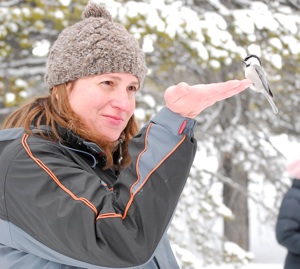
Current position: Associate Professor of Biology, Penn State Altoona, Altoona, PA
Education: B.S. Biology, Western Illinois University (1999); Ph.D. Biology, University of Memphis (2007)
Professional Experience: Postdoctoral Researcher, Biology, University of Nevada, Reno (2007-2009); Research Scientist, University of Nevada, Reno (2009-2013); Assistant Professor, Penn State Altoona (2013-2019); Undergraduate Research Faculty Fellow, Penn State University (2019-present).
SICB Activities: Meeting participant (2007-present); Session chair; Symposium participant (2015, 2020).
Other Memberships: Animal Behavior Society
Research Interests: Spatial processing and spatial memory have ramifications on territorial behavior, mate choice, navigation, food acquisition, and many other ecologically relevant behaviors. Further, differential demands on spatial processing affect brain regions differently. Much of my research focuses on the evolution of spatial processing and the hippocampus, an area of the brain heavily involved in spatially based behaviors.
Goals Statement: Throughout my professional career, SICB has been the society where my research fit, where I could engage with colleagues and collaborators, and served as a platform for dissemination via symposia. These experiences form the foundation for my goals as DAB Secretary and my motivation to give back to the society. While the position necessitates maintaining records, the researcher database, and communication via the DAB newsletter and the website, I will also collaborate with DAB officers to continue to support and encourage collaboration, both horizontally across disciplines and vertically across researchers at different stages of their careers. Because my home institution is a primarily undergraduate institution with an economically disadvantaged service area, I also have a keen sensitivity for the barriers faced by underrepresented individuals in STEM. To complement SICB’s current programs, I will continue to advocate for equity with new endeavors that support traditionally underrepresented groups, with an eye on keeping our meetings accessible to all undergraduates in order to enculturate our future SICB members.
Allison Welch
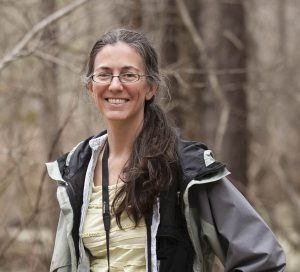
Current Position: Associate Professor of Biology and Director of Environmental and Sustainability Studies minor, College of Charleston
Education: B.S., Biology, Truman State University, 1993; Ph.D., Biological Sciences, University of Missouri–Columbia, 2000
Professional Experience: Postdoctoral Fellow, Biology, University of North Carolina–Chapel Hill (2000-2005); Postdoctoral Fellow, Biological Sciences, University of Missouri–Columbia (2005-2007); Research Associate/Adjunct Faculty, Biology, College of Charleston (2005-2007); Visiting Assistant Professor, Biology, College of Charleston (2008); Assistant Professor, Biology, College of Charleston (2008-2015); Associate Professor, Biology, College of Charleston (2015-present); Director of Environmental and Sustainability Studies minor (2016-present).
SICB Activities: DAB Divisional Program Officer, 2010-2016; SICB Student Support Committee, 2007-2009; SICB Nominating Committee, 2009; Meeting participant, 2000-present (17 of the past 20 years); DAB student presentation judge (posters and talks) several times; Symposium speaker (2019)
Other Memberships: American Society of Ichthyologists and Herpetologists, Herpetologists’ League
Research Interests: Behavioral and evolutionary ecology of amphibians; effects of environmental stressors on behavior, reproduction, and early life history stages; genetic variation in behavior and life history traits
Goals Statement: Serving SICB and the Division of Animal Behavior previously as DAB Divisional Program Officer has been a privilege and pleasure, and I would be honored to serve as DAB Secretary. As Secretary, my two primary goals would be to promote community within DAB and to support our students, post-docs, and early-career scientists. Through newsletters and other avenues of communication, I would seek not only to highlight DAB activities but also to build a sense of connection, cohesion, and inclusion within DAB. I believe a key function of the secretary and other executives is to provide a welcoming environment for all DAB members, including working to promote diversity and inclusivity in the division. The Best Student Presentation competitions are an important way to support students and highlight their accomplishments, and I would enjoy facilitating well-organized competitions. I am also interested in continuing to expand mentorship activities as a way to support our students and early-career members and to foster community and inclusion within DAB. Finally, by highlighting DAB’s successes and building community within the division, I look forward to promoting integrative animal behavior as a focal point within SICB.
DCB
Table of Contents
Division of Comparative Biomechanics: Spring Newsletter 2020
Please vote in the Spring 2020 Elections (candidate biographies can be found below). The deadline is April 19th, and the ballot can be found in the link provided here. http://burkclients.com/sicb/elections/2020.php
Message from the Chair, Stacey Combes, Chair.DCB@sicb.org
The Division of Comparative Biomechanics came together at this year’s SICB meeting in Austin for a huge range of biomechanics-related symposia and contributed sessions, as well as a wonderful student-paper competition – see the Message from the Program Officer below for a summary of all of the DCB-related activities at the Austin meeting. This year, we gratefully acknowledge all of the hard work and dedication of our outgoing DCB officers: Secretary Sandy Kawano, Program Officer Phil Anderson, and Student/Postdoctoral Representative Brett Aiello. We are happy to welcome our new Secretary Emily Kane, Program Officer Matt McHenry and Student/Postdoctoral Representative Armita Manafzadeh, who will join Chair-Elect John Long and I in leading the Division of Comparative Biomechanics this year.
Congratulations to the DCB Best Student Presentation Award winners! The best student presentation competition offered a remarkable glimpse into the up-and-coming research of the graduate students in our division. Finalists were chosen from a larger pool of students who submitted extended abstracts in September, and all of the finalists presented fascinating work. We would like to thank Phil Anderson the DCB BSP committee for their impeccable organization and the time they dedicated to this year’s competition. We are already looking forward to hearing from next year’s new talent.
-
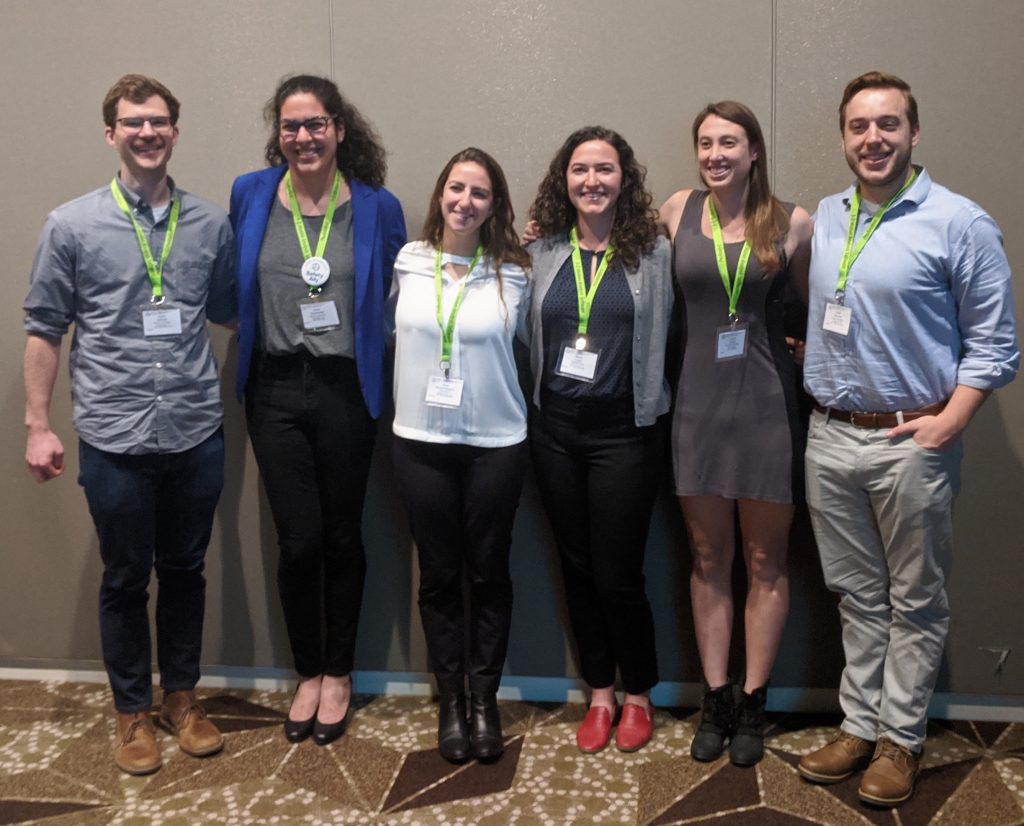
Best Student Oral Presentation Finalists
This year’s winners are:
- Winner of The Mimi A. R. Koehl and Stephen A. Wainwright Award for the Best Student Talk in Biomechanics: Rachel Crane, Stanford University, “Resistance and Repair of Mechanical Fatigue in Mussel Shells”
- Winner of The Steven Vogel Award for the Best Student Poster in Biomechanics: Samantha Smith, University of Texas Austin, “An Intralaryngeal Whistle Using an Elaborated Structure Enables Song in Alston’s Singing Mouse”
- Honorable Mention for The Mimi A. R. Koehl and Stephen A. Wainwright Award for the Best Student Talk in Biomechanics: David Sleboda, Brown University, “The Hydrostatic Skeleton of Muscle”
-
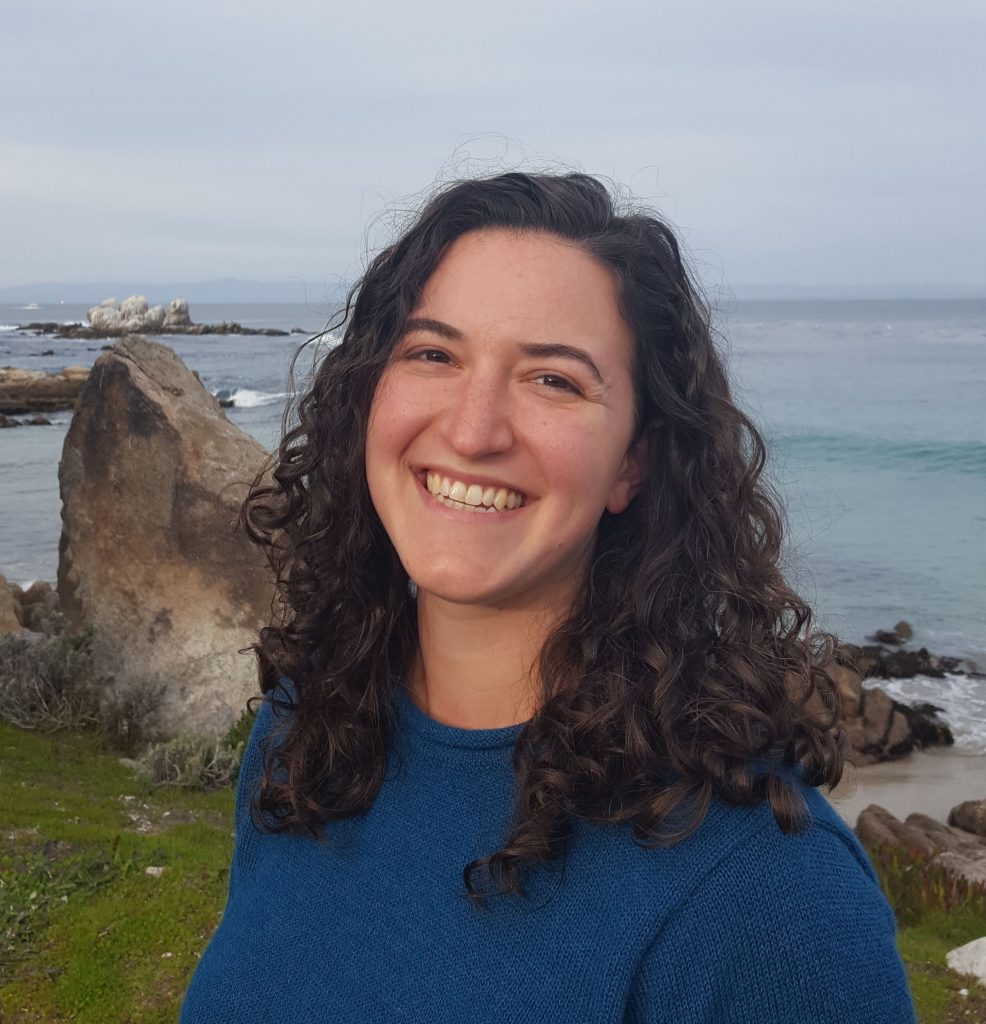
Rachel Crane -
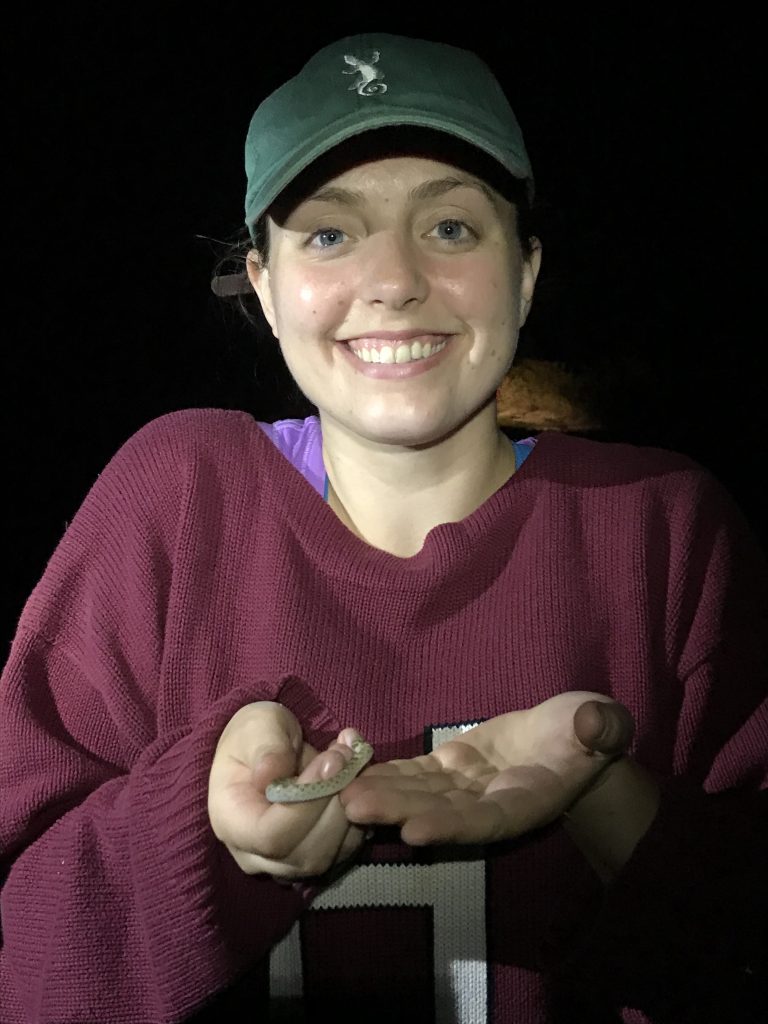
Samantha Smith -
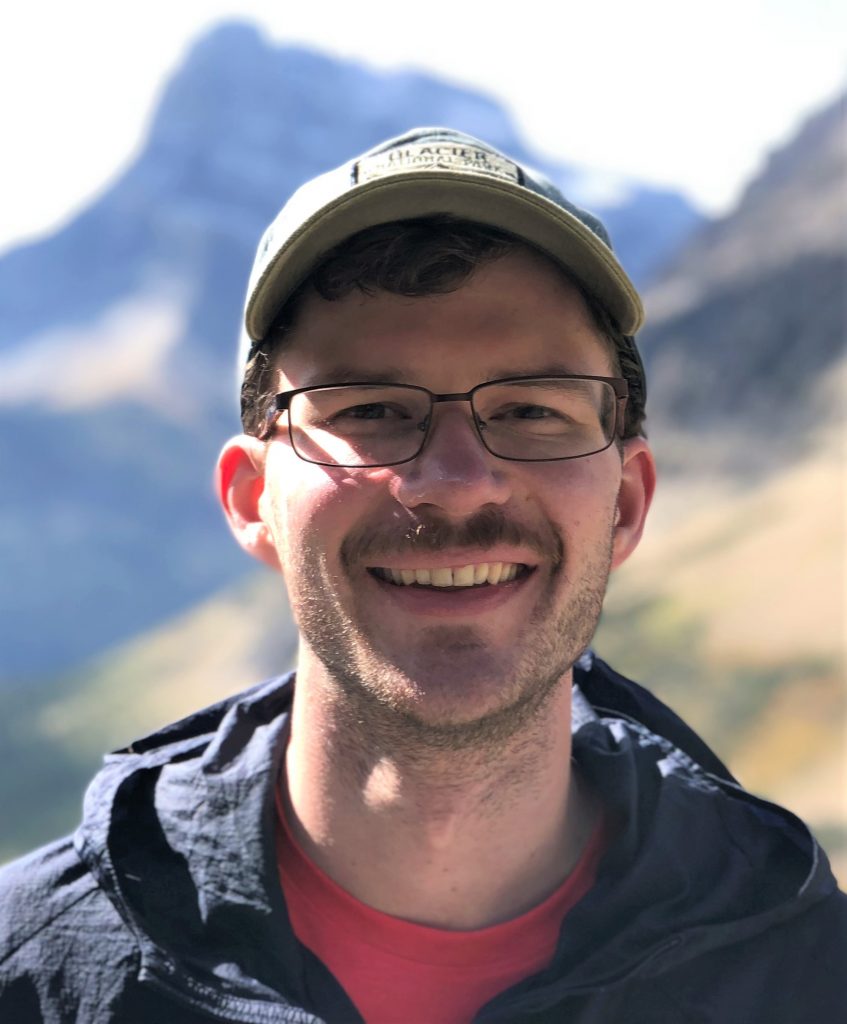
David Sleboda
Carl Gans Award. Each year, DCB evaluates applications for the Carl Gans Award, which was established to recognize Carl Gans’ contributions to animal morphology, biomechanics, and functional biology. This year for the first time, we had the opportunity to hear a half-hour keynote talk by the Gans Award Winner, Alyssa Stark, at the end of the DCB BSP session. Alyssa’s talk, Tenacious Toes and Fastening Feet: Biological Adhesive Systems in Complex Environments, exemplified the outstanding, comparative biomechanics research being done by young, rising stars within our division. The Gans Award is given to 1) an outstanding young investigator in the field of comparative biomechanics and/or 2) an investigator at any career stage for a significant contribution to the literature of comparative biomechanics published in the preceding five calendar years. The awardee receives a commemorative plaque at SICB, reimbursement for travel expenses to the meeting, and the honor of joining the ranks of past Carl Gans Awardees, such as Alyssa Stark, Misty Paig-Tran, Brooke Flammang, Sharlene Santana, Chris Clark, and Eric Tytell. We would love to see more members of our growing, vibrant DCB community included in the nominee pool for this award, so please think about submitting an application or nominating one of your colleagues! Additional details about the Gans award are available at: http://sicb.org/membership/awards.php3#gans.
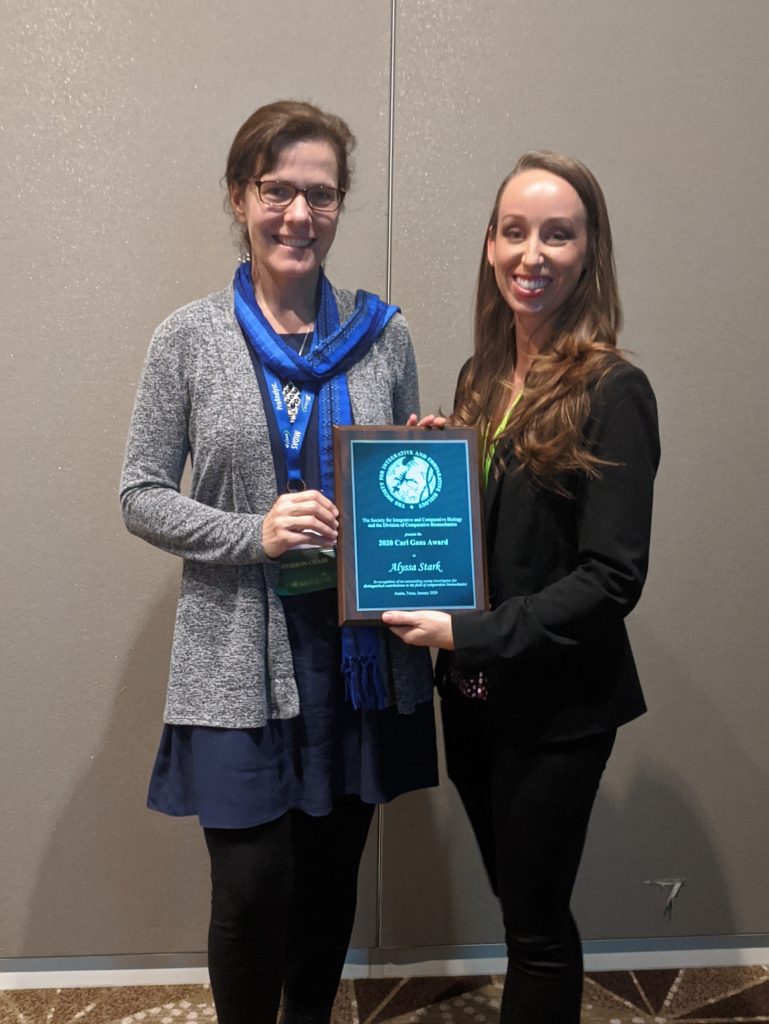
Election for new DCB Chair. This year, we will elect a new Chair-Elect of the Division of Comparative Biomechanics, who will serve as Chair-Elect from 2020-2022 and as Chair of DCB from 2022-2024. Please take the time to read about your colleagues – Marguerite Butler, Brooke Flammang, and James Liao (who have offered to serve in this role) and cast your votes. We especially encourage student and post-doc members to vote — start shaping the future of your society now! Note that you do NOT need to have already paid your 2020 dues to vote — having attended the 2020 meeting in Austin (or being a member in 2019) qualifies you to vote in the spring 2020 elections. We would also like to extend our thanks to Marianne Porter, Andrew Clark, and Eric Tytell for serving on the Nominating Committee for this position.
Future symposium on Mechanical Design of Organisms in honor of Steven Wainwright. At the members’ meeting in Austin, DCB members shared memories of one of the founders of our field, Steven Wainwright, who passed away last year. Steven Wainwright participated in the first session on the topic of biomechanics ever held at a SICB (at that time called American Society of Zoologists) meeting in 1984. Several DCB members have proposed the idea of holding a forward-looking symposium focused on mechanical design in organisms at an upcoming SICB meeting, in honor of Steven Wainwright’s contributions in this area. If you have any ideas to share, or would like to help with planning or organization of this symposium, please contact the DCB Program Officer at dpo.dcb@sicb.org.
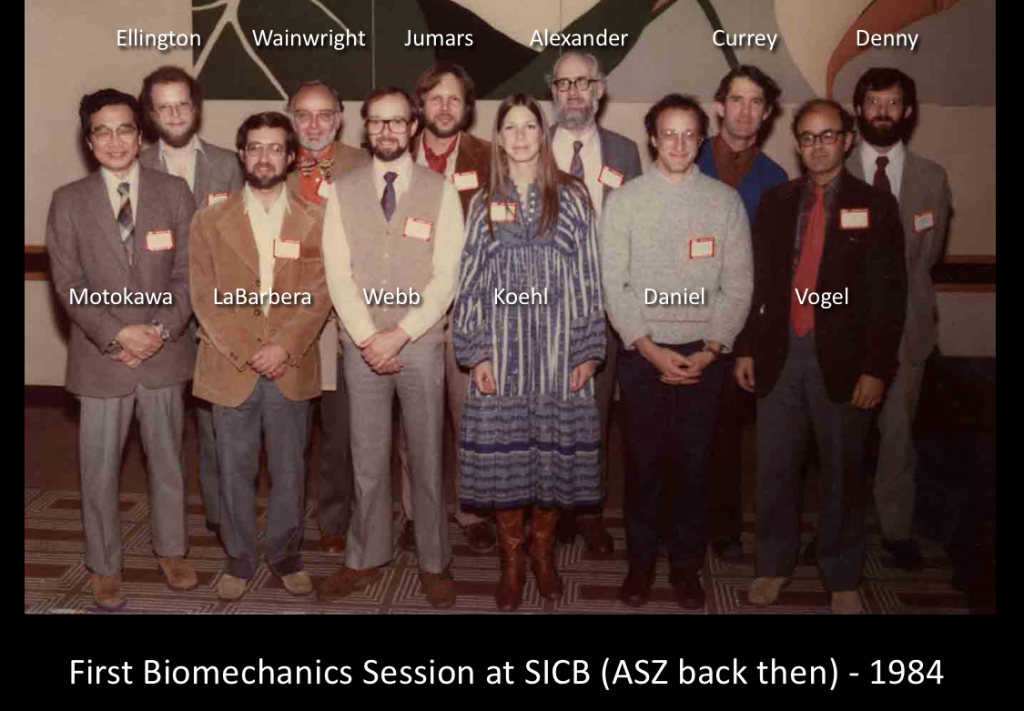
Please send your feedback about changes to the DCB social and Gans Award talk! At this year’s meeting in Austin, we made two changes to our typical programming, and we would love to hear the opinions of DCB members about these changes. First, after a number of years of holding the DCB/DVM socials at off-site locations, the leadership of these two divisions decided that for the time being we needed to switch to holding our joint social on-site. A number of factors led to this decision, including the high cost of off-site socials for the number of people involved, past safety issues for our members when sites can’t be reserved for exclusive SICB use, and the difficulty of arranging for quieter spaces where members can hold conversations (in addition to the music/dancing that many members enjoy). Our primary goal is to provide an event that serves the needs of as many DCB members as possible, whether they enjoy catching up and dancing with old friends, meeting new colleagues, or networking and navigating their first time at the meeting. We are considering organizing off-site socials for upcoming meetings in cases where there is an affordable, interesting site nearby (such as an aquarium, zoo, museum etc.) — but otherwise we plan to hold the socials at the meeting venue in future years.
In addition, for the first time this year we arranged for the Gans Award winner (Alyssa Stark) to deliver a 30-minute keynote talk about her work at the end of the DCB BSP session, when she was presented with her award. The goal of this change was to increase the visibility of the Gans Award for members of DCB, by presenting the award and adding a short talk to the BSP session, which is typically well attended – rather than presenting the award at the members’ meeting with no talk by the recipient, as in the past. We have been told by SICB leadership that scheduling an evening plenary (as for the Bartholomew and Bern lectures) is not feasible, so this seemed like the next best alternative for allowing the Gans Award winner to present their work with the fewest DCB-related conflicts. Again, please share your opinions on one or both of the changes discussed above by emailing them to chair.dcb@sicb.org.
Message from the Program Officer, Matt McHenry, DPO.DCB@sicb.org
I hope that you did not miss the Austin meeting because it was fantastic for our DCB members. SICB 2020 kicked off with one of the all-time great plenary talks by our own Sheila Patek. This was followed by 34 sessions of DCB/DVM talks, numerous poster sessions, 7 biomechanics-related symposia, a wonderful student-paper competition, a trivia-quiz enhanced divisional meeting, and a social that pleased fans of both loud music and a quieter place to talk. Our society and division are attracting a greater diversity of young people and the meeting was buzzing with energy. I spoke with many who left the meeting feeling inspired and recharged. Here is my summary of what happened in Austin and what we can look forward to in future meetings.
Symposia. Symposia are vital to the division and the society in general. They serve to highlight major themes in our field, provide perspectives from outside the society, and serve as a basis for influential published volumes of ICB. Through a strong history of divisional leadership, we are on a streak of supporting excellent symposia. The symposia that we sponsored with DVM in Austin comprised more than half of those presented at the meeting. The talks covered an impressive diversity of topics, including the hydrodynamics of aquatic plants, the silent flight of owls, the evolution of shark teeth, and the role of organismal function in conservation biology.
We are on track to continue supporting diverse and interesting symposia at the upcoming meeting in DC. Here are the topics that DCB and DVM are sponsoring for SICB 2021:
- An Evolutionary Tail: Evo-Devo, Structure, and Function of Post-Anal Appendages. Janneke Schwaner, Tonia Hsieh, Craig McGowan
- Biology Beyond the Classroom: Experiential Learning through Authentic Research, Design, and Community Engagement. Ali Hansen, Lisa Whitenack, Patrice Connors, Hayley Lanier
- Bridging Disciplinary Gaps to Advance Canine Science. Caleb Bryce, Ana Jimenez
- Metachronal Coordination of Multiple Appendages for Swimming and Pumping. Margaret Byron, David Murphy, Arvind Santhanakrishnan
- Physical Mechanisms of Behavior. Patrick Green, Alejandro Rico-Guevara
- The Biology of Sticky: Adhesive Silk, Fiber, and Glue Biomaterials Across Eukaryota. Mercedes Burns, Sarah Stellwagen
Maintaining strong DCB symposia depends on the creative energy of our members. As a former organizer myself, I can say that it is highly rewarding to gather a group of speakers whom you admire and to later see that work in a published volume of ICB. So, please consider organizing a symposium for SICB 2022 in Phoenix, AZ. The deadline for a symposium proposal will be in August, though you will want to start planning soon. If you have some potential ideas, then do not hesitate to contact me with your thoughts (dpo.dcb@sicb.org). Here are some guidelines for what’s involved when organizing a symposium: https://tinyurl.com/tkudwnr
Once SICB members have submitted their symposium ideas, then I will be involved with deciding which ones to approve and grant DCB support. Please help guide me through this process by taking about one minute to fill out the following survey, which indicates the kind of symposium that you would like to attend or maybe organize yourself: https://forms.gle/WYgWamNE9ACLrfBL6
Contributed presentations. It would not be an overstatement to say that biomechanics is kind of a big deal at SICB meetings and this is largely due to the number of contributed presentations. We typically contribute more than one-fifth of the almost 2000 presentations at the annual meetings. The large numbers offer an embarrassment of riches for those of us who enjoy a variety of topics related to biomechanics. Nonetheless, I think we still have room for growth and I would therefore recommend that we all encourage abstract submission by biologists and engineers who have either gotten out of the habit of attending or would enjoy an introduction to our community. I would especially urge people who can drive to the DC meeting to consider submitting an abstract this summer.
You can help yourself get assigned to a session with speakers who share your interests. When you submit an abstract for the DC meeting, select your primary topic under the general subject of Category B: ‘Morphology and Biomechanics’. Presentations under that classification should cross my desk when we put the program together.
Finally, I have to offer my immense gratitude to Phil Anderson and Mason Dean for all of their hard work as Program Officers for DCB and DVM, respectively. Not only did they put together a great program for the Austin meeting, but they also wrote up a mini manual for me and future POs to learn the ropes. Many thanks especially to Phil for getting me up to speed even after wrapping up his successful tenure in this position.
Message from the Secretary, Emily Kane Secretary.DCB@sicb.org
Thanks to Sandy Kawano for her dedication and incredible work serving DCB as Secretary! Her hard work not only means I have large shoes to fill, but also that the transition has been very easy. As Sandy has done, I look forward to continuing to serve the Division as a liaison between members and the Society. Please reach out if you have questions, would like information, or have an opportunity you would like to share with our members!
First, I would like to provide some updates and reminders related to DCB:
DCB Chair-elect election. Our next election will be for the position of DCB Chair-elect, which will serve as chair-elect from 2021-2022, then chair from 2023-2024. You can find our three candidates’ biographies at the end of the newsletter. Thank you to each candidate for being willing to serve our Division!
DCB Researcher’s Database. Let us help you increase the exposure of your lab and submit a contribution to the DCB researcher’s database! For ideas of what to include or to learn more about the work our members do, check out our current database (here). To submit a new contribution (or update an existing contribution), email me at Secretary.DCB@sicb.org and include the following:
- A photo or figure of your research (maximum width = 700 pixels)
- A brief title that describes your research program and / or the submitted photo
- A caption or description to accompany your photo
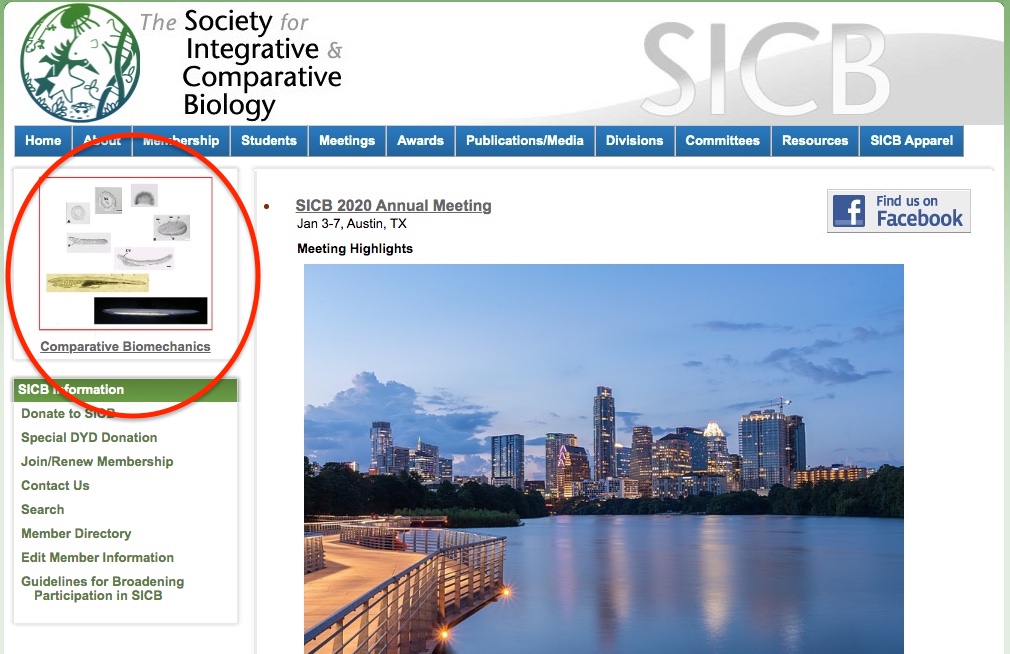
Research and Education Resources. Have you developed lab or course materials related to Biomechanics? Do you have a published dataset that is amenable for use in undergraduate student projects? Do you have cool videos of animals doing incredible things that instructors can use? If so, please consider contributing material to SICB’s Research and Education Resources! This can be a valuable resource for new professors developing their courses (I speak from experience!), for experienced professors looking to refresh their material, or for students looking for ideas for projects or wanting to learn new techniques. Our community is incredibly supportive and has already contributed materials to this database, so let’s keep paying it forward! To submit your materials, go to http://www.sicb.org/rer/ and click ‘Submit’.
There are also lots of great things happening outside if DCB! Here are some upcoming opportunities that you or your students may be interested in.
Journal of Experimental Biology preLights. JEB preLights is looking for contributors! This is a great opportunity for PhD students, postdocs, and pre-tenure faculty to gain exposure and professional experience in science communication. Applications are due by March 20, 2020. For more information, and to apply, see their website or contact prelights@biologists.com.
National Biomechanics Day. National Biomechanics Day is a world-wide celebration of all things Biomechanics for high school students and teachers. This is a great opportunity to showcase comparative biomechanics as a fun and engaging field of study and a potential career pathway for students. The official date is April 8, 2020, but events can be held any spring or early summer day that works best for you. If you plan on hosting an event, you are asked to register your lab, which can be done here. If you do host or participate in an event, let DCB know! We love to highlight our members!
Steven Vogel Young Investigator Award. The Bioinspiration & Biomimetics journal began the Steve Vogel Young Investigator Award in 2017 to recognize the contributions of early career researchers (within 10 years of PhD) in the fields of biomechanics and biomimetics. Consider nominating colleagues (self-nominations are excluded), especially those who have not yet received this type of recognition for their work. The deadline for nominations this year is May 31, 2020. Congratulations to our own Dr. Brooke Flammang who won this award in 2019!
Message from the Student and Postdoctoral Representative, Armita Manafzadeh
Thank you to everyone for making the 2020 annual meeting in Austin such a great success! And thanks especially to everyone who attended the 2020 SPDAC workshop on “Transitions in Science” and/or swung by the SPDAC booth. At the 2021 meeting, we’re looking forward to hosting a SPDAC workshop on “Transferable Skills in Academia and Non-Academia.”
I’m very excited to begin my term serving DCB as the Student and Postdoctoral Affairs Representative! I’d like to take this opportunity on behalf of the student and postdoc members of DCB to thank outgoing representative Brett Aiello for all of his excellent efforts in our division (and for retweeting some really awesome science on the @SICB_DCB_DVM Twitter account) since his appointment in 2017. To briefly introduce myself — my research aims to test paleontological assumptions about articular function in extinct animals using data from the joints of extant animals. Currently, I’m in my fourth year as a PhD candidate in Steve Gatesy’s lab at Brown University, where I’m conducting XROMM analyses of archosaurian hindlimb joints, and developing some new methods for studying in vivo articular function along the way. Let me know if you want to chat about joints!
As the DCB Student and Postdoctoral Affairs Representative, my role is to serve as (1) a liaison between the student and postdoctoral members of our division and the division leadership, and (2) an advocate for the amazing research you’re all doing. So students and postdocs, please feel free to contact me by email (armita@brown.edu) or Twitter (@armanafzadeh) with your suggestions, comments, concerns, or SICB-related feedback, and I’ll be happy to pass them along to Stacy, Matt, and Emily. And everyone, please tag @SICB_DCB_DVM in any tweets you’d like me to signal boost! I’d also love to start highlighting some of your work in more detail, so if you’re a student or postdoc member and you’d like to be featured on the @SICB_DCB_DVM account to share your research with a larger audience, please let me know.
Again, always feel free to reach out to me (armita@brown.edu) — wishing you all a productive Spring and Summer!
DCB Chair-Elect Candidate Biographies
(Ballot: http://burkclients.com/sicb/elections/2020.php)
Marguerite Butler
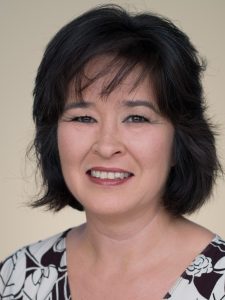
Current Position: Professor, University of Hawaii at Manoa
Education: Postdoctoral Fellow. University of California, Berkeley (2000-2002), Institute for Statistical Mathematics, Tokyo (1998-2000); Ph.D. Evolution and Population Biology. Washington University, St. Louis (1991-1998); M.S. Microbiology (1989-1991), B.S. Interdisciplinary Science (Physics, Biology, Mathematics; 1985-1998), Rensselaer Polytechnic Institute, Troy, NY
Professional Experience: Assistant (2006-2010) and Associate (2010-2018) Professor, University of Hawaii; Assistant Professor (2004-2006) and Research Assistant Professor (2002-2003), University of Tennessee, Knoxville
SICB Activities: Member, Student Support Committee (2006-2007), Participant, Symposium on Ecological Dimorphisms (2007), Participant, Mini-symposium in Honor of Marvalee Wake (2004), Associate Editor of Integrative Organismal Biology (2018-), Member-At-Large (2020-)
Other Memberships: Society for Experimental Biology, American Society of Naturalists, Society for the Study of Evolution, International Society of Vertebrate Morphology, American Association for the Advancement of Science
Research Interests: The Butler lab studies animal performance in the context of biodiversity. We seek to bridge physiological and evolutionary approaches to gain a better understanding of how life evolves. Two current projects include the contribution of performance to diversification in a large group of Papuan microhylid frogs (300+ species), which have evolved jumping, swimming, climbing, and burrowing forms; and visual system specialization in the exploitation of light microhabitats in an adaptive radiation of Hawaiian damselflies. See http://butlerlab.org for more information.
Goals statement: As someone who started her career in evolutionary biology, I have always been grateful for the warm reception, mentoring, and collaboration that Iʻve received from the many generous members of DCB that have enabled me to expand my approaches. I wholeheartedly support DCBʻs commitment to nurturing young scientists and promoting interdisciplinary science, goals which have resulted in a vibrant scientific society. As a former faculty senate chair at UH Manoa I saw firsthand the importance of inclusive leadership and forward-thinking faculty in service roles. I would like to continue efforts to build mentoring networks and promoting smaller-scale social interactions as DCB grows larger, both of which are especially important for our younger and newer colleagues and encourages our exciting cross-disciplinary science as well. At recent meetings, I have realized that many of us are without close colleagues at our home institutions and may benefit from mid-career mentoring. I would like to hear your thoughts on ways that DCB might increase support to careers at all stages. I love DCBʻs efforts to promote forward-looking symposia and bridge to other divisions of SICB and fields beyond, and its dedication to collegiality. I am eager to help support DCB in any way I can.
Brooke Flammang
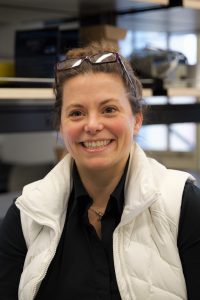
Current Position: Assistant Professor, Federated Department of Biological Sciences, New Jersey Institute of Technology/Rutgers University
Education: PhD, Harvard University, 2010
Professional Experience: Associate of Ichthyology, Museum of Comparative Zoology, Harvard University, 2014 to present; Faculty Seminar Associate, Columbia University, 2014 to present; Board of Freshman Advisors, Harvard College, 2011-2013; Postdoctoral Researcher, Harvard University, 2010-2014; Faculty, Harvard Extension School, Division of Continuing Education, Harvard University, 2009-2014; Editorial Board, Bioinspiration and Biomimetics, 2020-2021; Associate Editor, Royal Society Open Science, 2018-present; Assistant Editor, Integrative and Comparative Biology, 2019-2024; Editorial Advisory Board, Zoology, 2015-2019
SICB Activities: Program Officer, Division of Vertebrate Morphology, 2017-2019; Workshop co-Organizer, “Parenting Through Academia”, 2020; Symposium co-Organizer, “Bioinspiration: Applying mechanical design to experimental biology”, 2011; active member since 2005
Other Memberships: Secretary, International Society for Vertebrate Morphology, 2019-2022; Adhesion Society, American Association for the Advancement of Science, American Physical Society
Research Interests: I am primarily interested in the physics underlying organismal performance and the evolution of morphology. My students’ and my work integrates functional morphology, comparative biomechanics, fluid dynamics, and bioinspired robotics to better understand locomotor mechanics amongst the tremendous diversity of fishes. In short, we are interested in the different ways that organisms swim, walk, and stick in place to go nowhere at all, the physics that constrain performance and selection for unique morphologies, and the fundamental properties of biomechanics that hold true for all organisms.
Goals Statement: Comparative Biomechanics is by default an integrative science. Success in integrative biology relies upon robust collaborative endeavors among diverse thinkers – exactly the environment that I feel is fostered and continues to grow strong within SICB. If chosen as DCB Chair-elect, it is my goal to foster a welcoming environment within our membership at all ranks, which I believe will ultimately lead to the greatest science our rapidly growing division can offer. I would like to work towards increasing opportunities and recognition for our early-career researchers, particularly through emphasizing the Steven Vogel Grant in Aid of Research and through the Best Student Talk and Poster awards. I was thrilled to see that the Gans Award included a plenary address this year, and I support the continued elevation of this prestigious honor. I have worked towards promoting equal opportunity and treatment within SICB through advising on parenting resources and being a Code of Conduct Ally. As Chair-elect I bring the same intentions for an environment of inclusivity and diversity within DCB in both the professional and social aspects of our meeting.
James C. Liao
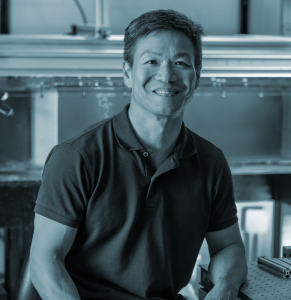
Current Position: Associate Professor of Biology and University Term Professor, University of Florida/The Whitney Laboratory for Marine Bioscience. Affiliate Professor, J. Crayton Pruitt Family of Biomedical Engineering.
Education: Ph.D. Biology, Harvard University (2004), M.A. Biology, Harvard University (2003), B.A. Biology magna cum laude, Wesleyan University (1996).
Professional Experience: Assistant/Associate Professor of Biology and Affiliate Professor, J. Crayton Pruitt Family of Biomedical Engineering, University of Florida/The Whitney Laboratory for Marine Bioscience (2009-present); Instructor, Neurophysics of Sensory Navigation, Santa Barbara Advanced School of Quantitative Biology/ Kavli Institute for Theoretical Physics (summer 2018); Research Associate, Division of Vertebrate Zoology, American Museum of Natural History (2011-2014); Affiliate Assistant Curator of Ichthyology, Florida Museum of Natural History (2009-present); Research Associate, Department of Neurobiology, Cornell University (2007-2008); NIH NRSA Postdoctoral Fellow, Cornell University (2004-2007); Visiting Research Faculty, Undergraduate and Graduate Tropical Field Biology, Organization for Tropical Studies (2000-present).
SICB Activities: Member of DVM since 1998. Judge, student awards in Divisions of Comparative Biomechanics, Vertebrate Morphology, and Neurobiology (2005-2014). Public Affairs Committee (2017-2020).
Other Memberships: Association for Research in Otolaryngology; Society for Neuroscience; International Society for Neuroethology; Society for Experimental Biology; American Society of Ichthyologists and Herpetologists.
Research Interests: My lab is interested in the mechanisms of vertebrate behavior. I look through the lens of biomechanics and neuroscience to better understand fish behavior across multiple levels of biological organization, from single neurons to the whole organism. Our approaches include using optogenetic and electrophysiological approaches in zebrafish to understand the neural circuits underlying sensorimotor behaviors, and leveraging comparative studies to understand how the environment influences organismal performance. Current work in the lab is focused on understanding the algorithms of predator attack strategies using a closed-loop virtual reality system and improving ways to monitor the movement ecology of fishes in the field with high spatial and temporal resolution. In other words, we try to bring the ocean into our lab as well as bring our lab to the ocean.
Goals Statement: DCB is a gem within SICB, and I’d be honored and excited to expand the goals of this division by attracting and retaining scientists from non-traditional backgrounds and bringing in creative ways to communicate more broadly with society. I would like to build on my science communication and storytelling experiences with the SICB Public Affairs Committee to develop skills needed to convey our messages powerfully to the public. Similar to the workshop I organized “Persuasive Communication: When Acting Meets Science,” I envision establishing a permanent program that brings in performance artists (improvisation and theater instructors, public speakers, etc.) to help improve the effectiveness of our communication. I also think it is important to provide more effective social opportunities so that scientists at all career stages have the opportunity to interact. This would establish rapport early on with leaders in the field and provide perspective and strategic insight to early career scientists.
DCE
Table of Contents
Division of Comparative Endocrinology: Spring Newsletter 2020
Please vote in the Spring 2020 Elections (candidate biographies can be found below). The deadline is April 19th, and the ballot can be found in the link provided here. http://burkclients.com/sicb/elections/2020.php
Message from the Chair, Kathleen Hunt, Chair.DCE@sicb.org
Austin 2020 Highlights. I hope you all were able to attend the annual meeting in Austin. We were blessed with beautiful weather for the entire meeting — though I saw very little of that nice weather due to the fact that the meeting was so good! I was genuinely impressed with the quality of the research presented this year.
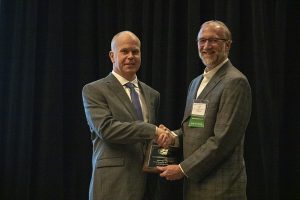
2020 Bern Lecture. The 20th annual Howard Bern lecture was presented by Dr. George Bentley. His lecture, “A Bird’s Eye View of Reproductive Endocrinology,” provided a compelling case that the animals we study in the lab are not the same as wild animals in the field. His lecture was wonderful and I walked away more convinced than ever that the individual animal’s context — reproductive state, history, recent experiences, social environment, food availability and so forth — is critical to interpreting endocrinology data correctly. The lecture was very well attended and was followed by much discussion that continued at our social, which this year was on site just outside the Bern lecture hall.
2020 DCE Social. Our divisional social was co-convened with several other divisions (DAB, DEDE, and DNNSB). This year we also had the pleasure of combining the announcements of student winners with those of the Division of Animal Behavior. It felt quite festive for multiple divisions at the social to be co-celebrating all the students’ achievements, no matter which division those students might be in, and I look forward to another joint social next year!
2020 DCE Symposia. DCE hosted three symposia at the 2020 meeting: “Epigenetic Variation in Endocrine Systems”; “Reproduction: The female perspective from an integrative and comparative framework”; and “Building Bridges from Genome to Phenome: Molecules,Methods and Models.” All symposia were well-attended and were quite fascinating. I thank all organizers and speakers for these excellent symposia. It’s been a pleasure to see DCE members proposing more symposia, and I hope this trend continues. (See below for the call for new symposia for Phoenix 2022).
Rosemary Knapp Special Session. We were all greatly saddened this year by the passing of Rosemary Knapp, a long-time colleague who was not only a skilled scientist and a consistent supporter of SICB, but also a great friend to many of us. A special session was convened in her memory this year, with her family members among the many people in attendance. We all miss Rosemary’s bright smile, but it was heartwarming to see what a scientific legacy she has left and how many people she touched in her career.
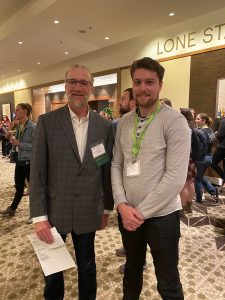
Student Competition Results. As has become the norm, we had intense student competitions for the Aubrey Gorbman Oral Presentation Award and the Lynn Riddiford Poster Presentation Award. The competition is consistently fierce in both competitions, and judging is always terribly difficult, often with a cluster of top presentations separated by only a point or two in the judges’ scoring. The Aubrey Gorbman Best Student Oral Presentation went to Jordan Boersma for his talk entitled “Sex-Specific Causes and Consequences of Variable Testosterone Circulation in a Tropical Songbird”, while Mary Woodruff (with co-authors Sermersheim & Rosvall) won the Lynn Riddiford Best Student Poster Presentation for a poster entitled “Do endotherms acclimate to heat? Physiological responses to a simulated heat wave in free-living birds.” A big thanks to all of the participants and congratulations to the winners! A special thanks goes to all those who volunteered their time to judge the presentations.
New Business. The DCE business meeting covered a number of important topics, perhaps the most notable being a suggestion from chair Loren Buck (now former chair) that DCE consider rebranding, including a possible change in name.
Rebranding DCE? To briefly summarize the discussion from the business meeting, DCE has had low and gradually declining membership for a number of years. As Dr. Buck and others pointed out, there are several other groups of endocrinologists in the world who might attend DCE if they were made aware of it or if our name were broader. As discussion continued, a related issue emerged: one factor in membership decline may be the additional $10 fee that DCE charges for registration. This $10 fee goes to support our affiliation with International Federation of Comparative Endocrinological Societies (IFCES), and secures DCE members a discounted rate for attending other meetings affiliated with IFCES (for example, meetings of the European Society of Comparative Endocrinology, and of the North American Society of Comparative Endocrinology) – but this fact is probably opaque to most SICB registrants. The $10 fee appears on the SICB registration webpage with no explanation and may be a deterrent – many scientists who use endocrinology tools are also members of other divisions, and may not necessarily see a reason to tick another box if doing so involves an extra fee. In light of the interest expressed in these linked issues of rebranding, IFCES membership, and the $10 registration fee, an ad-hoc committee has been formed that will gather input from DCE members, consider various options and likely will draft up proposals for vote either this summer or next summer. At the business meeting, Ned Place and Ignacio Moore volunteered for the ad-hoc committee and have since reached out to other potential members. I think all involved are cognizant of the need to seek input from the full diversity of DCE members (of all career stages and backgrounds). Stay tuned for more discussion this spring and summer, including possible surveys to gauge interest in all the above, and potential votes this summer regarding changes to bylaws that might be necessary. If any DCE members have thoughts on any of the above, please contact Ignacio Moore directly at: itmoore at vt dot edu (replace “at” and “dot” with the usual.)
Howard Bern Fund Update. The endowment for the Howard Bern fund continues to grow slowly. I encourage all members to consider making a contribution to the fund to ensure its long-term solvency. Even small contributions help! Not all SICB divisions host an evening talk, so this is the event that really presents the face of DCE, and the state of our field, to the rest of SICB. We have been fortunate to have many spectacular Bern speakers and we hope to continue this going forward. This year, we collected names for possible Bern nominees earlier than usual, during the business meeting. This method of brainstorming nominees was a smashing success, with over 60 names represented (many with repeated nominations). The Bern nomination committee now has a large pool of potential nominees to consider; please continue to send in any additional nominations. A decision will be made by the Bern nomination committee during the spring, so send in your ideas early. If you have nomination ideas, please contact DCE Secretary Timothy Greives at: secretary.dce@sicb.org.
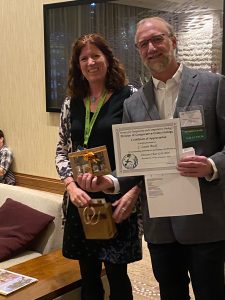
DCE Officer Updates. At the end of the Austin meeting, Loren Buck stepped down as chair and I stepped in. I want to thank Loren for his service to DCE as Chair over the past three years. As chair-elect, I have been shadowing Loren for several years and it has been an inspiration to see Loren’s commitment to DCE and to SICB, as well as learning from his thoughtful ideas about ensuring a bright future for DCE. I very much hope he’ll continue to be involved in the future.
I’d also like to take a moment to highlight the work of the other DCE officers. As new chair of DCE I am rapidly finding that the chair’s duties are made a thousand-fold easier by the other officers, who collectively shoulder the burden and deal with dozens of logistical details. DCE Program Officer Brian Walker deserves special mention here. As most of you know, the program officer has the difficult task of scheduling all DCE symposia, sessions, and the social, assessing venue layout, solving the innumerable logistical problems, and wrestling with the many presenters’ scheduling conflicts. Brian’s hard work began many months before the meeting, and will continue through and after the meeting. His tireless efforts were instrumental to pulling together a fantastic program, and another successful DCE social. DCE Secretary Timothy Grieve and DCE postdoc/student representative Carla Madelaire were also front and center whenever needed. Our thanks also to chair-elect Rachel Bowden, program-officer-elect Sara O’Brien, and secretary-elect Christine Lattin, all of whom donated considerable time to DCE issues this year despite the fact that they are not even obliged to do so yet! Former chairs Michael Romero, and, now, Loren Buck, also have my thanks for their continued willingness to meet with new chairs and chairs-elect to help show us the ropes.
POSSIBLE VOTE THIS SUMMER! Due to our recent vote to extend the program officer term to three years, this summer’s DCE elections will not have any officer elections. However, as mentioned above, we may have votes on other issues, such as whether or not to pursue the possible rebranding and whether to continue the $10 registration fee and IFCES membership. Some of these possible changes may require votes for appropriate changes to DCE bylaws. Look for emails in summer about any votes that may occur this summer.
Future Symposia. We also wish to encourage symposium ideas for the next meeting after D.C., which will be in Phoenix in 2022. Symposia will be due this summer (symposia are proposed a year and a half in advance so as to allow time to secure funding for participant travel). We would particularly like to encourage symposium ideas that cover taxa or topics not being studied by current DCE leadership – we’d love to attract new audiences to SICB!
Message from the Program Officer, Brian Walker. DPO.DCE@sicb.org
Thanks to all who attended the Austin meeting. I believe it was a smashing success, and the quality of both talks and posters was once again excellent. Hopefully, you all felt the venue was convenient, with all programming in one building, and lots of social activities to be had close by.
Once again, I’d also like to thank my colleague and friend Dr. George Bentley for giving a most excellent Howard Bern lecture. While he perhaps surprised many in the room by not talking about GnIH, his “Bird’s Eye View of Reproductive Endocrinology” was thought provoking and appreciated!
As mentioned by the Chair, I would also like to again congratulate the two winners of the DCE student competitions. The Aubrey Gorbam best oral presentation was awarded to Jordan Boersma, from Washington State University, and the Lynn Riddiford award for best student poster was awarded to Mary Woodruff, from Indiana University. Many thanks to all of the judges who assisted in listening to this suite of excellent student talks and visiting the posters. It is always a difficult decision in choosing a winner!
The 2021 SICB Conference in Washington DC will be here before we know it. DCE will be sponsoring four symposia next year. The titles are:
- Blinded by the Light: Effects of Light Pollution across Diverse Natural Systems
- Biology Beyond the Classroom: Experiential Learning through Authentic Research, Design, and Community Engagement
- Manakin Genomics: Comparative Studies of Evolution and Behavior in a Unique Clade of Birds.
- Sending and Receiving Signals: Endocrine Modulation of Social Communication
We look forward to these, as well as to the suite of talks and posters that you all are currently collecting and analyzing data for at this moment. Encourage colleagues and students to think about joining us for SICB 2021 in Washington DC!!!!!
Message from the Secretary, Timothy Greives, Secretary.DCE@sicb.org
It was a great meeting in Austin this year – it was great to see so many familiar faces and meet new ones! Thanks to all who participated for helping make the conference a success.
Normally in this space, I would be telling you that we will have elections for a new Program Officer-elect. However, last summer, the DCE membership voted to approve changes to the by-laws to extend the term of service for the Program Office from two to three years. Brian Walker graciously agreed to stay on for a third year as PO as we transition from the two to three year term of service. Because of this change, this year we do not have any elections for divisional positions.
The minutes from this year’s business meeting will be available on the SICB DCE website (http://www.sicb.org/divisions/DCE/minutes.php3). If you missed the business meeting, please take a look, as there were many items of importance that we discussed. Most importantly, as mentioned by Kathleen above, there was discussions about growing our division, with possible ideas towards this goal being re-branding the division, removal of the $10 registration fee for students/post-docs as well as the benefit of continued membership (including paying annual dues) in the International Federation of Comparative Endocrinological Societies (IFCES). We welcome any comments or feedback following these discussions that occurred at the business meeting. As mentioned by Kathleen above, the ad hoc committee has started to formulate suggestions for re-branding. The DCE officers will continue to formulate a plan, and we will keep you informed over the course of the coming year.
Finally, please know that you can email me at secretary.DCE@sicb.org with any announcements you would like to have included in the SICB monthly member update. If you would like to do this, please be sure to do so by the 5th of each month.
Message from the Student/Post-doctoral Affairs Committee Representative, Carla B. Madelaire
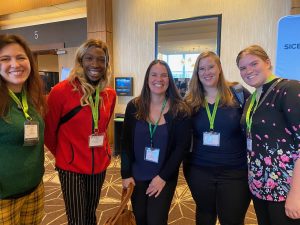
Hello, I hope everyone had a great SICB meeting this year! I would like to thank the 10 faculty members, who shared their time and experience in the “Lunch with a Comparative Endocrinologist” and the 21 DCE students/post-docs that enthusiastically participated. This is one of the events I look forward to every SICB meeting because it is a valuable opportunity for students and post-docs to have open conversations about career, life and science in an informal environment.
The DCE committee also would like to congratulate the winners of DCE Best Student Presentation: Jordan Boersma for best oral presentation and Mary Woodruff for best poster presentation. The competition was tight, with excellent work and presentations. Well done to all and congratulations to Boersma and Woodruff!
Other highlights of the last SICB meeting were the sessions Celebrating the Scientific Contributions of Rosemary Knapp, where we could celebrate her scientific contributions and see how she inspired the work of so many other comparative endocrinologists, and S.T.R.E.S.S., which was an awesome opportunity to learn about stress endocrinology in different taxa and levels of organization. In addition, the meeting featured some remarkable workshops for students and post-docs, including: “Mentorship and Sponsorship: How to Curate Your Support Team and Guide Your Successful Career” organized by Dr. Laura Mydlarz, with support from the Broadening Participation Committee (BPC) and “Can We Talk? Difficult Conversations with Underrepresented People of Color: Sense of Belonging and Obstacles to STEM Fields” offered by BPC.
Don’t forget to follow us on twitter @SICB_DCE and join the DCE Facebook group: SICB Division of Comparative Endocrinology. Throughout the year, please tag us in your posts and tweets when you share research, papers, grants, post-doc or student opportunities, or other news. I will be glad to feature your research on DCE social media. SICB also provides an amazing list of External Grant & Fellowship Opportunities for Students and Postdocs, which can be accessed through the “For Students” tab on the SICB website. If you have any suggestions that could improve my DCE students/post-docs representation, please, contact me by email (cmadelaire@nau.edu).
DCPB
Table of Contents
- Message from the DCPB Chair, Kenneth Welch, Jr., Chair.DCPB@sicb.org
- Message from the DCPB Program Officer, Kristi Montooth, DPO.DCPB@sicb.org
- Message from the DCPB Student and Postdoctoral Affairs Committee Representative, Andrea Rummel
- Message from the DCPB Secretary, Heather Liwanag, Secretary.DCPB@sicb.org
- DCPB Chair-Elect Candidate Biographies
- DCPB Program Officer Candidate Biographies
Division of Comparative Physiology and Biochemistry: Spring Newsletter 2020
Please vote in the Spring 2020 Elections (candidate biographies can be found below). The deadline is April 19th, and the ballot can be found in the link provided here. http://burkclients.com/sicb/elections/2020.php
Message from the DCPB Chair, Kenneth Welch, Jr., Chair.DCPB@sicb.org
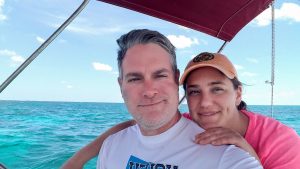
Warm greetings from the Great White North of Toronto, Ontario, Canada where, as I write this, the temperature outside is exactly 0°F (-18°C). The 2020 annual meeting in Austin was very successful, and I think fondly of the mild weather there as a preview of what’s to come further north. In total there were 2278 attendees at this year’s meeting, giving over 1800 presentations. 1069 of the attendees were students, including 2 high school students and over 350 undergraduates, about half a dozen of whom hailed from my own alma mater just down I-35 in San Antonio (Trinity University). DCPB was, as usual, strongly represented at the meeting, with about 20% of the attendees proudly displaying their DCPB affiliation on their badge.
DCPB sponsored four society-wide symposia at the Austin meeting. These highlighted a diverse suite of research areas and were all well attended. These were:
- New Frontiers in Antarctic Marine Biology, organized by James McClintock, Charles Amsler, Bill Baker, Art Woods, and Amy Moran
- Epigenetic Variation in Endocrine Systems, organized by Tyler Stevenson, Lynn Martin, and Haley Hanson
- Reproduction: the Female Perspective from an Integrative and Comparative Framework, organized by Virginia Hayssen and Teri Orr
- Building Bridges from Genome to Phenome: Molecules, Methods and Models, organized by Karen Burnett, Jonathon Stillman, Donald Mykles, and David Durica
The 2020 George Bartholomew Award lecture sponsored by DCPB was presented by Dr. Mary Caswell Stoddard, and Assistant Professor at Princeton University. Dr. Stoddard’s talk, entitled “Diversity of form and function in the colorful world of birds,” was interesting and engaging, highlighting the innovative work done by one of our society’s rising stars. It seemed many in the audience felt the same way, as Dr. Stoddard was still fielding questions from excited attendees for quite a while after the room had emptied and folks had headed to the following social. Dr. Stoddard was selected from a pool of outstanding nominees, and we eagerly anticipate another strong group of nominees in the coming year. New nominations for the George Bartholomew Award are due by August 24, 2020 and should be sent to Bart.award@sicb.org. More about the award can be found at http://sicb.org/about/constitution.php3#dcpbbylaws.
I want to thank Past-Chair of DCPB, Dr. Inna Sokolova (University of Rostock), for her years of service to DCPB and for serving as chair of the George Bartholomew Award Selection Committee. Thanks go as well to the other members of the committee for their work this past year in selecting among the many excellent candidates. And, as always, we thank John Lighton and Robin Turner of Sable Systems International for their continuing, generous support of the George Bartholomew Award.
I want to take a moment to thank Dr. Kristi Montooth (University of Nebraska) for her service as DCPB’s Program Officer (PO) and congratulate her and the rest of the SICB Program Committee for putting together an excellent program. The challenge of assembling a coherent and accessible program should not be underestimated. For example, I want to personally thank the committee for scheduling my own two students’ talks, which were appropriately each part of a different session, with a 15 minute break in between! Having time to scoot from one room to the next without missing anything meant a lot to me! Thank you, Kristi!
Thanks are due, as well, to our outgoing officers. Thank you, Dr. Kim Hammond (UC Riverside), for your diligent service as Chair these past two years, and for preparing me to take up this new role. You have been a mentor since I first visited your lab as a graduate student more than 18 years ago, through my time as a postdoc at UC Riverside, and as Chair-Elect. I look forward to your continued mentorship in your new position as DCPB’s Past-Chair! Thanks as well to Dr. Marshall McCue for his service as Divisional Secretary these past two years. We all missed seeing him at the meeting in Austin and wish him and his family well as they adjust to having just added a new family member! On that note, I want to thank Dr. Heather Liwanag (Cal Poly State University) for stepping into her role as our new Divisional Secretary a few days early to allow Marshall the chance to spend time with his new arrival. I very much look forward to working with all the members of the division executive committee, including Andrea Rummel (Brown University), who begins her third year as DCPB’s representative on the Student/Postdoctoral Affairs Committee (SPDAC)! Lastly, thanks are due to the members of the DCPB Nominations Committee: Drs. Alex Gerson (University of Massachusetts Amherst), Marshall McCue (Sable Systems International), and Caroline Williams (UC Berkeley). Thank you for your work under pressure and tight deadlines!
Message from the DCPB Program Officer, Kristi Montooth, DPO.DCPB@sicb.org
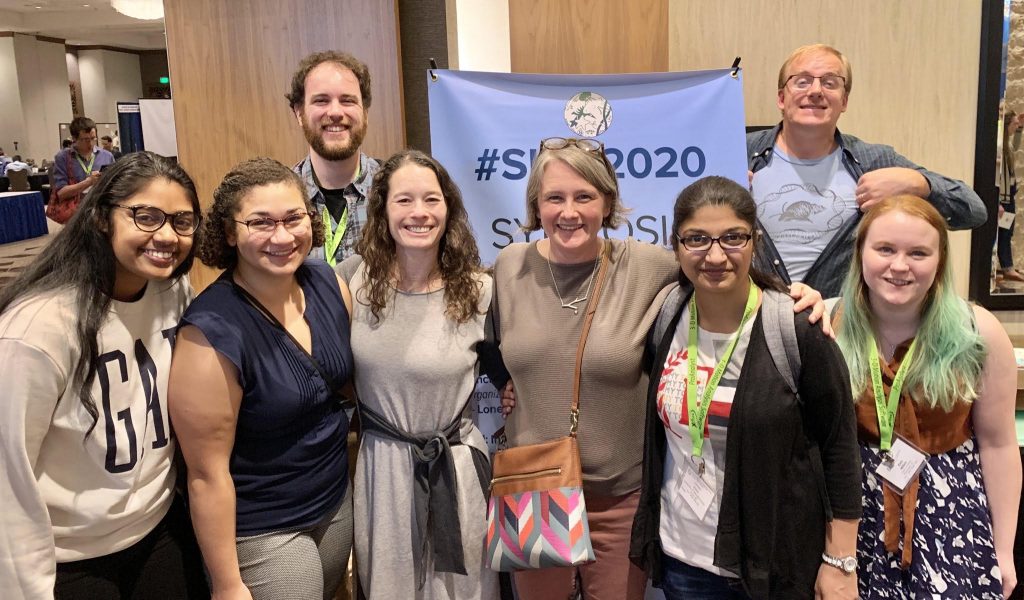
I had a fantastic time engaging with so many SICB and DCPB members and hearing about the newest in integrative research at the Austin 2020 meetings. I hope you did, too. I am struck by the growth of this meeting and the ever-increasing diversity of scientists and breadth of research. I am pictured here with a group of New Zealand mud snail (Potamopyrgus antipodarum) researchers, many of whom were first-time attendees who we hope to see again at future meetings, such as the upcoming 2021 meeting in Washington, DC, Jan 3-7.
Many of the great ideas for initiatives that make SICB and its annual meeting more inclusive and supportive come from the next generation of scientists. I would like to encourage full participation of all members in the society and in our DCPB. To our student and postdoctoral members, please take the opportunity to engage in society business, vote, and participate in symposium and workshop development. Your science, voices, and visions are the future of the society and of DCPB. You can follow our Twitter feeds @sicb_dcpb @SICB_SPDAC @SICBtweets. Please e-mail me at DPO.DCPB@sicb.org with any ideas that you may have for meeting activities that support a diverse membership and advance their scientific and professional goals.
It was great to see such fantastic research in the areas of comparative physiology and biochemistry at the meeting in Austin. There were nearly 160 abstracts presented in the area of Physiology & Biochemistry across 7 poster sessions and 12 oral sessions. Nearly half of all talks affiliated with DCPB were contributed by student members. DCPB co-sponsored four symposia that will make for great reading in this year’s issues of Integrative and Comparative Biology.
Students, don’t forget about the opportunity to participate in the “Best Student Presentation” competitions. Thank you to everyone who volunteered, chaired a session, and participated in or scored the best student presentations in Austin. Your contributions make the meetings a success!
We hope to see you in Washington, DC 2021, where DCPB will be co-sponsoring a diverse lineup of seven symposia:
- Biology Beyond the Classroom: Experiential Learning through Authentic Research, Design, and Community Engagement, organized by Alexandria Hansen, Lisa Whitenack, and Patrice Kurnath Connors
- Biology’s Best Friend: Bridging Disciplinary Gaps to Advance Canine Science, organized by Caleb Bryce and Ana Jimenez
- The Integrative Biology of Pigment Organelles, organized by Florent Figon, Jérôme Casas, and Leila Deravi
- The Biology of Sticky: Adhesive Silk, Fiber, and Glue Biomaterials across Eukaryota, organized by Karen Maruska, and Julie Butler
- Genomic Perspectives in Comparative Physiology of Mollusks: Integration across Disciplines, organized by Omera Matoo and Maurine Neiman
- Blinded by the Light: Effects of Light Pollution across Diverse Natural Systems, organized by Meredith Kernbach, Stephen M. Ferguson, Valentina Alaasam, Colleen Miller, and Clint Francis
Please feel free to contact the organizers if you are interested in presenting in the oral or posters sessions that are complementary to these symposia.
Finally, we are looking for outstanding symposium proposals for the Phoenix 2022 meetings. The symposia are a vital component of our ICB journal, and the DCPB has a history of co-sponsoring strong symposia that highlight emerging areas in integrative and comparative biology. Proposals will be due in late summer of 2020. Symposia that integrate across disciplines and include a diversity of speakers across speaker gender, background, and academic rank are more likely to gain broad support within SICB and with funding agencies such as NSF.
Student and postdoc members, you are the future of integrative and comparative biology, and we encourage you to take part in organizing a symposium or workshop; it is a great opportunity for professional and scientific development. Feel free to contact me at the e-mail address above or SICB Program Officer Jake Socha (programofficer@sicb.org) with ideas for symposia or with questions. I am happy to brainstorm ideas, facilitate collaborative symposium development, and provide past successful proposal examples to help in your proposal development and in obtaining external funding to help support the attendance of your speakers.
Finally, I encourage you to submit your research findings to the fully open-access SICB society journal Integrative Organismal Biology. SICB members receive a significant discount for publication charges, making this one of the most reasonable open-access publishing options available!
Special Session in Honor of George Gilchrist at SICB 2021, organized by Martha Muñoz and Cameron Ghalambor
Dear DCPB Members,
We are writing to invite you to a Special Session in honor of George Gilchrist at SICB 2021 in Washington, DC. George has left an indelible mark on our community and we would like to celebrate his life and legacy.
We are also looking for speakers who are interested in contributing to the session. If you’d like to give a talk that celebrates George in any way, please feel free to e-mail us (martha.munoz@yale.edu and Cameron.ghalambor@colostate.edu). Also, please feel free to share this information with other you think would be interested in the session.
Although this is a somber time, we hope this special session provides an opportunity for us to celebrate the many ways that George has made a positive impact in our lives.
Best, Martha and Cam
Message from the DCPB Student and Postdoctoral Affairs Committee Representative, Andrea Rummel
The Student and Postdoctoral Affairs Committee (SPDAC) had a great time at the Austin 2020 meeting, facilitating a workshop, Transitions in Science, and interacting with folks at our booth during the poster sessions. Now, SPDAC is looking towards the 2021 meeting in DC. We are planning a workshop, a panel followed by roundtable discussions, focusing on the theme “Transferrable skills in academia and non-academia.” We plan to invite experts inside and outside academia, taking advantage of SICB’s membership and DC’s unique ecosystem of governmental and policy organizations, NGOs, and museums. Stay tuned for more information as SICB 2021 approaches!
We’ll again be hosting the SPDAC booth during the poster sessions, staffed with SPDAC committee members and other experts to distribute brochures and answer questions on different themes, like finding a postdoc; science communication; writing research, teaching, and diversity statements; and more. If you have ideas for discussion or content for either of these events that you’d like to see included, or any other suggestions, contact me via e-mail (andrea_rummel@brown.edu) or the DCPB or SPDAC Twitter accounts (@SICB_DCPB and @SICB_SPDAC). Don’t forget to take advantage of Charlotte Magnum Support for housing at the next meeting, apply for SICB Grants in Aid of Research, and check out other resources for support (many listed here for members: http://www.sicb.org/grants/externalgrants.php). See you in DC!
Message from the DCPB Secretary, Heather Liwanag, Secretary.DCPB@sicb.org
Hi there, DCPB! We have some great things going on, and there are certainly even more great things our members may want to share with the division. If there is any news you would like to share with the DCPB membership, including job ads, postdoctoral positions, and opportunities for students, please feel free to contact me at Secretary.DCPB@sicb.org. If you would like to see your research highlighted on the SICB website in our Researchers Database, please send me a research picture, a title for the picture/research, and a brief (1-3 sentences) description of your research via e-mail. Examples can be found at http://sicb.org/divisions/DCPB/researchers.php3.
Elections for divisional Chair-Elect and divisional Program Officer will take place later this spring. We have two fantastic candidates for Chair-Elect, Dr. Jon Harrison and Dr. Jonathon Stillman, and two excellent candidates for Program Officer, Dr. Zac Cheviron and Dr. Mike Sears. Ballots will be issued in March, so keep an eye out for the SICB Election e-mail and please vote! On behalf of the DCPB, I give my sincere thanks to these outstanding candidates for their willingness to serve our division.
Thanks to all of our members for your continued support of the DCPB. I look forward to seeing all of you in Washington, DC!
DCPB Chair-Elect Candidate Biographies
(Ballot: http://burkclients.com/sicb/elections/2020.php)
Jon Harrison

Current Position: Professor, School of Life Sciences, Arizona State University
Education: B.Sc., University of Toronto (1978); Ph.D., Univ. of Colorado, Boulder (1987); Postdoctoral Fellow, Department of Zoology, University of British Columbia (1988-1990)
Professional Experience: Assistant Professor, Department of Zoology, Arizona State University (1991-1997); Associate Professor, Department of Biology, Arizona State University (1997-2002); Professor, School of Life Sciences, Arizona State University (2002-present); Associate Director of Facilities, School of Life Sciences, Arizona State University (2005-2009); Institutional Official for animal Care, Arizona State University (2011-2013); University Research Integrity Officer, Arizona State University (2011-2013); Director of Research Infrastructure & Facilities, Office of Knowledge Enterprise Development, Arizona State University (2010-2013); Assistant Vice-President, Research Infrastructure & Facilities, Office of Knowledge Enterprise Development, Arizona State University (2012-2013)
SICB Activities: Nominating Committee – DCPB (1990-1991); Symposium Co-Organizer (with J.E. Phillips), “Insect Acid-Base Regulation” (1992); Symposium Organizer, “Responses of terrestrial invertebrates to variation in temperature and water availability: molecular, organismal, and evolutionary approaches” (1996); Editorial Board, Physiological and Biochemical Zoology (2000-present); Program Officer – DCPB (2000-2003); Symposium Co-Organizer (with R. Sterner), Cross-Society Symposium “Integrated research challenges: Biological stoichiometry from genes to ecosystems” (2003); Society Program Officer (2011-2013); Symposium Co-Organizer (with Sherry Tamone), “Physiology of the Pancrustaceae” (2015)
Other Memberships: American Physiological Society, Entomological Society of America, International Union for the Study of Social Insects
Research Interests: Respiratory physiology: evolution and mechanisms; Metabolic and nutritional physiology: evolution and mechanisms; Effects of body size (scaling): evolution and mechanisms; Social insect physiology and behavior; Effects of environmental change on coupled human and natural systems, including climate, agricultural practices and environmental toxicology
Goals Statement: SICB has been my favorite society since I became a member in 1982 due to its focus on organism-environment interactions and the professional development of its members. If elected, my major goals as DCPB chair will be to work 1) to engage members in the division and society by reaching out to members personally and by surveying and implementing suggestions, 2) with members and the program officers to ensure strong symposia and workshops of interest to the division, 3) to enhance the experience of participants in best student presentation activities by improving feedback, and 4) with the other society officers to continue to improve and develop programs that aid the professional development of our trainees.
Jonathon Stillman
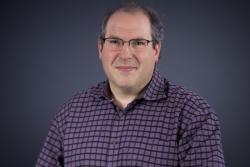
Current Positions: Professor, Department of Biology, San Francisco State University; Associate Adjunct Professor, Department of Integrative Biology, University of California Berkeley; Guest Professor, University of Basel, Switzerland
Education: B.S., University of Minnesota (1991); Ph.D., Oregon State University (1998); Postdoctoral Fellow, Johns Hopkins University (1999-2000); Postdoctoral Fellow, Hopkins Marine Station, Stanford University (2001-2003)
Professional Experience: Visiting Professor, Biology, Occidental College (2001-2002); Assistant Professor, Zoology, University of Hawaii at Manoa (2003-2005); Assistant / Associate Professor, Romberg Tiburon Center and Department of Biology, San Francisco State University (2005-2014); Assistant Adjunct Professor, Department of Integrative Biology, University of California Berkeley (2009-2016); Editorial Appointments: Integrative and Comparative Biology (2016-2017), Marine Biology (2015-2017), Physiological and Biochemical Zoology (2012-2020); active reviewer for many journals and funding agencies; frequent panelist for National Science Foundation (BIO IOS, GEO BIO-OCE)
SICB Activities: Member since 1990; Attendee since 1987 (not every year); Secretary – DCPB (2006-2007); Program Officer – DCPB (2013-2014); Co-author of two Grand Challenges in Organismal Biology manuscripts (2010, 2011); Organized/co-organized five symposia and two workshops.
Research Interests: Environmental and comparative physiology of marine and freshwater organisms, multiple stressors, integrative ecophysiology, responses to environmental change.
Goals Statement: Since 1987, when I attended my first ASZ meeting as a freshman undergraduate, SICB has been an important mainstay of my professional career. The strengths of SICB as a broad and student-postdoc friendly meeting that draws notable mid-career and senior researchers are important to maintain. As DCPB Chair-Elect I will work towards ensuring that the SICB annual meetings remain a core high-priority meeting for comparative physiologists by encouraging the development of programs at the cutting edge of comparative physiology. In particular, retaining the young and diverse scientists who have recently joined SICB, and developing stronger linkages between DCPB and other physiological societies (e.g., APS Comparative Section, SEB) are important goals. I will encourage development of interdivisional symposia reflecting the multi-disciplinary nature of comparative physiology, which meet the Grand Challenges in Organismal Biology that SICB members have outlined, and which promote fruitful future directions for helping comparative physiologists make significant progress in fundamental aspects of our research, education, and outreach efforts. Finally, I will work with SICB Executive Committee members to promote DCPB’s efforts in development, diversity, and dialog with journalists to ensure that DCPB remains strongly poised into the future.
DCPB Program Officer Candidate Biographies
(Ballot: http://burkclients.com/sicb/elections/2020.php)
Zachary Cheviron
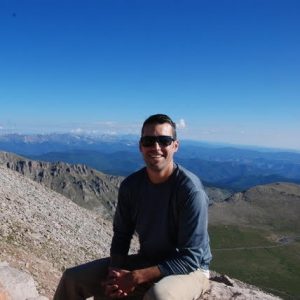
Current Position: Associate Professor, Division of Biological Sciences, University of Montana
Education: B.S., University of Evansville (2000); M.S., Illinois State University (2003); Ph.D., Louisiana State University (2008)
Professional Experience: Postdoctoral Fellow, University of California, Los Angeles (2009-2010); Postdoctoral Fellow, University of Nebraska, Lincoln (2010-2012); Assistant Professor, University of Illinois, Urbana-Champaign (2012-2015); Assistant Professor, University of Montana (2015-2019); Associate Professor, University of Montana (2019-present)
SICB Activities: Member since 2008 (DEE & DCPB); Author/co-author on >20 presentations at SICB meetings; Invited speaker at SICB symposium on Evolutionary Impacts of Seasonality (2017).
Other Memberships: Society for the Study of Evolution, American Ornithological Society
Research Interests: Research in my lab focuses on addressing questions at the interface of integrative physiology, functional genomics, and evolutionary biology. These questions range from mechanistic investigations of physiological adaptation and acclimatization responses to comparative analyses of the importance of environmental gradients in population divergence, and speciation. We work primarily with birds and mammals that are distributed across broad elevational, latitudinal, and salinity gradients using integrative approaches that draw on techniques from functional genomics to physiological ecology.
Goals Statement: The SICB meeting is always a highlight of my winter. It is hard to overstate the impact that the annual meetings had on my own professional development as a student and postdoc, and I am incredibly excited about the opportunity to give back to the society. As a DCPB Program Officer, I would have three primary goals. First would be to build interaction among DCPB and other SICB divisions by sponsoring forward-looking symposia that explore interfaces between traditional SICB disciplines and those of other SICB divisions. Second, I would work to grow and diversify division participation in the annual meeting. Previous program officers have made great strides to make the meeting more accessible to more people. The free child care program at last year’s meeting in Austin is a fantastic example of these efforts, but I think we can do more. Finally, I would work to increase the online content associated with the meeting for those who can’t attend in person. These efforts would simultaneously increase the reach and accessibility of our annual meeting.
Mike Sears
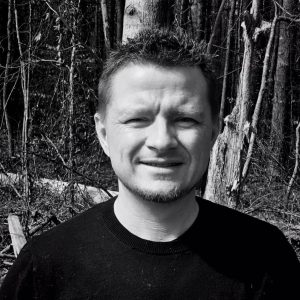
Current position: Associate Professor, Department of Biological Sciences, Clemson University (2012-present)
Education: Ph.D, Biology, University of Pennsylvania (2001); B.S. Biology, Rhodes College (1993)
Professional experience: Postdocs at Indiana State University (2002-2004) and University of Nevada Reno (2004-2005); Assistant Professorships at Southern Illinois University, Carbondale (2006-2009) and Bryn Mawr College (2009-2012).
SICB Activities: Member since 1999; Editorial Board, Integrative and Comparative Biology (2012-2017); Chair, Division f Ecology and Evolution (2015-2017); Divisional Program Officer, Division of Ecology and Evolution (2009-2012); Symposium organizer (2004, 2011, 2016). Co-creator and regular participant of Beer and Brains.
Other Memberships: Sigma Xi, Ecological Society of America
Research Interests: Physiological ecology, thermal adaptation, thermoregulation, organismal responses to climate
Goals statement: SICB was the first professional conference that I attended as an undergraduate and it will likely be the last conference that I will attend before I die. I have been happy to call SICB my professional home during all the times in between. One of the goals throughout my service to the society has been to promote the work of graduate students, postdocs, and early career scientists, while also promoting diversity and inclusion. In that respect, my goals for the division would not change, and as Program Officer, I will be committed to developing symposia, workshops, and mentoring programs with those values in mind. These activities are some of the most important items that our society does as they help to promote the careers of our membership across all levels. That said, I will also look for new opportunities to prepare our membership for an ever changing academic landscape. This includes finding opportunities to engage midcareer researchers to contribute to our program, as their particiation sometimes seems to decrease as they take on many roles at this career stage and in their personal lives. I look forward to taking on these responsibilities and to work actively with our membership to further the missions of the division and the society.
DEDE
Table of Contents
Division of Ecoimmunology and Disease Ecology: Spring 2020 Newsletter
Message from the Chair, Laura Zimmerman, Chair.DEDE@sicb.org
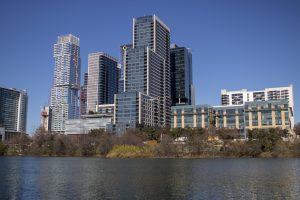
Thank you to all those who organized, participated, and presented at the 2020 SICB Annual Meeting in Austin! Once again, it was a great showing by DEDE and I had a fantastic time learning about all of the great science being done. It takes so many people – judges, symposium organizers, presenters, and more to make a meeting work, and we all appreciate the effort. A special thank you to outgoing chair Travis Wilcoxen for all of his work over the years in support of DEDE.
At the meeting, the “Lunch with an Eco-immunologist” continued its successful run. Thank you to Ashley Love for organizing once again. This is a great opportunity for early career researchers to ask questions and learn about career paths. We all look forward to the continuation of this fantastic event at future meetings.
As we look to the spring, one event to keep in mind is the election of officers. This year we will be voting for our Chair-elect and I encourage you to check out the nominee information provided in the newsletter and remember to vote!
Speaking of voting – with our next annual meeting in Washington D.C., it serves as a reminder that science is a vital piece of the policy process. I hope we all can find some time in the next year to find ways that our science can contribute to this process – whether that be outreach activities, sharing research on social media, or even running for local office. Scientists bring a vital perspective to the decision making process, and so I encourage you to make your voice heard on the issues that matter to you.
Message from the Program Officer, Cynthia Downs, DPO.DEDE@sicb.org
The annual meeting in Austin was a great success! DEDE hosted 41 talks across 6 sessions and 29 posters across 3 sessions. This year we continued the practice started at the 2019 meeting and we hosted an oral presentation session dedicated to the DEDE Best Student Oral Presentation Competition. The 8 finalists were chosen from the abstracts submitted. We’ll continue this practice for future meetings. Ten students competed in the DEDE Best Student Poster. The winners of both contests are announced in the note from the DEDE Secretary. A special thanks to those who volunteered to judge student presentations. We can’t run those contests without you.
DEDE co-sponsored 4 symposia in Austin: (1) Epigenetic Variation in Endocrine Systems, organized by Tyler Stevenson, Lynn Martin, and Haley Hanson; (2) Reproduction: the female perspective from an integrative and comparative framework, organized by Virginia Hayssen and Teri Orr; (3) Building Bridges from Genome to Phenome: Molecules, Methods and Models, organized by Karen Burnett, Jonathon Stillman, Donald Mykles, and David Durica; and (4) Integrative comparative cognition: can neurobiology and neurogenomics inform comparative analyses of cognitive phenotype?, organize by Yuxiang Liu and Sabrina Burmeister. The papers associated with the presented talks will come out in Integrative and Comparative Biology this year. Keep an eye out!
SICB 2021 in Washington, DC is shaping up to be another outstanding meeting. I’m excited to announce that DEDE will be sponsoring 4 symposia:
- Biology’s best friend: Bridging disciplinary gaps to advance canine science, organized by Caleb Bryca and Ana Jimenez;
- The integrative biology of pigment organelles, organized by Florent Figon, Jérôme Casas, and Leila Deravi;
- Biology Beyond the Classroom: Experiential Learning through Authentic Research, Design, and Community Engagement, organized by Alexandria Hansen, Lisa Whitenack, Patrice Connors, and Hayley Lanier; and
- Blinded by the Light: Effects of Light Pollution across Diverse Natural Systems, organized by Meredith Kernbach, Stephen M. Ferguson, Valentina Alaasam, Colleen Miller, and Clint Francis.
The full list of all 12 symposia can be found on the meeting page at the SICB website.
To ensure that DEDE continues to grow and thrive, it is important that DEDE members continue to host ecoimmune/disease-related symposia. We are now soliciting proposals for symposia for the 2022 meeting in Phoenix, AZ. Symposia are eligible for NSF funding, and symposia that have complementary sessions/associated workshops and invite speakers from diverse institutions across a range of career stages are most likely to receive NSF funding. If you have an idea, email me at dpo.dede@sicb.org or the SICB program officer (Jake Socha) at programofficer@sicb.org for more details. It’s never too early to start building support for your idea. I encourage senior graduate students and post-docs to submit proposals. A symposium is an excellent way to network with researchers in your field, to highlight a research area you think is exciting, and to help shape the future of the program at SICB.
Thank you for your ongoing participation in and support of DEDE events, and thanks again to all who volunteered to judge student presentations. See you in DC!
Message from the Secretary, Ken Field, Secretary.DEDE@sicb.org
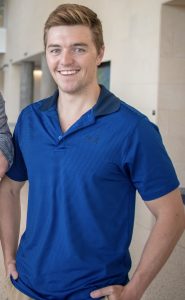
What a great meeting in Austin. I was very proud of the SICB organization for its efforts at increasing the inclusivity of the meeting and I particularly enjoyed the talks about inclusive teaching practices. The next meeting in Washington, DC will be another great opportunity to bring a diverse and interdisciplinary group of scientists together. I want to remind everyone that you can follow us on Twitter @SICB_DEDE
The oral and poster presentations by the DEDE participants were outstanding. The judges had a difficult task in choosing just two winners:
Best Student Oral Presentation: Bradford A Dimos, University of Texas, Arlington, “Differential disease susceptibility between closely related coral species is due to regulation of mitochondrial genes.”
Best Student Poster: Emily E Virgin, Utah State University, “Comparisons of egg yolk physiology and hatchling quality between urban and rural Side-blotched lizards (Uta stansburiana).”
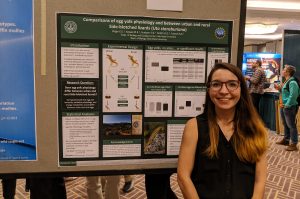
Thanks to all who served as judges. I also want to thank the candidates who have agreed to stand for election for the DEDE Chair-Elect position. Please participate in the election – all members are eligible to vote, including student and post-doc members. If you are interested in becoming more involved in the organization, please contact me. In addition to this important elected position there are other ways to support SICB and the DEDE division.
DEDE Chair-Elect Candidate Biographies
(Ballot: http://burkclients.com/sicb/elections/2020.php)
Jim Adelman
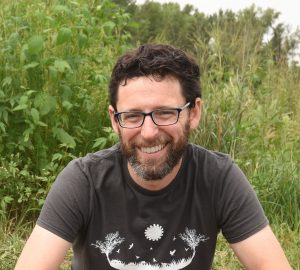
Current Position: Assistant Professor, Department of Biological Sciences, University of Memphis
Education: B.S. Duke University (1999); Ph.D. Princeton University (2010).
Professional Experience: Assistant Professor, University of Memphis (2019-present); Assistant Professor, Iowa State University (2015-2019); Postdoc, Virginia Tech (2011-2014); Postdoc, Smithsonian Institution (2011); Postdoc and Lecturer, Princeton University (2010-2011).
SICB Activities: Member since 2006 (DEDE since 2014); Secretary, DEDE (2017-2018); Symposium co-chair (2014); Session chair (2010-2016), Judge for Best Student Paper (2012-2019); Student worker (2008-2009).
Other Memberships: American Ornithologist’s Union, Animal Behavior Society.
Research Interests: I am a disease ecologist and ecoimmunologist interested in the evolutionary patterns, immune mechanisms, and transmission consequences of individually variable responses to infection. Recently, my lab has blended fieldwork and captive studies with molecular assays and next generation sequencing to uncover the mechanisms and consequences of infection tolerance in house finches.
Goals Statements: I say it often: “I grew up going to SICB.” And as a scientist, I really have grown up with this society, learning about exciting new research, refining my own questions, and forging lasting collaborations and friendships. Continuing in my career, I’ve felt very fortunate to help maintain and expand our society and DEDE in particular: I served as divisional secretary from 2017-2018 and have contributed to our symposia since the division’s inception in 2014. I would be honored to continue serving DEDE as Chair and I feel that I bring the experience and drive to help lead our division in the coming years. As a prior officer, I understand the role of Chair in communicating with other divisions and fostering society-wide interest in our research and symposia. Having worked as secretary to connect with our members and solicit new participation, I also value our efforts in growth and inclusion. Moreover, as a scientist whose work is rooted in integration across levels and biological disciplines, I will work diligently to maintain a similar vision for our division. I will collaborate with other divisions to encourage exciting, cross-cutting symposia. In addition, I will partner with other societies, like the Society for Advancement of Chicanos/Hispanics & Native Americans in Science (SACNAS), to recruit promising young scientists from all backgrounds into our field. SICB is an important incubator for ecoimmunology and disease ecology and I would be thrilled to help our society, division, and field grow.
Susan Balenger
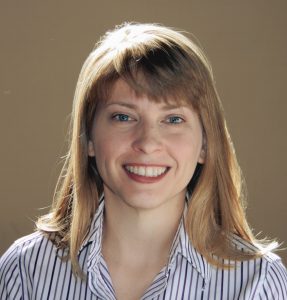
Current Position: Assistant Professor, Dept. of Biology, University of Mississippi
Education: B.S. University of Maryland, College Park (1998), M.S. Towson University (2008), Ph.D. Auburn University (2011)
Professional Experience: Assistant Professor, University of Mississippi (2016 – present), Postdoctoral Research, University of Minnesota, Twin Cities (2012-2016) & University of Turku, Finland (2011-2012)
SICB Activities: Member of DEDE (2014-present); member of DAB (2006-present); SICB research grant recipient (2007); Symposium participant (2014); Session Co-chair (2016, 2017, 2020). DEDE “Meet the PI” lunch mentor (2016); DEDE “Meet an Ecoimmunologist” mentor (2019); DEDE Best Student Paper Judge (2019); DAB Best Student Paper Judge (2019); DAB Mentor meet-up (2020).
Other Memberships: Animal Behavior Society (2005-present)
Research Interests: The long-term focus of my research is in understanding the role of phenotypic plasticity in determining the outcome of host-parasite interactions at population and species levels. I am particularly interested in understanding how multi-host parasites navigate unique suites of avoidance, resistance and tolerance mechanisms when interacting with a diversity of natural hosts.
Goals Statement: It would be my pleasure to serve as Chair for DEDE. I joined SICB as a graduate student, and now I am incredibly proud to see my own undergraduate and graduate students present their research, participate in meeting mentoring activities, and receive their own SICB research grants. This division is an important place for ecoimmunologists and disease ecologists to share ideas and serve as mentors to one another and our students. As our discipline continues to grow, DEDE is a place for us to come together as a collaborative community. My primary goal, therefore, is to promote forward-looking, integrative symposia that will spark theoretical, empirical, and pedagogical innovation. Equally important, I will work to continue to increase student diversity and participation, and provide opportunities for young researchers to identify and interact with mentors outside of their current network.
DEDB
Table of Contents
- Message from the Chair, Deirdre Lyons, Chair.DEDB@sicb.org
- Message from the Program Officer, Matt Rockman, DPO.DEDB@sicb.org
- Message from the Secretary, Prashant Sharma, Secretary.DEDB@sicb.org
- Message from the Student/Postdoctoral Affairs Committee Representative, Ryan Hulett
- DEDB Chair-Elect Candidate Biography
- DEDB Program Officer-Elect Candidate Biography
Division of Evolutionary Developmental Biology: Spring 2020 Newsletter
Please vote in the Spring 2020 Elections (candidate biographies can be found below). The deadline is April 19th, and the ballot can be found in the link provided here. http://burkclients.com/sicb/elections/2020.php
Message from the Chair, Deirdre Lyons, Chair.DEDB@sicb.org
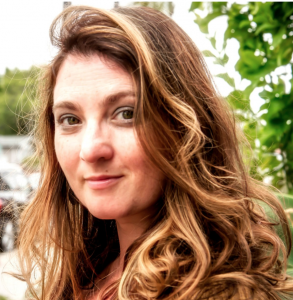
This year’s SICB meeting in Austin got the decade off to a strong start. I’m excited to take over as DEDB Chair from Kim Hoke, and want to thank her for all her work and efforts! I was so impressed by the programing, participation, and energy at this meeting.
Our division sponsored several symposia including “Building Bridges from Genome to Phenome,” “Melding Modeling and Morphology,” and “Biology at the Cusp,” among others. The DEDB Best Student Paper session, selected from submitted abstracts, was exceptional. We congratulate Alexis Lanza (Seaver Lab, Whitney Laboratory) for winning best student talk, and Raul Chavarria (Smith Lab, University of North Florida) for winning best student poster. Remind your students to submit their abstracts under this category for future meetings. And faculty, please donate your time to judge (thank you to those who judged this year!).
Speaking of students, I’d like to thank our outgoing Student/Postdoc Representative Amaneet Lochab (Extavour Lab, Harvard
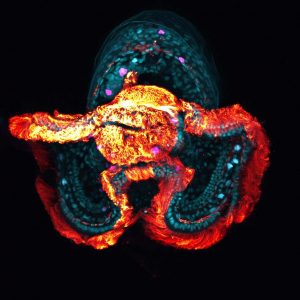
University) for the amazing work she has done for our Division. Not only does Amaneet tweet @SICB_SPDAC, but she also developed a set of “how to” handouts such as Getting into Grad School and How to Plan a Symposium. Amaneet again organized the popular Evo-Devo Dinners and Coffee Meetups program, facilitating an impressive 87 connections (up from 56 in 2019). In total, 83 people participated (31 grad students, 16 undergrads, 1 high school student; 10 post docs and 25 faculty), and many hosts sponsored both dinner and coffee dates (thank you!). We are excited to welcome Ryan Hulett (Srivastava Lab, Harvard University) as our new Student/Postdoc Representative for 2021/2022! Interested in becoming the Student/Postdoc Rep after Ryan? Email any member of the executive committee to let us know.
It’s already time to start planning for the next TWO meetings: Washington, DC (2021) and Phoenix, AZ (2022). The deadline for submitting symposia proposals for the Phoenix meeting is in August 2020. The key to making symposium-organizing fun and painless is to start early! Email me and/or our DEDB Program Officer Matt Rockman with your ideas this spring and we will help you build a strong proposal. Symposia are a great mechanism for bringing diverse colleagues together to integrate across disciplines or levels of biological organization; they are also important opportunities for postdoc and student-organizers to build their professional network. Alternatively, you may want to organize a workshop. The lead-time for proposing one is shorter: applications for workshops at the 2021 meeting in DC are also due in summer 2020. Two successful workshops sponsored by DEDB this year were a retirement celebration for Professor Stan Rachootin (Mount Holyoke College) organized by Mansi Srivastava and myself, and a roundtable discussion on “Overcoming challenges for testing gene function in post-embryonic life stages” organized by Alexa Bely and Elaine Seaver. Start thinking now…
Lastly, I’d like to draw special attention to the work SICB does towards broadening participation and creating an inclusive environment. At this meeting I was struck by the range of support efforts including childcare, a mothers’ room, a quiet room, multiple workshops on minoritized groups in STEM, multiple social and scientific events for LGBTQ+ attendees and allies, and ubiquitous discussion of the new SICB Guidelines on Broadening Participation in SICB’s Leadership, Programs, and Awards. Look forward to more great programming in this area in DC!
Please email me with your ideas for growing our division this year!
Message from the Program Officer, Matt Rockman, DPO.DEDB@sicb.org
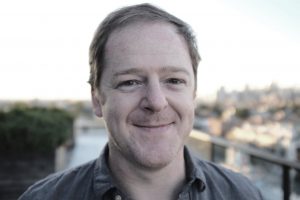
With another fantastic SICB meeting in the rearview mirror, we can start looking forward in earnest to January 2021 in Washington. I was pleased to represent DEDB at the SICB program meeting in the fall where we debated the rich slate of symposium proposals and put together a strong group of scientific themes for Washington.
DEDB is proud to be a sponsor for four of the Washington DC 2021 symposia:
- An Evolutionary Tail: EvoDevo, structure, and function of post-anal appendages, organized by Janneke Schwaner, Tonia Hsieh, and Craig McGowan.
- The integrative biology of pigment organelles, organized by Florent Figon, Jérôme Casas, and Leila Deravi.
- Genomic Perspectives in Comparative Physiology of Mollusks: Integration across Disciplines, organized by Omera Matoo and Maurine Neiman.
- Biology Beyond the Classroom: Experiential Learning through Authentic Research, Design, and Community Engagement, organized by Alexandra Hansen, Lisa Whitenack, Patrice Kurnath Connors, and Hayley Lanier.
These symposia cover a range of topics at the heart of evolutionary developmental biology and evolutionary developmental
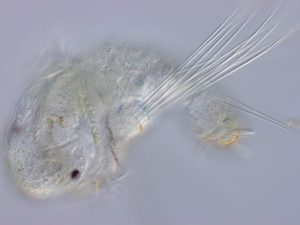
biology education. Of course, the meeting as a whole will include many more evodevo sessions. Mark your calendar for September abstract submissions! The SICB meeting is also a venue for workshops, typically held just before the meeting or at lunch times during the meeting. Workshop proposals will be due in early summer.
In the meantime, think about organizing a symposium for the 2022 meeting in Phoenix. The best way to have the SICB meeting of your dreams is to leverage the symposium format to invite your ideal panel to convene on your favorite topic. SICB and your faithful DEDB program officer are standing by to help you put together a symposium proposal. And note that we strongly encourage early stage researchers, including postdocs and PhD students, to submit proposals.
Message from the Secretary, Prashant Sharma, Secretary.DEDB@sicb.org
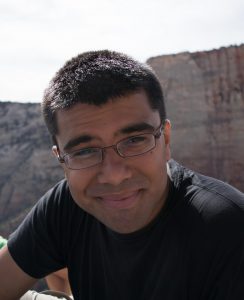
DEDB turns 20! This year holds a special significance for all of us in DEDB—our Division turned 20 years old in the week of the Austin meeting! Two decades after a small cabal of evodevo biologists gathered at the Atlanta SICB meeting in 2000, the past two decades have seen DEDB become a vibrant, bustling community, with growing membership and support for student participation. Special thanks to Matt Rockmann and the other program officers for putting together a dynamic and memorable 2020 program in Austin, with four (!) symposia sponsored by DEDB and 235 meeting attendees affiliated with our Division!
We are indebted to outgoing Chair Kim Hoke for her stewardship of DEDB in the past two years and outgoing student representative Amaneet Lochab for her tireless efforts in growing the EvoDevo dinner dates program. Their initiatives and enthusiasm have been vital to creating networking opportunities for students and establishing connections within DEDB.
Best Student Presentation Oral Session – The Austin meeting featured the 5th annual DEDB best student presentation
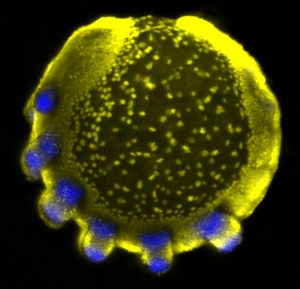
session. This student session is a dedicated part of our program and our commitment to professional development for junior scientists. Congratulations to our winner Alexis Lanza (Seaver Lab)! In addition, we’re delighted to congratulate Raul Chavarria (Smith Lab), winner of the best poster competition. As always, our students did not make our judging easy. My thanks also to the faculty who volunteered to judge the competition—your participation and support of DEDB’s initiatives makes the work of our Division possible!
This year, we implemented a couple of changes in the way we evaluate the competition: the panel of judges viewed and evaluated all eight competing talks (rather than choosing a subset of talks to evaluate) and filled paper ballots, with a designated section for feedback to students. The committee of judges also met after the session to reach a discussion-based consensus on the best student presentation. I will be mailing the written feedback from the judges to all eight competitors, which we hope will be useful to students in refining their presentations and in future endeavors. I would also like to encourage students to try competing more than once—that extra semester of experiments might make all the difference!
The business of the Division. Minutes of our divisional meeting in January 2019 are published on the SICB website. Candidate biographies for our election are available below in this newsletter. If you have any feedback or suggestions for the activities of the Division, please email me at Secretary.DEDB@sicb.org.
Best Student Oral Presentation Winner
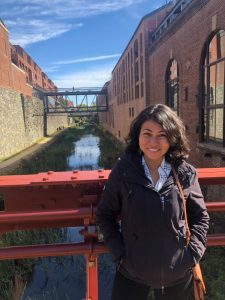
Alexis Lanza: I am a PhD candidate in the Dr. Elaine Seaver’s Lab, researching the embryonic signaling events critical for dorsal-ventral axis formation in annelids. I am particularly curious about the cellular and molecular mechanisms that drive developmental processes, and how cross-species differences in these mechanisms account for evolution of the body plan.
Best Student Poster Presentation Winner
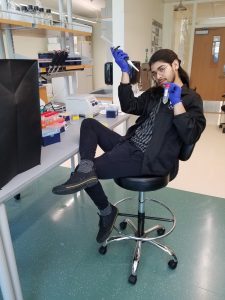
Raul Chavarria: I study body plan evolution at UNF alongside Frank Smith in Jacksonville, Florida. Tardigrades have a compact body plan that not only makes them adorable but incredibly interesting to study. I became interested in evolution since I am fascinated by the diversity and weirdness found within the animal kingdom. Although this mystery of the universe may never be solved, it is a blast working towards this goal. When not working in the lab I like to spend time outdoors pondering on how life would be if I were an invertebrate. If not outdoors, you can catch me in the kitchen making a mean ratatouille or in the garage taking transmissions out of cars.
Message from the Student/Postdoctoral Affairs Committee Representative, Ryan Hulett
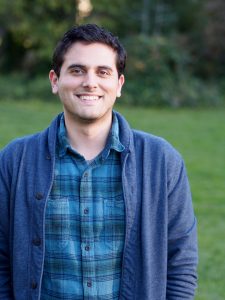
Greetings DEDB students and postdocs! I am thrilled to serve as your new DEDB Student/Postdoctoral Affairs Committee Representative. To introduce myself, I am currently a fourth-year PhD candidate in the Organismic and Evolutionary Biology program at Harvard University in the Srivastava lab. I am broadly interested in the evolution of the nervous system with regards to its structure and composition. I use a highly regenerative acoel to understand mechanisms governing neural cell-type specification and differentiation in an evolutionary context. I am very excited to get to know you, hear about your research interests, and figuring out how to best represent you.
I would like to thank the previous representative, Amaneet Lochab, for all of her hard work, especially with organizing the Evo-Devo dinner and coffee meet-ups. These have been instrumental in helping trainees build solid networks and broadening their research interests.
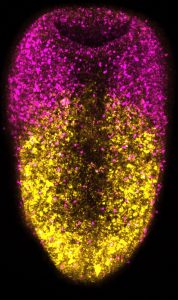
I hope you had a wonderful time at the meeting in Austin and had the opportunity to attend the amazing posters and talks.
Congratulations to our presenters! Also, a very special thank you to everyone who participated in the Evo-Devo dinner and coffee meet-ups. I plan to carry on the tradition of organizing this and welcome any feedback so that we can make it even better for SICB2021. Look out for an email from me in the fall regarding this, as well as opportunities to support your meeting and travel costs.
Cheers to a healthy and productive summer. Feel free to contact me (rhulett@g.harvard.edu) if you have any comments, questions, suggestions, or if you would like to get more involved in DEDB.
DEDB Chair-Elect Candidate Biography
(Ballot: http://burkclients.com/sicb/elections/2020.php)
David R. Angelini
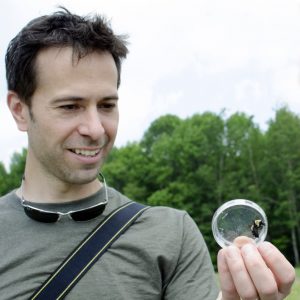
Current position: Associate Professor of Biology, Colby College
Education: B.A., 1999, St. Mary’s College of Maryland; Ph.D., 2005, Indiana University.
Professional experience: Associate Chair, Department of Biology, Colby College, 2019-present; Associate Professor, Department of Biology, Colby College, 2018-present; Assistant Professor, Department of Biology, Colby College, 2012-2018; Assistant Professor, Department of Biology, American University, 2008-2012; Graduate Programs Director, Department of Biology, American University, 2010-2012; National Research Service Award Postdoctoral Fellow, Department of Ecology and Evolutionary Biology, University of Connecticut; NSF IGERT Fellow, graduate research in the lab of Thomas Kaufman, Department of Biology, Indiana University.
Other memberships: Pan-American Society for Evolutionary Developmental Biology (PASEDB), PASEDB Secretary 2016-2020, European Society for Evolutionary Developmental Biology, Society for Developmental Biology, Genetics Society of America, Entomological Society of America
Research interests: My research examines developmental genetic systems with alternative phenotypic outcomes, including instances of phenotypic plasticity and polyphenism, as well as sexual dimorphism and serial homology. My research focuses on the generative mechanisms of these systems but also uses comparative approaches to explore their evolution. Insects are my most common study species, where I use a combination of methods from developmental studies, morphometrics, functional genetics and genomics.
Goals statement: It’s a great honor to be nominated to run for SICB’s DEDB chair. Over the last 4 years I have been able to help organize the evo-devo community through my involvement with the Pan-American Society for Evolutionary Developmental Biology (PASEDB), where I have served as society Secretary. During that time, I was lucky enough to work with other members of the board who were concerned with building platforms for communication and with supporting the education and advancement of young investigators in the field. My work with PASEDB has involved facilitating communication between the executive board and membership. I co-chaired workshops on technology in 2015 and education in 2017. As a member of the organizing committee for the 2017 PASEDB meeting in Calgary, I helped ensure the program featured a diverse range of science and a diversity of voices from our community. One of the continuing enterprises of evolutionary developmental biology is the synthesis of concepts and experimental approaches from historically disparate fields. The integrative aim and atmosphere of SICB makes it an organization that can play a special role in our field. The Society’s disciplinary breadth is particularly salient to the integrative nature of evo-devo. As DEDB chair, one of my goals will be to strengthen connections and interactions among DEDB and other SICB divisions. SICB has been an important organization to many researchers, and I hope to foster additional opportunities for students and young investigators to gain new skills and showcase their work. Strengthening connections between DEDB/SICB and other organizations, such as PASEDB, EuroEvoDevo and the Society for Developmental Biology, is one way to provide new opportunities for young scientists whose work spans traditional disciplines, as is continuing to advocate for funding resources from the NSF and other agencies and foundations. Finally, I would like to explore ways in which DEDB and SICB might engage with the broader community, particularly in K-12 education. My own outreach efforts have focused on connecting insect biology, as well as development and evolution, to urban ecology, providing teaching resources and citizen science opportunities for K-12 teachers through bugsinourbackyard.org. The research breadth of DEDB and its membership will provide many different opportunities to engage the public, excite students, and increase understanding of development and evolution. I look forward to the work ahead!
DEDB Program Officer-Elect Candidate Biography
(Ballot: http://burkclients.com/sicb/elections/2020.php)
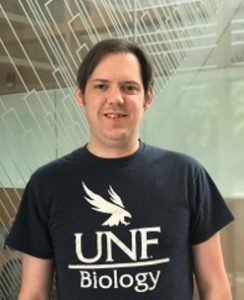
Current position: Assistant Professor of Biology, University of North Florida
Education: B.A., 2007, University of Rhode Island; Ph.D., 2013, University of Connecticut
Professional experience: Assistant Professor, Department of Biology, University of North Florida, 2017-present; postdoctoral research associate University of North Carolina at Chapel Hill, 2013-2017.
Other memberships: Pan-American Society for Evolutionary Developmental Biology (PASEDB).
Research interests: My research compares development of tardigrades to arthropods and other animals to investigate the developmental changes that underlie the diversification of animal body plans.
Goals statement: I am passionate about the field of evolutionary developmental biology and would like to facilitate the continued growth of this field in any way possible. I am particularly enthusiastic about contributing to the Division of Evolutionary Developmental Biology because this Division played an important role in my growth as a scientist, and now fosters the growth of my students. The Program Officer position would provide me with an excellent opportunity to do this.
DEE
Table of Contents
- Message from the Chair, Cameron Ghalambor, Chair.DEE@sicb.org
- Message from the Program Officer, Sarah Diamond, DPO.DEE@sicb.org
- Message from the Secretary, Martha Muñoz, Secretary.DEE@sicb.org
- Winners of the Raymond B. Huey Best Student Presentation Awards
- Message from the Student/Postdoctoral Affairs Committee Representative, Craig Marshall
- DEE Chair-Elect Candidate Biographies
- DEE Program Officer-Elect Candidate Biographies
Division of Ecology and Evolution: Spring 2020 Newsletter
Please vote in the Spring 2020 Elections (candidate biographies can be found below). The deadline is April 19th, and the ballot can be found in the link provided here. http://burkclients.com/sicb/elections/2020.php
Message from the Chair, Cameron Ghalambor, Chair.DEE@sicb.org
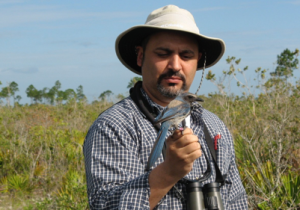
Hello everyone, I hope those of you who attended the 2020 meeting in Austin, Texas had a great time. I’d like to make a few quick announcements and then turn your attention to our next meeting in Washington DC (2021) and beyond.
To begin, on behalf of the entire division, I would like to thank Michelle Nishiguchi for her exceptional service as DEE Program Officer over the past few years. As Program Officer, “Nish” has played a central role in shaping the program for the annual meetings and making sure DEE’s interests are well represented. Thanks, Nish!!
As for the recent 2020 meeting in Austin, what can I say? It was another great meeting full of cutting-edge results, the sharing and exchanging of ideas, and an opportunity to see friends and colleagues. I love the diversity and breadth of topics I’m exposed to at the meetings and always leave energized and excited about science. If you feel the same, then encourage your non-SICB colleagues to attend next year. A DEE highlight of every SICB meeting are the Ray Huey Award sessions for best student talk and poster. As usual, we were treated to an amazing group of talks and posters. Congratulations to this year’s winners, Nick Barts (Kansas State University) for his talk “Repeated mitochondrial evolution underlies adaptation to extreme environments”, and Isaac Miller-Crews (University of Texas, Austin) for his poster “2bRAD-seq Paternity Testing Pipeline for Complex and Mixed DNA Samples.” We’ve highlighted them in our spring newsletter (see below). Also, I want to give a big round of thanks to all of the DEE members who served as judges for the abstracts, talks, and posters in this year’s competition. And students – it’s never too early to begin planning for next year’s competition in Washington DC! Advisors, please encourage your students to submit an abstract!
This year’s DEE signature social event, the Beer & Brains mixer, was held at Easy Tiger and it was another huge success. A special thanks to Craig Marshall (DEE Student/Post-doc Rep) for helping to coordinate this year’s event. Over 80 students and faculty met up in a casual venue to talk science and discuss issues related to careers in science and academia, with DEE picking up the tab on food and drinks. We’ve received a lot of positive feedback on this event since its inception five years ago; however, its popularity has made it difficult to include everyone who would like to attend. So one of the main goals for future meetings is to grow Beer & Brains into a more inclusive DEE social that will accommodate everyone (see below).
While it may feel too early to start thinking about future meetings, planning for future meetings are well underway. The symposia for next year’s 2021 meeting in Washington DC are already set, and six symposia are supported by DEE. Our members will likely be interested in many of these symposia that include the effects of light pollution on natural systems, the evolutionary development of tails, the spatiotemporal dynamics of communication, and many more. DEE will also be sponsoring a special session at the 2021 meetings celebrating the contributions of George Gilchrist. George made important scientific contributions in the area of evolutionary physiology, but was perhaps best known in his role as a permanent program officer at NSF. Sadly, George passed away recently, and the special session will allow an opportunity for SICB to contribute talks that celebrate George’s influence.
Now is also the time to begin planning for symposia for the 2022 meetings in Phoenix (deadline is Aug. 23, 2020). We really want to encourage DEE members to take the lead in organizing symposia. The basics are simple: think of an exciting topic in ecology and evolution, (2) draft up a diverse “dream team” of potential speakers, (3) run your idea by the DEE program officer, and (4) submit your proposal by August 23rd, 2020. For junior investigators, this is a great way to network while impacting your field, plus it will make a lasting contribution as a special volume of Integrative & Comparative Biology. And remember that DEE officers are always happy to discuss symposium ideas with you. Just drop us a line!
As for DEE itself, we continue to function because of the hard work and time of our officers, representatives, and members. So, let me begin by saying on behalf of the entire division a big round of thanks to Martha Muñoz for her amazing service as Secretary — she is the source of all good ideas. Thanks to new Program Officer Sarah Diamond – we missed you at this year’s meeting but look forward to seeing you next year. And thanks to Student/Post-doc Representative Craig Marshall for all your hard work organizing Beer & Brains and student outreach activities. The future will belong to Chair-Elect Fran Bonier, Secretary-Elect Christine Miller, and we will be holding an election for the next Program Officer and the new Chair-Elect this spring. Information on the candidates can be found in this newsletter. Please take a moment to check out each candidate — and remember to vote when the polls open. We have a large and diverse membership, and we would like to see this diversity represented in our elections!
Speaking of voting, DEE members will also be voting on whether to add dues to our membership. Other SICB divisions include additional dues for their members, but it’s only recently that DEE has considered such a move. Why now? There are several benefits to including dues, including increased support for symposia and student award. The primary motivation for adding dues, however, is to provide the financial means to expand our DEE social, Beer & Brains. This social started off as a small gathering of graduate students, post-docs, and faculty, and it was meant to provide a less formal setting for early career scientists to engage with faculty about their research interests and career paths. However, as the popularity of the social has grown, so too has the cost of renting an appropriate space and providing food and drinks. As a result, we have had to limit the number of people who can attend, and nothing has been more painful than turning away those who wanted to attend. Paying dues would, therefore, give us the financial means to grow and transform Beer & Brains into a more inclusive social for all DEE interested in attending. The ultimate goal is not simply to grow the size of the social, but also to make the social the hub where DEE members will come together and build lasting relationships and connections with each other. At the DEE Business meeting in Austin (which was arguably the best attended Business meeting ever), a majority of attendees voted by a show of hands to put the question of dues to a vote. The final structure has yet to be determined, but DEE members will likely be able to vote for one of several options; (1) no dues, (2) the same dues for all members (e.g. $5), or (3) a tiered structure (e.g., $5 for students and post-docs, $10 for faculty). This is a big change, so please vote when the time comes.
Finally, I’d like to add that Martha and I are very much interested in building a culture of increased participation, inclusion, and identity within the division. Do you have any ideas you’d like to share? Please feel free to email me or any of the other officers or representatives. We really would love to hear from you.
Message from the Program Officer, Sarah Diamond, DPO.DEE@sicb.org
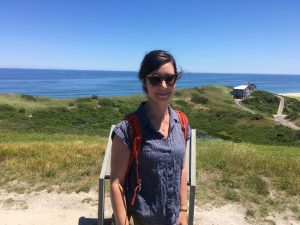
Hi, DEE! I’m your new Program Officer for the Division, and am excited to continue the fantastic meeting programming brought to you by outgoing Program Officer, Michele “Nish” Nishiguchi. A warm round of applause for all that Nish brought to DEE in her role as Program Officer – cheers!
The 2020 Annual Meeting was a great success with seven DEE co-sponsored symposia and nearly 250 presenters who identified DEE as their primary affiliation. From Twitter and personal comments, attendees remarked on how the SICB Annual Meeting was a fun, safe, constructive environment to discuss their science. Let’s keep that positive energy going! If you have ideas for maintaining or building on this platform, don’t hesitate to email me (DPO.DEE@sicb.org) or find me on Twitter (@sarah_e_diamond).
The upcoming 2021 Annual Meeting will be in Washington, DC, so be sure to mark your calendars! We have some great DEE sponsored symposia lined up for the meeting, and we look forward to seeing all of your oral and poster presentation abstracts later in the year.
With the 2021 meeting on the horizon, it’s already time to start thinking about symposium ideas for the 2022 meeting in Phoenix, Arizona. One of the many excellent contributions the Division of Ecology and Evolution brings to the Annual Meeting is its support of symposia. DEE is looking forward to directly supporting symposia that relate to the major themes of our Division. I welcome anyone who has an idea or topic for a potential symposium to contact me by e-mail for feedback and suggestions (DPO.DEE@sicb.org). Please also have a look at the SICB Resources page, which has a really nice guide to preparing a symposium proposal. Stay tuned to theSICB Meeting page for the official call for symposium proposals.
In the meantime, for DEE members who already have some ideas for symposia and would like feedback on the scope of the topic or logistics about preparing the proposal, please feel free to email myself or SICB Program Officer, Jake Socha (program.officer@sicb.org). Please attempt to submit preliminary proposals to me by mid-June, so I can offer suggestions to enhance support for the proposals before the deadline in August. We are especially interested in proposals that emphasize emerging conceptual and integrative topics of broad interest to the members of SICB as well as our Division. We encourage symposium proposals from junior members of the Division. Collaborating with more senior SICB members to organize a topic for a symposium can also be a great way to kick things off for junior members who might have less experience with symposium proposals. Finally, DEE has been successful in sponsoring symposia that broaden participation by underrepresented groups, and we are keen to continue this trend. To get a sense of the breadth of funded symposia from past meetings, check out the SICB Symposia Archive page.
Message from the Secretary, Martha Muñoz, Secretary.DEE@sicb.org
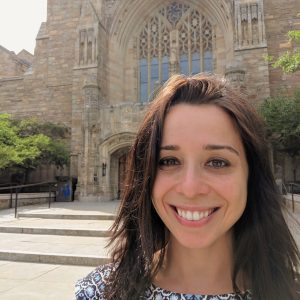
Greetings, fellow DEE members! I hope your experience at SICB 2020 was as wonderful as mine. I would like to highlight some of the wonderful things that DEE got up to at this previous meeting. First, we held our Raymond B. Huey award for best student presentation in both oral and poster categories. Our winners, Nick Barts and Isaac Miller-Crews, both delivered excellent presentations that addressed broad topics in ecology and evolution. In this newsletter you’ll be able to read all about their research and get to know them better. Second, we held our Beer and Brains event at Easy Tiger, and the event was a big success. I would like to thank Craig Marshall and Cam Ghalambor for their tireless efforts to make the event go off without any hitches. They did a wonderful job! If you attended the event, I hope you enjoyed the conversations, food, and beer as much as I did.
I also want to highlight our DEE business meeting, which was totally packed this year. Why does this matter? We want you – the membership of DEE – to have a voice and a stake in its future! I believe it’s especially important for students attend the business meeting. Students and early career researchers are the lifeblood (and the future) of the division. I hope this pattern of high attendance continues in our future business meetings. It was a delight to see everyone so engaged. We want DEE to be your home within SICB and for you to help us plan its future! As Cam describes in his Message to DEE, we will be voting on whether or not to add dues to DEE so that the Beer & Brains event social can grow. This decision affects all of DEE, so please vote!
Speaking of voting, we’ve got a big spring ahead of us here in DEE. We will be hosting elections for Program Officer. SICB’s program officers work together to build the program for our annual meeting. In addition to organizing sessions, POs also work on symposia for upcoming meetings. This includes working with folks who have ideas for future symposia, selecting symposia for the SICB meeting, and deciding how to allocate DEE funds among selected symposia. I encourage all of our members to vote! Below you will find profiles for the candidates running for Program Officer.
I had a wonderful time last fall getting to know some of our amazing student members a bit better and highlighting them in the newsletter through our DEE Student Profiles. This will be an ongoing feature of our newsletters, so look for more DEE Student Profiles in the Fall 2020 newsletter. Please contact me if you’re interested, and remember that self-nominations are totally welcome!
Finally, on a more personal note, I want to share that the SICB community is deeply saddened by the passing of Dr. George Gilchrist’s earlier this year. George was a phenomenal biologist. His work on evolutionary physiology deeply embodied the spirit of integrative biology. George spent the latter part of his career as a Program Officer at the NSF, where he worked tirelessly to support great science. He cared so much about science and even more so about the people doing science (especially students and early career researchers). He has left an indelible mark on our community. Cam and I are organizing a Special Session at SICB 2021 in Washington, D.C. to honor George and his legacy. Please stay tuned for more information. If you’re interested in speaking in the Special Session, please send me or Cam an email.
I know SICB 2020 just wrapped up, but I’m already looking forward to next year. I hope to see you all in D.C.!
Winners of the Raymond B. Huey Best Student Presentation Awards
Oral Presentation Winner: Nick Barts
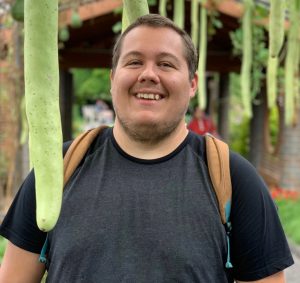
Position: Ph.D. candidate
Talk title: Repeated mitochondrial evolution underlies convergent adaptation to extreme environments.
Research Description: I’m interested in the physiological and behavioral mechanisms organisms use to survive under novel and extreme environmental conditions. My current research explores the biochemical and physiological pathways fish use to survive in naturally toxic springs rich in hydrogen sulfide. This chemical inhibits aerobic energy production by interfering with cell’s powerhouse (the mitochondria), and most of my research to date has investigated how these fish overcome this challenge. We’ve found that most tolerant species exhibit increased detoxification enzyme expression, and we’ve demonstrated that this has functional consequences in the Atlantic molly with respect to enzyme activity, internal sulfide concentrations, and mitochondrial respiration rates. My most recent research is investigating what mechanisms potentially facilitated colonization of these toxic habitats by assessing differences in gene expression of successful and unsuccessful colonizing species upon exposure to hydrogen sulfide.
What does winning the Huey Award mean to you? It is an honor to win the Huey Award. It is always great to receive recognition for your work, and I think it demonstrated to me that I should be proud of the work I’ve put so much effort into over the last few years.
Fun Memory of SICB: My favorite part of every SICB so far has been attending the OutGroup events. I really enjoy the opportunity to meet and network with other LGBTQ+ scientists. At the SICB 2019 meeting, I attended my first drag show with the group!
Poster Presentation Winner: Isaac Miller-Crews
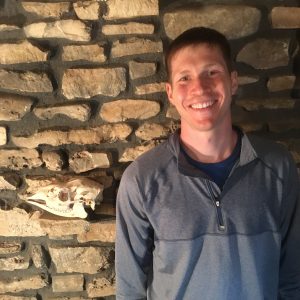
Position: Ph.D. candidate in the Hofmann Lab at The University of Texas at Austin
Poster Title: 2bRAD-seq Paternity Testing Pipeline for Complex and Mixed DNA Samples
Research Description: We have developed a 2bRAD-seq based paternity testing method that works reliably on mixed DNA samples derived from a genetically homogenous population. The cost-effective method utilizes a combination of a modified combined paternity index and identity-by-state clustering without the need for a reference genome.
What does winning the Huey Award mean to you? I am honored that other people appreciated the research and grateful that I got to share it with so many fellow scientists (and maybe future collaborators!).
Fun Memory of SICB: Besides finding other people finally excited to talk about paternity testing, I appreciated discussing future research plans and collaborations with researchers from disciplines I knew nothing about.
Message from the Student/Postdoctoral Affairs Committee Representative, Craig Marshall
I am very excited to begin my second year as your DEE graduate/postdoc representative for SICB 2021!
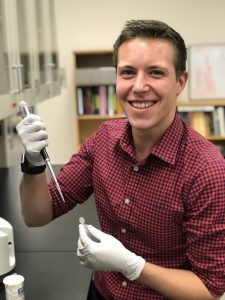
We had a fantastic turnout for our 7thannual Beers and Brains event in Austin, TX! Thank you to all of the graduate students, postdocs, and faculty that attended. Beers and Brains 2020 would not have been the success that it was if it were not for your participation. For those of you who registered, but were not offered a spot, please accept our sincerest apologies. We had more people register than we had spots available. However, for SICB 2021, we are looking into funding opportunities to expand this event in order to make the 8thannual Beer and Brains event in Washington, DC our largest event thus far!
For those of you that are unfamiliar, Beers and Brains is an amazing networking opportunity for students seeking advice and tips from faculty about life in graduate school and beyond. Faculty attendees range from those who have been in the game quite a bit to those that are just starting out. They are employed at a variety of institutions, from large research universities to small liberal arts colleges. Therefore, there’s amazing advice to be had for everyone no matter the nature of your current status in graduate school or career trajectory. Please look out for the registration link as we get closer to the event.
Look out for more updates regarding DEE and SICB Student/Postdoctoral Affairs Committee (SPDAC) events in our next newsletter! If you should have any questions or are looking for additional information about DEE and ways that you can become more involved, please do not hesitate to reach out (Craig.Marshall@colostate.edu). I look forward to hearing from you so we can work together to make SICB 2021 rewarding, memorable, and fun!
DEE Chair-Elect Candidate Biographies
(Ballot: http://burkclients.com/sicb/elections/2020.php)
Don Miles
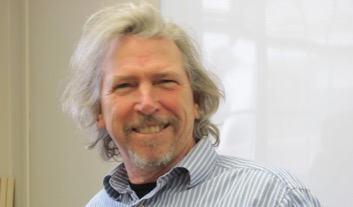
Current Position: Professor of Biological Sciences, Ohio University, Athens, Ohio.
Education: Ph.D. Population Biology; University of Pennsylvania, MPhil. Biometry, University of Cambridge; B.A. Zoology, University of California, Berkeley
Professional Experience: Visiting Professor, Paul Sabatier, Toulouse, France; Laureate, Make Our Planet Great Again, CNRS Moulis, France; Research Associate, California Academy of Sciences; Visiting Scientist, Museum für Naturkunde, Berline
SICB Activities: Organizer of Symposium: Contributions of Long-term Studies to Conservation Biology; Member since 1985 (DEE, DVM, DPCB), Program Officer DEE, Judge for Best Student Paper (DVM, Huey Award), Co-organizer Beer and Brains
Other Memberships: Society for the Study of Evolution, American Society of Naturalists, Ecological Society of America, Herpetologists League
Research Interests: My research interests center on how organisms cope with variation in environmental conditions. I am interested in species responses to both spatial and temporal variation with an emphasis on climate change. My approach ranges from examining temporal variation within a population and spatial variation among populations to among species comparisons. I investigate how species cope with abiotic factors, such as heat waves or drought, using morphological, physiological and behavioral traits. A key aspect of my research is that the phenotype, through behavior or physiology, acts as a filter to mediate variation in temperature or precipitation to enhance performance and ultimately fitness. Potential responses include phenotypic plasticity or local adaptation. However, how a species can cope with environmental fluctuations depends on the flexibility in the morphology-performance axis and opportunities within the habitat matrix. I leverage the variation in traits among populations or species to determine the relative roles of plasticity or adaptive shifts to facilitate the ability of population/species to persist in fluctuating environments.
Statement of Goals: The annual meeting of SICB was one of my first professional meetings as a graduate student. To this day SICB remains my primary professional meeting. One of the strengths of SICB and DEE is the breadth of expertise and research the members encompass. In my opinion, DEE is a core division within SICB, because by definition ecology and evolution are integrative and comparative. Moreover, the research presented from every other division has connections with DEE. Another strength of the society and DEE is the record of supporting students (both undergraduate and graduate), postdocs and early career researchers. DEE has been a leader in increasing interaction among established researchers and students, as in “Beer and Brains” and recognizing the outstanding research of student members with the Huey Award. In addition, Martha Muñoz has initiated a new addition to the DEE newsletter with the DEE Student Profiles. As chair-elect, I would continue to work at maintaining the strong presence of DEE within the society, across other societies (ASN and SSE) and broaden participation. First, I would work to promote SICB as the premier venue for presenting integrative and state-of-the-art research by encouraging members of the division to submit symposia that includes speakers who ordinarily do not attend the meeting. Second, I would continue to work with increasing our social media presence and public outreach through Twitter and Facebook. Third, the division should consider offering targeted workshops at the annual meeting. These workshops could include topics such as alternative careers outside of academia and using social media to promote research and generate interest from other divisions. Fourth, I would propose to initiate a new section of the newsletter that introduced new faculty as is done by other societies. Finally, I would like to consider developing a DEE symposium or a targeted contributed paper session comprised of early career speakers invited by the officers of DEE.
Tonia Schwartz
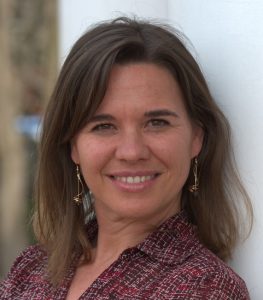
Current Position: Assistant Professor, Auburn University
Education: BS in Zoology, Iowa State University; MS in Zoology, University of South Florida; PhD in Genetics, Iowa State University
Professional Experience: James S. McDonnell Post-doctoral Fellow Complexity Science,; University of Alabama at Birmingham; Assistant Professor at Auburn University
SICB Activities: Member since 2013; Assistant Editor for ICB since 2019
Other Memberships: Sigma Xi; Society for the Study of Evolution; European Society of Evolutionary Biology
Research Interests: My research integrates environmental variation, molecular networks, and life history to investigate how organisms respond to their environment at the individual level (plasticity and acclimation) and how this response can evolve across populations and across species. To do this we use experimental and observational studies with an emphasis on large-scale genetic data. See more at: https://www.schwartzlab-ecoevolutionarygenomics.org/
Statement of Goals: I find the Society of Integrative and Comparative Biology to be a welcoming society for all career stages. I value the mission of the society in promoting education as well as research in the integration of biological disciplines to understand organismal function and evolution. Being part of this society has provided an academic home for me to grow my research interests. I hope to be able to give back to this society in supporting its mission of promoting education and integrative research, and continuing to promote inclusiveness in our scientific societies.
DEE Program Officer-Elect Candidate Biographies
(Ballot: http://burkclients.com/sicb/elections/2020.php)
Caitlin Gabor
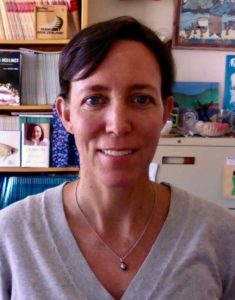
Current Position: Professor, Department of Biology, Texas State University
Education: B.A. Aquatic Biology, University of California, Santa Barbara (1990); M.S., Biology, University of Louisiana, Lafayette (1993); Ph.D., University of Louisiana, Lafayette (1997); NSF Postdoctoral Fellow (1997-1999).
Professional Experience: NSF panelist for Behavioral Systems, DDIG, and Graduate Research Fellowships plus ad-hoc reviews; Associate Editor for Behavioral Ecology and Sociobiology(2005-present) and Amphibia-Reptilia(2009-present). Chair Animal Behavior Society Public Affairs Committee (2009-2014)
SICB Activities: Participated in Beers and Brains 2x, DAB poster judge 2x, Member of DAB, DEE and DEDE since 2014
Other Memberships: Sigma Xi
Research Interests: Our lab’s research program spans conservation physiology to behavioral ecology. We focus on the consequences of anthropogenic factors on fish and amphibian population declines from a behavioral, evolutionary, and conservation physiology perspective. We have also studied the historical forces of natural and sexual selection on speciation in a unisexual-bisexual species complex of live bearing fish from a behavioral, evolutionary, and physiological standpoint.
Statement of Goals: For many years colleagues told me that I would love SICB meetings. They were correct. I finally attended my first SICB meeting in 2014 and have not looked back. I value the integrative nature of SICB. As program officer, I would strive to expand opportunities for contributions from the diverse SICB membership in terms of contributed talks, posters and symposia. Continuing to promote the opportunity for a strong connection between early stage career scientists and more established ones will be a major goal in this position.
Martha Muñoz

Current Position: Assistant Professor, Department of Ecology and Evolutionary Biology, Yale University
Education: BA Biology, Boston University (2007); PhD Organismic and Evolutionary Biology, Harvard University (2014)
Professional Experience: Fulbright Research Fellow, National Museum of Natural Sciences, Madrid, Spain (2007-2008); Postdoctoral Research Fellow, The Australian National University, (2014-2015); Postdoctoral Research Fellow, Duke University (2015-2017); Assistant Professor, Virginia Tech (2017-2019)
SICB Activities: Member since 2009 (DEE, DCB, DPCB, DVM); Co-organizer for one Symposium (2019 Meeting); Judge for the DEE Huey Award (2016-2018); Public Affairs Committee (2017-2020); Secretary for DEE (2019-2021)
Other Memberships: American Society of Naturalists; Society for the Study of Evolution; Sigma Xi
Research Interests: Evolution is not a uniform process. Sometimes evolution occurs in rapid bursts, resulting in exceptional diversity accumulating over short periods of time, and sometimes it stalls, resulting periods of stasis that can last millions of years. My research centers on discovering the motors and brakes of evolution. I typically approach this goal through the lens of evolutionary physiology (particularly in reptiles and amphibians), and I am especially passionate about weaving my findings into our broader understanding of how climate change will impact organismal diversity. To this end, I connect variation in environmental factors, particularly temperature and humidity, with phenotypic variation in behavior, morphology, and physiology at the population level. I then examine how such variation translates into macroevolutionary footprints at deeper phylogenetic scales. While fundamentally rooted in evolutionary biology, my work integrates across various SICB-related disciplines, including functional vertebrate morphology, comparative biomechanics, and animal behavior.
Statement of Goals: SICB holds a very special place in my heart. I remember attending my first SICB in Boston (2009) and immediately feeling like I had found my home. SICB has become the place where I go to learn about exciting new research, to connect with old friends and make news ones, and to build new collaborations. Now that I am an advisor, SICB is where I bring my students and encourage them to learn, network, and flourish as rising scholars. DEE is the hub that connects all of the things that make SICB wonderful for me and my students. I’ve been a member in DEE for over a decade and I have seen just how committed the division is to promoting cutting-edge research, and to supporting young scientists. My goals as program officer are to support all the things that already make DEE strong, and to help build in key dimensions. DEE is a truly interdisciplinary division, one where comparative physiologists, biomechanists, geneticists, endocrinologists, and behavioral ecologists alike could be connected through a mutual interest in the ecology-evolution interface. As PO, I would seek out scientists (particularly early career researchers) whose research spans disciplines and encourage them to propose forward-thinking symposia. As a former symposium organizer, I know the challenges associated with building a symposium proposal, attracting speakers, and getting external funding. I would help all our potential symposium organizers navigate this process to make it as easy and as rewarding as possible. I am especially committed to ensuring that our symposium participants speak to the diversity of our membership and of the scientific community. I will also support DEE events that support the growth of our students, like the Huey Award and the Beer and Brains event. I would like the Huey Award symposium to continue to be a top session for student presentations, and would like to increase membership participation in the session through strategic session planning and better communication with the other SICB divisions. Through increased communication with the Broadening Participation Committee, I would also like to increase awareness of the Huey symposium and of our Beer and Brains social event. As PO, I also want to improve our Huey Award poster session through increased coordination during the planning meeting and improved advertising throughout the fall semester, which will provide a better spotlight for our excellent student researchers.
DIZ
Table of Contents
- Message from the Chair, Ken Halanych, Chair.DIZ@sicb.org
- Message from the Program Officer, Karen Chan, DPO.DIZ@sicb.org
- Message from the Secretary, Justin McAlister, Secretary.DIZ@sicb.org
- Message from the Student and Postdoctoral Affairs Committee representative, Rebecca Varney
- Message from the Student Awards Committee Chair, Anne Böttger
- Message from the Libbie Hyman Scholarship Selection Committee Chair, Jennifer Burnaford
- DIZ Chair Candidate Biographies
Division of Invertebrate Zoology: Newsletter Spring 2020
Please vote in the Spring 2020 Elections (candidate biographies can be found below). The deadline is April 19th, and the ballot can be found in the link provided here. http://burkclients.com/sicb/elections/2020.php
Message from the Chair, Ken Halanych, Chair.DIZ@sicb.org
VOTE PLEASE! The biographies for candidates for our divisional elections are given below. This is important!

Here’s to the successful meeting in Austin! The Division of Invertebrate Zoology had a strong showing with several excellent presentations and great engagement across the board. This year marked the first year where the format of the DIZ best student papers was a bit different by having all the candidates for the best student papers in a single session (see below for winners). One advantage of this format is that the same judges viewed all presentations being considered. Because we will continue this format next year, I just wanted to give some quick advice to students as to the selection process for being placed in this session. Abstracts will be judged by a committee at the time of submission. The committee is looking for “the best science” as judged from the abstract. However, abstracts that have a clear hypothesis, presented the main results and placed findings in a larger context, tend to do well. In contrast, abstracts that are more preliminary reports, where the submitter has creatively avoided stating results or conclusions usually suggest that the work is not complete, or mature, yet.
Although many see SICB as being one week in in early January, many parts are moving all year long and depend on the contributions from volunteers of all career stages. Below you will see the biosketches for 2 excellent candidates to be the next Chair of DIZ. Please take some time to look at these and vote. Importantly, we will have more turnover in officers in the future and we need good candidates, especially from younger career stages. Please consider giving some of your time and effort to SICB and DIZ.
Another way to support SICB is through submission of symposium proposals. Especially for earlier career individuals, organizing a symposium is a great way to network and build your reputation. For the past several years, Linda Walters has been the DIZ PO and has done an amazing job. Thank you! Karen Chan has taken over that role. If you have questions about symposia, please write to her or to any of the DIZ officers.
Lastly, my parting shot is again a plea to all in DIZ to become more involved outside of the “ivory tower,” whether it be in K-12 outreach or educating family members on the importance of science, and fact-based decision making, in society. Over the past few years, several “societal norms” have shifted dramatically. This is starting to take shape in how agencies (from local to Federal) are prioritizing and funding science. If there was ever a time to try and reach out and inform other constituents of society, the time is now. — Ken Halanych
Message from the Program Officer, Karen Chan, DPO.DIZ@sicb.org
Greetings from your newly-minted Program Officer! I would like to first thank my generous predecessor Linda Walters who has served our division as PO for the past three years. Linda even carved out time in her busy schedule during our Austin meeting to show me the ropes. Do you know the Program Officers are the people behind the venue arrangements, talks and poster schedules (and the fun session titles), and selecting the symposia? I have a lot to learn from you all and am ready to take the challenge head-on.
The 2020 Meeting in Austin was such a great experience. I enjoyed learning the new science, catching up with old friends, and met a couple new ones. This year was the first time I took undergraduates from Swarthmore College with me to the meeting. The following questions my students raised highlight how special SICB is. Question one “Are all scientists this friendly to students? Everyone is so kind and is interested in what we do. Question two “How did you manage to see all the talks/posters? There is so much to see”. If you have met excited young men, “speed walking” through the poster hall, you might have spotted my students.
We have a lot to look forward to for the 2021 meeting in Washington D.C. DIZ will be supporting a total of 7 symposia.
- Blinded by the light: Effects of light pollution across diverse natural systems. Organizer: Meredith Kernbach
- Genomic perspectives in comparative physiology of mollusks: Integration across disciplines. Organizers: Omera Matoo and Maurine Neiman
- Biology beyond the classroom: Experiential learning through the authentic research, design, and community engagement. Organizers: Ali Hansen, Patrice Kurnath Connors, and Hayley Lanier
- Spatiotemporal dynamics of animal communication. Organizers: Kim Hoke, Nate Morehouse, and Sara Wasserman
- The integrative biology of pigment organelles. Organizers: Florent Figon, Jerome Casas, and Leila Deravi
- The biology of sticky: Adhesive silk, fiber, and glue biomaterials across Eukaryota. Organizers: Merdedes Burns and Sarah Stellwagen
- Metachronal coordination of multiple appendages for swimming and pumping. Organizers: Margaret Byron and Arvind Santhanakrishnan
If your favorite symposium topic is not on the list, why not organize one for 2022? Here are some general suggestions for symposium proposals: 1) get started early, you can reach out to any program officers between now and the submission deadline and we are here to help; 2) make sure you fill your symposium schedule i.e. secure your speakers early; 3) be inclusive in your speakers selection; 4) propose something that is novel (i.e. not a repeat of topics discussed in SICB symposium in the recent past). Please feel free to reach out to our Chair or me if you have a symposium idea for the meeting in Phoenix, AZ.
May you all have a productive, healthy, and happy Year of the Rat. Regards, Karen Chan
Message from the Secretary, Justin McAlister, Secretary.DIZ@sicb.org
Hello again invertebrate lovers! I hope you all enjoyed the 2020 Annual Meeting in Austin, TX, which was excellent!
As in meetings past, this year’s DIZ business meeting focused on updating members of the Division about ongoing business. In the fall newsletter, I’ll provide a link to the meeting minutes below and encourage you to read them at your discretion. This year there were changes to the Student Awards Program, as there were single sessions for both the oral and poster presentation awards. These sessions were named in honor of Mary Rice (oral presentations) and Alan Kohn (poster presentations). The format worked well and I encourage students to take note of Ken’s suggestions (see his update above) for future submissions.
This year we will hold elections for our next DIZ Chair and the nominating committee has narrowed your choices down to the following two strong candidates: Jennifer Burnaford and Jon Allen. You’ll find more information about both of these candidates at the end of the newsletter. We also have a new Program Officer in DIZ, Karen Chan, and she’s providing her first newsletter update.
As always, please contact me if you have exciting or interesting news to share about invertebrates. I’ll be sure to pass it along to our members. Sincerely, Justin
Message from the Student and Postdoctoral Affairs Committee representative, Rebecca Varney
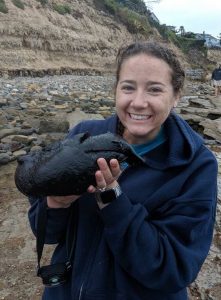
Hi there! I’m Rebecca Varney, and I’m excited to be taking over as the student/postdoc representative for DIZ. I’m currently a PhD candidate at the University of Alabama working on molluscs, where I use genomics and physiology to learn more about chitons and their incredible iron-clad teeth. I went to my first SICB in 2017 and was blown away by the supportive and enthusiastic tone of the conference, especially among my fellow invert nerds. I am happy to become a more official part of that, and I look forward to serving you over the coming years. — Rebecca Varney (rvarney@crimson.ua.edu)
Message from the Student Awards Committee Chair, Anne Böttger
Thank you to everyone who made the Annual SICB Meeting in Austin, TX memorable and a special thank you to all the students who presented! It was a great meeting that included excellent student presentations representing the Division of Invertebrate Zoology. We would also like to take the time and thank the 34 volunteer judges for their continuing commitment to the student presentations and their invaluable comments supporting our DIZ students. As a reminder, in order for students to compete in our division, they need to be a member of the DIZ. This year 31 students competed for the best student paper in 8 oral and 19 poster presentations. The Adrian M. Wenner Strong Inference Award was not awarded this year due to a lack of presentations following the required format.
The winners of the DIZ presentation awards for the 2020 SICB meeting are:
Mary Rice Best Student Oral Presentation
Winner – Samuel Bedgood: Making it Big and Losing Friends: Algal Symbiont Contributions are Shaped by Sea Anemone Life History.
Runner-up – Alyssa Liguori: Exploring local adaptation to salinity and temperature variability in the copepod Tigriopus californicus.
Alan Kohn Best Student Poster Presentation
Winner – P.B. Caine: Colony Recognition and Aggression in Invasive Argentine Ants (Linepithema humile) of Georgia.
Runner-up – E. Urban-Gedamke: Evaluation of 3-D Cell Culture Methods for Marine Sponges.
Please join me in congratulating these outstanding students for their contributions. I look forward to seeing you all at the next meeting in Washington D.C. in January 2021! Sincerely, Anne
Message from the Libbie Hyman Scholarship Selection Committee Chair, Jennifer Burnaford
Applications for the 2020 Libbie H. Hyman Memorial Scholarship were due on 4 February. We received 18 applications this year which were reviewed by a three-person committee: Dr. Will Jaeckle, Dr. Shanna Hanes, and Dr. Jennifer Burnaford. We will be supporting three applicants for the 2020 field season.
- We awarded $3000 to Charlotte Benedict to support participation in the Marine Invertebrate Zoology course at the University of Washington Friday Harbor Laboratories. Charlotte will be starting in the Fall as a graduate student in the lab of Marymegan Daly at Ohio State University. Charlotte has a background in molecular phylogenetic research and bioinformatics, and this course will give her an opportunity to learn about her study organisms from a different perspective, with a comprehensive analysis of diversity and morphology that will establish a solid foundation for her graduate work.
- We awarded $1000 to Hannah Lee to support travel to the Oregon Institute of Marine Biology as part of her MS work on the evolution of cheilostome bryozoans. Hannah, who is in her first year in Sean Craig’s lab at Humboldt State University, will spend time at OIMB as she travels along the US Pacific Coast to collect specimens from the family Microporellidae. For her graduate research she will focus on genetic analysis of mitochondrial and nuclear genes which can be combined with morphological data to resolve phylogenetic relationships.
- We awarded $654 to Rachel Surprenant to support her participation in the ‘Taphonomic and Ecological Processes in Tropical Environments’ course at the University of the Bahamas Gerace Research Centre on San Salvador. Rachel is in the second year of her graduate work in paleontology at the University of California Riverside, where she works with Mary Droser. Her research is focused on fossilized invertebrates in the Ediacaran period, and participation in this field course will enable her to investigate variability in preservation fidelity of soft-bodied reef-dwelling organisms, which will provide perspective on decay models in globally disparate reef ecosystems.
As always, I would like to acknowledge the exceptional team which makes the application and award process move smoothly, with thanks to Will Jaeckle and Shanna Hanes for their thoughtful and thorough review of applications and SICB Webmaster Ruedi Birenheide for all of his work with the webpage and application logistics.
The Libbie H. Hyman Award provides funding to support the first significant field station experience for advanced undergraduates or early career graduate students pursuing coursework or research on invertebrates. This first field station experience is typically a transformative period in the career and life of a student. We deeply appreciate the donations which allow us to support these experiences. As the costs associated with summer field station experiences continue to rise, we are always happy to accept contributions to the Scholarship Fund so that we can increase the amount of support to these deserving students. To contribute, click on Donate to SICB on the SICB home page (www.sicb.org) or send a check to: SICB Business Office, Libbie H. Hyman Memorial Scholarship Fund, 1313 Dolley Madison Blvd., Suite 402, McLean, VA 22101. Checks should be made payable to SICB and marked as a “Contribution to the Libbie H. Hyman Memorial Scholarship Fund.” All contributions are tax deductible. Thanks for your help! — Jennifer
DIZ Chair Candidate Biographies
(Ballot: http://burkclients.com/sicb/elections/2020.php)
Jennifer L. Burnaford
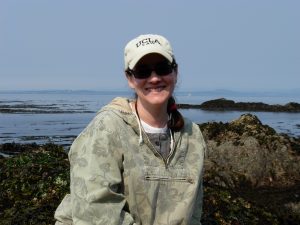
Current Position: Associate Professor of Biological Science, California State University, Fullerton (CSUF)
Education: B.A. Dartmouth College (1992), Ph.D. Oregon State University (2001), NSF International Postdoctoral Fellow Arizona State University / Intercultural Center for the Study of Deserts and Oceans, Puerto Peñasco, Mexico (2001 – 2003)
Professional experience: Visiting Instructor, University of Washington Friday Harbor Laboratories (2003); Visiting Assistant Professor, University of Puget Sound (2003 – 2009); Assistant Professor, CSUF (2009 – 2015); Associate Professor, CSUF (2015 – present)
SICB activities: Member since 2000. Society-Wide Activities: Educational Council: 2019-present. Member-at-Large: 2015-2018. Dorothy Skinner Award Committee: Member 2016, Chair 2017. DIZ Activities: Libbie Hyman Scholarship Committee: Chair 2010 – present. DIZ Nominating Committee: Chair 2015. DIZ Student Poster Judge: annually.
Other memberships: Society for the Advancement of Chicanos/Hispanics and Native Americans in Science, Western Society of Naturalists (Diversity Equity and Inclusion Committee 2018-present), American Society of Limnology and Oceanography, Phycological Society of America (Science and Public Policy Committee 2011-2013).
Research Interests: Plant-Herbivore Interactions, Physiological & Community Ecology, Habitat Modification, Invasive Species.
Goals Statement: I am strongly committed to all three prongs of SICB’s mission to foster “research, education, and public awareness.” I attended my first SICB meeting as a graduate student, and as I increase my level of service I become more inspired by our members and our potential and more committed to give back. After 10 years as chair of the Libbie Hyman Scholarship committee, I see the office of DIZ chair as an exciting opportunity to help support our current division members and to engage the next generation of scholars in a long-term commitment to DIZ. I look forward to working with officers and members to help develop forward-thinking meeting programs which inspire new perspectives and build a diverse community. I would work with the Public Affairs Committee to reach out through traditional and social media to inform potential members, lawmakers, and voters about our science and its relevance to their lives. SICB, and DIZ, has a dynamic and important role in a changing environmental and political landscape, and I look forward to the opportunity to work with our members to build community and a strong future.
Jonathan D. Allen
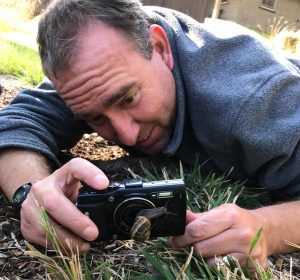
Current Position: Associate Professor of Biology and Co-Director of the Undergraduate Program in Marine Science at William & Mary
Education: B.S. Bates College (1998); Ph.D. University of North Carolina at Chapel Hill (2005); Postdoctoral Scholar Bowdoin College (2005-2008)
Professional Experience: Assistant Professor, Randolph-Macon College (2008-2009); Assistant Professor, College of William and Mary (2009-2015); Associate Professor, College of William and Mary (2015-Present).
SICB Activities: SICB member since 1999; Student Support Committee 2013-2016; Membership Committee 2012-2015; Secretary, Division of Invertebrate Zoology 2013-2016.
Other Memberships: American Microscopical Society, American Society of Naturalists, Ecological Society of America, Sigma Xi
Research Interests: Larval biology of marine invertebrates; evolution of complex life cycles with emphasis on the role of maternal investment in driving changes in development; ecological developmental biology with emphasis on the role that predator cues and changes in water quality play in inducing developmental plasticity.
Goals Statement: The annual SICB meeting was the first professional conference that I ever attended, and it is the one I most frequently return to with my research students. Within SICB, the Division of Invertebrate Zoology is the one that I call ‘home’. I can see two major roles for the division Chair. One role is to build membership in the Division by attracting new students and colleagues to present their excellent work on the invertebrate animals that we all know and love. This can be achieved by continuing to co-sponsor symposia and also by spreading the word about attending the annual meeting, which I think is one of the best professional conferences there is. The second role is to build financial investment in the Division through gifts to the Hyman Memorial Scholarship which has done so much over the years to draw new students into the study of invertebrates. More generally, SICB (and DIZ in particular) holds a special place for me as a professional home away from home and I count many of my greatest friends in its membership. I want to do what I can to give back to the society and division that has meant so much to me.
DNNSB
Table of Contents
- Message from the Chair, Mike Baltzley, Chair.DNNSB@sicb.org
- Message from the Program Officer, Jeff Riffell, DPO.DNNSB@sicb.org
- Message from the Secretary, Lisa Mangiamele, Secretary.DNNSB@sicb.org
- Message from the Student/Postdoctoral Affairs Committee Representative, Maryam Kamran
- Best Student Presentation Awards
- DNNSB Chair Candidate Biographies
Division of Neurobiology, Neuroethology, and Sensory Biology: Newsletter Spring 2020
Please vote in the Spring 2020 Elections (candidate biographies can be found below). The deadline is April 19th, and the ballot can be found in the link provided here. http://burkclients.com/sicb/elections/2020.php
Message from the Chair, Mike Baltzley, Chair.DNNSB@sicb.org
I enjoyed seeing many of you at the SICB annual conference in Austin. In addition to co-sponsoring five symposia, our division had a full schedule of fantastic talks and posters! Thanks to the division members who presented their research and to our DNNSB officers for all their volunteer work on behalf of our division.

Thanks to all of you who helped judge our Best Student Presentation (BSP) talks and posters. The competition is only possible because of all the division members who volunteer to judge. The presentations for the BSP competition were once again outstanding! Our BSP oral session winner was Jessleen Kanwal (Harvard University). Rebecca Lucia (University of South Carolina) won the BSP poster presentation with Lydia Naughton (Bucknell University) receiving honorable mention.
In this year’s election we will be voting for our new division Chair. Please take a moment to vote! Additionally, every year the SICB Executive Committee solicits nominations for members of our various society-wide committees. A list of the committees can be found on the SICB website (http://www.sicb.org/resources/committees.php3). Please let me know if you are interested in serving on one of these committees.
Message from the Program Officer, Jeff Riffell, DPO.DNNSB@sicb.org
The 2020 Meeting in Austin. We had a great scientific program in Austin. DNNSB co-sponsored five symposia, including “Integrative comparative cognition: can neurobiology and neurogenomics inform comparative analyses of cognitive phenotype?” organized by Sarah Burmeister and Yuxiang Liu. We also co-sponsored several other great symposia, including “Epigenetic Variation in Endocrine Systems,” organized by Tyler Stevenson, Lynn Martin, and Haley Hanson, and the SICB-wide symposium “Reproduction: the female perspective from an integrative and comparative framework,” organized by Teri Orr and Virginia Hayssen. Kim Hoke and Nathan Morehouse organized an excellent workshop related to next year’s symposium “Spatiotemporal dynamics of animal communication”.
There was also a fantastic turn-out for DNNB’s Best Student Presentations and Posters – such great talks! But please remember for next year’s meeting to encourage your students to apply. The application is easy; it’s just a check-box on their registration form. And of course, thanks to everyone for participating and sharing your work!
Symposia for the 2021 Meeting in Washington DC. DNNSB will co-sponsor 6 of the 12 symposia at the 2021 meeting in Washington DC. There will be a series of excellent DNNSB symposia this next year. We are the primary sponsor for two exciting symposia: “Spatiotemporal dynamics of animal communication,” organized by Kim Hoke and Nathan Morehouse, and “Sending and Receiving Signals: Endocrine Modulation of Social Communication,” organized by Karen Maruska. We’re also co-sponsoring several other excellent symposia, including “Blinded by the Light: Effects of Light Pollution across Diverse Natural Systems,” organized by Meredith Kernbach; and “Physical Mechanisms of Behavior” hosted by Patrick Green. Finally, we are co-sponsoring two SICB-wide symposia: “The integrative biology of pigment organelles,” organized by Jerome Casas and Florent Figon; and “Biology Beyond the Classroom: Experiential Learning through Authentic Research, Design, and Community Engagement,” organized by Alexandria Hansen. Washington DC will be an extraordinary meeting with DNNSB-related talks. Please keep an eye out for symposium details on the SICB meeting site (http://www.sicb.org/meetings/).
Submit Proposals for Symposia at the 2022 Meeting in Phoenix AZ, or planning a Workshop. Proposals for symposia for the 2022 meeting in Washington DC are due August 23th, 2020. If you have an excellent idea for a symposium, I urge you to submit a proposal. Moreover, please contact me, Michael, Lisa, or Maryam if you want feedback about your ideas. The call for proposals can be found at http://sicb.org/meetings/2022/callsymp.php, and the guidelines for the process of developing proposals can be found at http://sicb.org/resources/SICB%20Symposium%20Policies%20and%20Guidelines%20Final.pdf.
Submitting a proposal is not difficult, although it does require some planning and organization. The breadth of DNNSB continues to grow, and we’d like the symposia to reflect that breadth. Not surprisingly, given our scope, we co-sponsor many symposia. Nonetheless, we would still appreciate having symposia that have DNNSB as a focus. And if there are hot/developing topics that should be a symposium topic, please let us know.
Another mechanism for featuring emerging research areas are Workshops. A Workshop can be scheduled the day before the meeting and provides impetus to bring in new people who typically do not attend SICB. If you have an idea for a Workshop, even one for Washington DC, please contact me and Jake Socha (Chair, Program Committee).
Looking Forward. We continue to have great discussions on ways to increase DNNSB membership. Please encourage your friends and colleagues about the benefits of being a SICB member and attending the annual meeting. SICB is a fantastic meeting for students and postdocs, and a mechanism to showcase interdisciplinary and forward-looking symposia.
Message from the Secretary, Lisa Mangiamele, Secretary.DNNSB@sicb.org
Vote in the SICB Election in May. An important reminder about elections: our division is electing a new Chair this year, so please see below for more information on the candidates and don’t forget to vote in May! Look for the election reminder email from SICB Headquarters in your inbox in a few weeks.
Communicating with Our Division’s Members. I am always working to keep members better informed about news and research going on within the Division. Please check out our Division’s Twitter feed at @SICB_DNNSB for some highlights from the 2020 SICB meeting. I would especially like to use this platform to advertise the excellent research of our divisional members, so please tweet me at @SICB_DNNSB or email me at secretary.dnnsb@sicb.org if you would like your work highlighted.
Message from the Student/Postdoctoral Affairs Committee Representative, Maryam Kamran
For those of you who attended SICB 2020 in Austin, I hope that it left you feeling energized and excited. I wanted to highlight that there are several opportunities for students and postdoctoral researchers at SICB, ranging from awards for travel support to grants in aid of research. Please see the links below.
In case you didn’t already know we have a Student Postdoc Affairs Committee that hosts programs of special interest to students and postdocs. In Austin we hosted a workshop on “Transitions in Science”, where we had an expert panel answer questions from students/postdocs about transitioning from one stage of their career to the next (including experts from outside of academia). We hope to host a similar workshop focusing on transferable skills and how you can utilize them in a broader context. If you would like to get involved with DNNSB or SPDAC please let me know. I look forward to hearing from you about what you would like to see more of. Please feel free to reach out to me on twitter @merreyum or email me at Kamran.mary@gmail.com.
- More information on SICB awards is available online at http://www.sicb.org/students/awards.php3#support
- Information on SPDAC http://www.sicb.org/resources/studentpostdoc.php3
- Twitter accounts that may be of interest to student/postdoc members include the SICB Student-Postdoc account @SICB_SPDAC and the DNNSB account @SICB_DNNSB
Best Student Presentation Awards
Best Oral Presentation Winner: Jess K. Kanwal, Harvard University
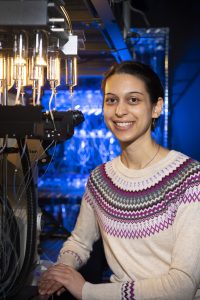
Jess is interested in how sensory information is integrated in the brain to enable adaptive behaviors, and how changes in sensory circuits underlie the evolution of behavior. For her graduate work, she studied how Drosophila larvae integrate olfactory and gustatory cues in early sensory brain areas to inform decision-making during navigation behaviors. As a postdoctoral fellow, she now uses roves beetles and their interaction with ants to examine how new forms of complex, chemosensory-mediated social behaviors can evolve through modifications in neural structure and function.
Best Poster Presentation Winner: Rebecca L Lucia, University of South Carolina
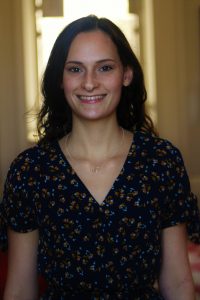
Rebecca is a senior undergraduate studying biology and marine science at the University of South Carolina. Her main focus is on the visual system and adaptations in the snapping shrimp Alpheus heterochaelis. In the past, Rebecca has conducted experiments to determine the spatial vision in snapping shrimp, but this year she is testing the learning and memory capabilities of snapping shrimp using a multiple T-maze. Rebecca loves learning about the amazing adaptations in snapping shrimp and other invertebrates, and she aims to study ecological morphology and climate policy as a graduate student in the coming years.
Best Poster Presentation Honorable Mention: Lydia F Naughton, Bucknell University
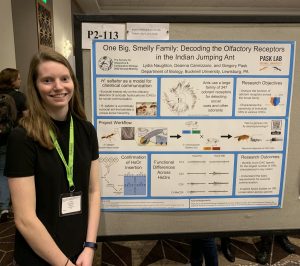
Lydia is an undergraduate neuroscience major at Bucknell University interested in sensory neurobiology. Currently, Lydia is using fruit flies as a transgenic model to express odorant receptors from the ant Harpegnathos saltator in order to characterize how individual odorant receptor genes from H. saltator contribute to overall olfactory detection ability. Lydia also uses electrophysiology to measure the activity of the fly’s olfactory receptor neurons in response to a panel of odorants used in insect communication. In the future, Lydia hopes to combine her interests in both sensory neurobiology and marine biology to study the effects of sensory processing on marine organism behavior.
DNNSB Chair Candidate Biographies
(Ballot: http://burkclients.com/sicb/elections/2020.php)
Rachelle Belanger
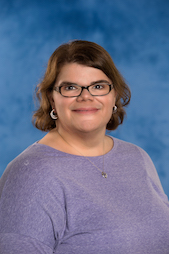
Current Position: Associate Professor and Assistant Chair of Biology, University of Detroit Mercy
Education: B.Sc. University of Windsor (2000), M.Sc. University of Windsor (2002), Ph.D. Bowling Green State University (2007),
Professional Experience: Postdoc University of Alberta (2007-2009)
SICB Activities: Member since 2006; Regular participant as a student poster/oral presentation judge for Division of Neurobiology, Neuroethology, and Sensory Biology and Division of Animal Behavior
Other Memberships: Council for Undergraduate Research, Michigan Society for Neuroscience, Association of Biology Laboratory Educators, Association of College and University Biology Educators
Research Interests: Research in my lab examines the behavioral, neurological and physiological effects of contaminants on aquatic organisms, including fish and crayfish.
Goals Statement: I joined SICB as a graduate student in 2006 and have been regularly attending the annual meeting since I became a faculty member at the University of Detroit Mercy. As a graduate student, attending SICB, I always felt welcomed and supported when I gave both poster presentations and talks. Since joining SICB as a faculty member, I have continued to watch the society grow and increase its commitment to equity and inclusion of diverse scientists. As a faculty member, I now attend and bring my undergraduate student researchers to present their work at the conference annually. This conference and division really fosters a sense of inquiry and belonging. I plan to continue to grow the division and make the division inclusive for both graduate and undergraduate student researchers. Planning more student activities, symposia and planning more seminars and scholar activities for division members are some of my goals as chair. I consider SICB to be my ‘home’ society, and I would be delighted to give back to the society by serving as the chair of the Division of Neurobiology, Neuroethology, and Sensory Biology.
James Newcomb
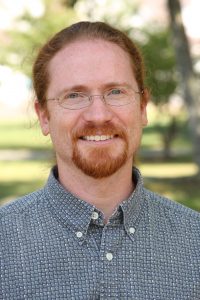
Current Position: Professor and Co-Director of Center for Undergraduate Science Research, New England College
Education: B.S., Chemistry/Physics, Keene State College, 1989; B.S., Zoology, University of New Hampshire, 1998; M.S., Zoology, University of New Hampshire, 2001; Ph.D., Biology, Georgia State University, 2006.
Professional Experience: Assistant Professor, New England College, 2006-2012; Associate Professor, New England College, 2012-2017.
SICB Activities: Member since 2000; DNNSB Divisional affiliation; awarded SICB Grants-In-Aid of Research in 2000; served as judge for Best Student Poster and Presentation Awards for DNNSB, 2016-2020; presenter at SICB annual meeting in 2000, 2006, 2012-2020.
Other Memberships: Council on Undergraduate Research; International Society for Neuroethology; National Association of Biology Teachers.
Research Interests: My research has most recently focused on circadian rhythms, extraocular photoreception, and non-invasive methods of neural stimulation. I am especially interested in approaching these phenomena from a comparative and evolutionary perspective. I use invertebrate organisms, especially nudibranch mollusks, for this research because of the relative simplicity of their organization (e.g., the nervous system), their advantageous phylogenetic position for comparative work, and the ease with which they can be housed and maintained at a primarily undergraduate institution.
Goals Statement: I appreciate the current leadership team for DNNSB and the work that they have done over the last several years in both improving the judging process for DNNSB student posters and presentations, and for trying to increase DNNSB affiliation and participation, especially from the student ranks. I would continue this work, using my affiliation with the International Society for Neuroethology to increase awareness in our scientific community of the value of involvement with DNNSB and SICB. Considering the recent growth that I have witnessed in undergraduate participation at SICB, I think that forming a relationship with Faculty for Undergraduate Neuroscience could result in positive dividends for DNNSB participation. I think that it is important to increase our visibility in the new SICB journal Integrative Organismal Biology, with a greater number of submissions from DNNSB-affiliated authors. I would also strive to increase participation of traditionally under-represented populations in DNNSB. I have been an active participant and judge over the last several years in the Neurobiology division of the Annual Biomedical Research Conference for Minority Students, and this offers potential synergistic opportunities.
DOB
Table of Contents
- Message from the Chair, Chris Martine, Chair.DOB@sicb.org
- Message from the Program Officer, Janet Steven, DPO.DOB@sicb.org
- Message from the Secretary, Chris Muir, Secretary.DOB@sicb.org
- DOB Presentation Awards
- Message from the Student/Postdoctoral Affairs Committee Representative, Morgan Furze
- DOB Secretary Candidate Biographies
Division of Botany: Newsletter Spring 2020
Please vote in the Spring 2020 Elections (candidate biographies can be found below). The deadline is April 19th, and the ballot can be found in the link provided here. http://burkclients.com/sicb/elections/2020.php
Message from the Chair, Chris Martine, Chair.DOB@sicb.org
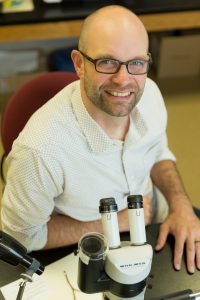
Holy cow vetch, people. The SICB 2020 meeting was full of cool firsts: The first time a SICB conference featured a Division of Botany, the first DOB business meeting, the first time your DOB officers had ever all been in the same room together, and the first use of the #SICBPlants hashtag. On a personal note, it was also the first SICB meeting I had ever attended.
I have to be honest; As I was travelling to Austin I wondered how fully embraced this whole plant thing was really going to appear once I got there. Would we seem like just an add-on to a society that was already chugging along pretty well without us? What I learned, from the moment the SICB Executive Committee meeting started on the first day, is that President Brainerd and the rest of the leadership (to paraphrase Sally Field) actually like us. They really really like us. Overwhelmingly, the message I got throughout the week from just about everyone who read the “DOB Chair” part of my name tag was “It’s about time.” And, you know what? It was.
As a first-time attendee and new division chair I spent most of SICB 2020 feeling welcomed, but I also spent much of the conference assessing the relative value, as an organismal botanist, of being a SICB member and attending a SICB meeting. Why should those of you who are already members continue to participate, and – perhaps more importantly – why should our broader community of plant scientists consider hopping on this verdant bandwagon? Many of us already belong to a few societies and invest our resources in attending a meeting or two a year that we feel a connection to – so why add SICB?
Here is a list of benefits that became clear to me while within Austin’s city limits:
- The Conference. I heard a lot of folks at this meeting (and even more on Twitter) talking about how special this annual meeting is. And, truthfully, it is pretty special. The science is broad, interesting, well-presented, rigorous – and all in a comfortable and inclusive mid-sized meeting where you can easily meet and interact with all sorts of amazing researchers at all career stages. Students are welcomed, celebrated, and supported. More than once, I heard someone say there is no meeting that hits on all of these levels quite like SICB – but I also know that’s not entirely true, because my experience at the annual Botany meetings has been almost exactly the same (except for the organismal coverage). So, if you like Botany (for you and/or for your students), you’ll probably also really like SICB 2021 in Washington, DC. If you’ve mostly attended much larger meetings like ESA or Evolution, consider SICB as a possible mid-year change of pace.
- The Community. The same community support that permeates the meeting also bolsters the whole ethos of the society. All you need to do is dig into #SICB2020 on Twitter and you’ll see that SICB is helping to lead the way in creating space for everyone in science.
- The Journals. What do you get when you have a new Division of Botany plus two excellent society journals with a hankering for plant-related submissions? Opportunity. Integrative and Comparative Biology largely publishes papers stemming from sponsored symposia at the meetings, so editor Ulrike Müller is hoping for integrative symposium proposals that include exemplar plant-themed studies. On the other hand, Adam Summers (editor of the new open-access Integrated Organismal Biology) just wants your manuscripts. He made me promise I’d tell you that.
- The Integration. Look, it’s right there in the name. And it’s right there in much of the current messaging from NSF – and in the way that many higher education institutions are revising their biology curricula. Integrative approaches to biology are where it’s at. I love my plants, my botanical community, and my botanical societies. I will never stop going to Botany meetings because, for me, that feels a lot like family. But I also know some of the greatest impact we can have is when we bust holes in our silos and let all of that golden grain spill out and mix with the farmers’ next door. SICB seems to be an excellent way to make that happen.
So, tell your friends. Let’s get more folks on board. And let’s have a major turnout of organismal botanists in DC next January.
Message from the Program Officer, Janet Steven, DPO.DOB@sicb.org
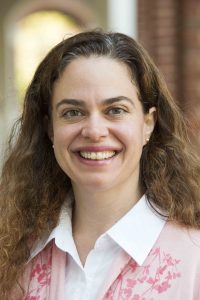
Greetings from your Program Officer, Janet Steven. The Division of Botany had a successful inaugural SICB meeting in January, and plants were in evidence in many sessions. Congratulations go out to Min Ya and Grey Monroe, who were both recipients of the Rising Star In Organismal Botany prize, and Maria Pimienta, who received the award for best student poster presentation in the division. Our student-faculty mixer was well-attended and provided many opportunities for good conversations. Many thanks to Morgan Furze for organizing it.
SICB 2021 will be in Washington, D.C. January 3-7, and we are looking forward to seeing the inclusion of plant science into discussions of integrative and comparative biology. As you attend conferences and talk to colleagues and this year, invite them to participate! If you are thinking ahead, symposium proposals for the 2022 meeting in Arizona are due in August. We encourage you to consider proposing a topic that addresses a question or phenomenon across taxa, and I can assist you in assembling the proposal and identifying speakers.
Thanks to everyone who has joined DOB, and we look forward to seeing you in Washington!
Message from the Secretary, Chris Muir, Secretary.DOB@sicb.org
Aloha DOBers! It was very exciting to have our first SICB meeting as an officially recognized division in Austin! Thanks to everyone who contributed their time, presented their science, attended the business meeting, and came to the Botany Bites social at Easy Tiger (organized by our SPDAC rep Morgan Furze).
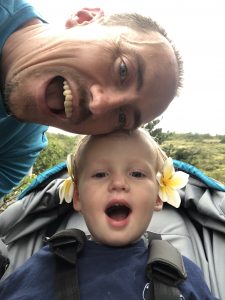
Our inaugural business meeting was really well attended and we discussed ideas for getting botany-inclusive symposium proposals for the 2021 SICB meeting in Phoenix. Proposals are due August 2020, so if you are interested in putting together a proposal and want to know more, please feel free to contact me or other DOB leadership. We also announced our awards at the DOB meeting, which you can find below. If you couldn’t attend the business meeting, our minutes will be posted here (http://www.sicb.org/resources/minutes.php3) in the near future.
We are holding our first DOB election shortly to elect a new Secretary that will take over my role starting in 2021. We have received nominations for Drs. Karolina Heyduk and Grey Monroe (one of our award co-winners). Scroll down to see the candidate profiles and look out for election announcements.
A few key reminders:
- HELP US GROW! Tell your colleagues about us and encourage them to reach out to DOB leadership, become a DOB member, and send their integrative botanical work to the SICB meeting and/or journals.
- VOTE! Check out the Secretary Nominees (Drs. Karolina Heyduk and Grey Monroe) and vote in the election when it’s announced.
- PICTURES! Send me plant pictures you want me to include in future newsletters.
Finally, I want to encourage everyone to hug their mentors (or at least send them a nice note). My undergraduate mentor, Dr. George Gilchrist (Dr. G to undergrads in the lab) passed away recently. I first became interested in integrative evolutionary physiology working in his lab on thermal tolerance in Drosophila. In addition to research, he was an amazing teacher of Evolutionary Genetics and Biostatistics. I wouldn’t be doing my dream career without his early guidance. Please consider donating to the George Gilchrist Student Support Fund organized by The American Society of Naturalists and Society for the Study of Evolution (https://www.amnat.org/announcements/Gilchrist.html)
DOB Presentation Awards
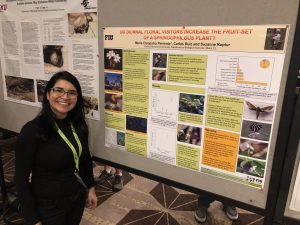
The Best Student Presentation Award for the Division of Botany went to: Maria Cleopatra Pimienta for “Do diurnal floral visitors increase the fruit-set of a sphingophilous plant? The case of the rough-leaf velvetseed (Rubiaceae)”
The Rising Star in Organismal Botany award was split between two individuals:
-
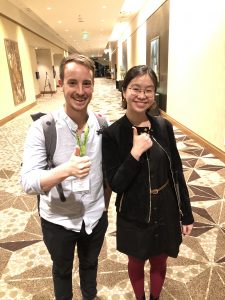
Grey Monroe and Min Ya Min Ya for “Understanding floral meristem termination by exploring genetic architecture underlying stamen whorl numbers in Aquilegia“
- Grey Monroe for “From satellites to sequences: investigating drought adaptive life history evolution in plants”
Thank you again to SICB President, Dr. Beth Brainerd, for sponsoring the Rising Star in Organismal Botany award.
Message from the Student/Postdoctoral Affairs Committee Representative, Morgan Furze
We did it! Thank you for helping to showcase botany for the first time at SICB 2020! After a suite of wonderful plant-related talks, our community celebrated over a Botany Bites dinner at Easy Tiger. Sausages, pretzels, and great conversation were enjoyed! We will plan to host another social event next year, so be on the lookout for details as SICB 2021 approaches!
As your DOB SPDAC rep, I wanted to bring your attention to the resources that SPDAC offers to students and postdocs at the annual meeting. This year, in addition to having a “How-To” booth in the Exhibitor Hall, we hosted a “Transitions in Science Careers” workshop which provided an opportunity to ask experts about moving between career stages. I hope you were able to attend, but if not, please consider joining the workshop next year! The topic will be “Transferable Skills in Academia and Non-Academia”, and we will be bringing in non-academic experts from the D.C. area!
My goal is to be a voice for the students and postdocs of DOB, so if you have any feedback, concerns, or ideas to improve your experience at future meetings, please get in touch (morgan.furze@yale.edu)! Let’s keep the green wave going! See you in 2021!
DOB Secretary Candidate Biographies
(Ballot: http://burkclients.com/sicb/elections/2020.php)
Karolina Heyduk
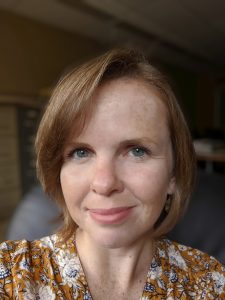
Current Position: Assistant Professor, School of Life Sciences, University of Hawai`i at Mānoa
Education: B.S., Economics and Biological Aspects of Conservation, University of Wisconsin-Madison (2011); Ph.D., University of Georgia (2015); Postdoctoral researcher, University of Georgia (2016-2018); Yale Institute for Biospheric Studies Donnelley Postdoctoral Fellow (2018-2019).
Professional Experience: Associate Editor for Applications in Plant Sciences (2019-present); ad hoc reviewer for NSF DEB, IOS, and PGRP; Botanical Society of America Education Committee member (2018-2021).
SICB Activities: Recipient of SICB grants in aid of research (2014), member of Division of Botany (2019-present).
Other Memberships: Botanical Society of America
Research Interests: My research integrates plant physiology and genomics to understand how plants evolve adaptations to abiotic stress. Working in a phylogenetic comparative context, much of my work has focused on understanding the repeated evolution of CAM photosynthesis, a type of photosynthetic modification that allows plants to tolerate extreme water limitation.
Statement of Goals: I have always had a hard time putting a box around the type of research I do – not quite physiology, not quite genomics. I realized recently that “integrative” is a box of its own, and when I attended SICB for the first time in 2019, I found an entire conference of scientists who work across organismal biology. I would be eager to serve as an officer for the newly formed Division of Botany to help promote SICB as a venue for integrative plant biology. I am also excited to work with SICB, an organization that reflects my own values of diversity and inclusion, as well as the importance of ECR contributions to our scientific societies.
Grey Monroe
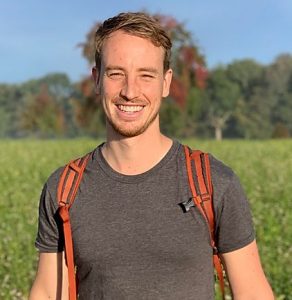
Current position: Postdoctoral fellow at Max Planck Institute for Developmental Biology
Education: BS Biology, Appalachian State University (2008-2012) PhD Ecology, Colorado State University (2014-2019)
Professional experience: Assistant Professor, Department of Plant Sciences, University of California, Davis (starting 2020)
SICB activities: DOB member, Co-awarded Rising Star in Organismal Botany in 2020
Other memberships: Society for the Study of Evolution
Research interests: As sessile organisms, plants must cope directly with whatever conditions they experience in their environment. I am interested in the physiological strategies employed by plants, and their underlying genetic and molecular mechanisms, to adapt to extreme climate events like drought.
Statement of goals: My first year attending SICB was in 2020 as a proud member of the new Division of Botany. I would be excited to join the leadership team and work to introduce SICB to the larger plant research community. I know there are many people who would love to hear the amazing work by society members as well as share their own discoveries from the fascinating world of plants.
Gratuitous plant photo, courtesy of Janet Steven
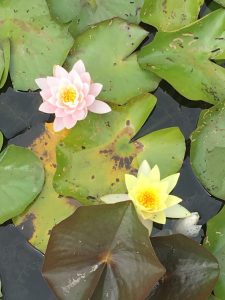
DPCB
Table of Contents
- Message from the Chair, David Blackburn, Chair.DPCB@sicb.org
- Message from the Secretary, Haley O’Brien, Secretary.DPCB@sicb.org
- Message from the Program Officer, Todd Oakley, DPO.DPCB@sicb.org
- Message from the Program Officer-Elect, Leigha Lynch
- Message from the Student/Postdoctoral Affairs Committee Representative, Emily Lessner
- DPCB Best Student Presentation Awards
- DPCB Chair-Elect Candidate Biographies
- DPCB Secretary-Elect Candidate Biography
Division of Phylogenetics and Comparative Biology: Newsletter Spring 2020
Please vote in the Spring 2020 Elections (candidate biographies can be found below). The deadline is April 19th, and the ballot can be found in the link provided here. http://burkclients.com/sicb/elections/2020.php
Message from the Chair, David Blackburn, Chair.DPCB@sicb.org
The Division of Phylogenetic and Comparative Biology had a strong presence at this year’s annual meeting in Austin. We had a great line-up of talks and posters for the Wake Award competition (including an unprecedented tie for Wake Award oral presentations!), a successful reprise of the Ask-An-Expert booth, and one of the best attended business meetings for the division in my memory. Thanks especially to our new secretary Haley O’Brien for putting the Ask-An-Expert Booth together! We are pleased to welcome two new members of the DPCB Executive Committee: Program Officer-Elect Dr. Leigha Lynch, and Student and Postdoctoral Affairs Committee Representative Emily Lessner. Leigha specializes in genetics, ancient DNA extraction and sequencing, and phylogenetic comparative methods. Emily is a Ph.D. student studying the trigeminal nerve in Casey Holliday’s lab at the University of Missouri.
In the past few years, we have experienced persistent problems related to confusion between DPCB and DCPB (Division of Comparative Physiology and Biochemistry). We may move this year to revise our divisional name to cause less confusion within SICB but still retain a name that reflects the division’s identity. Stay tuned, but until then, remember: P’s Before B’s When You’re Working With Trees!
This spring, we are voting on a Chair-Elect and a Secretary-Elect for DPCB. Please vote!
Message from the Secretary, Haley O’Brien, Secretary.DPCB@sicb.org
SICB 2020 saw a lot of great momentum for the Division of Phylogenetics and Comparative Biology. The Wake Awards had more participants than the past 5 years, and showcased some stellar student work, which made for difficult decisions by the judges. The 2020 DPCB-sponsored and organized Ask-An-Expert Booth was a great hit! Please join me in thanking Vikram Baliga, Ryan Felice, Sarah Friedman, Anthony Gilbert, Jaimi Gray, Jennifer Hodge, Emily Kane, Kevin Kocot, Olivier Larouche, Leigha Lynch, Don Miles, Sam Price, Lars Schmitz, and Vanessa Young. They provided Expert advice about comparative methods, R-stats, genomics, trait evolution, early career survival, and biomechanics to more than 50 SICB members! The Expert Booth was always crowded, so we are looking to expand our efforts for 2021. Interested in adding more outreach and networking opportunities to your CV? Reach out to any of the DPCB Officers for more information about volunteering at the booth next year in Washington, D.C.
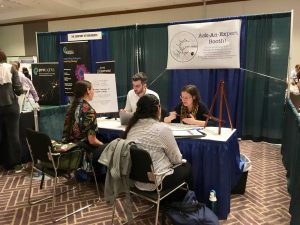
We’re continuing our efforts to overhaul the DPCB Researchers Database (http://bit.ly/DPCBresearchers) this year. This page hosts images and short paragraphs highlighting the work of our members, and is an excellent opportunity to share your interests and recruit students. Students are also encouraged to submit short biographies to showcase their research and future goals.
Want more SICB DPCB updates? Of course you do! Follow us on Twitter for division news, job postings, coding pro-tips, relentless promotion of our awesome members, and probably a few cat videos: @sicb_dpcb
Message from the Program Officer, Todd Oakley, DPO.DPCB@sicb.org
DPCB supports the use of phylogenetic methods to address comparative and integrative questions and supported multiple symposia during the 2020 SICB meeting in Austin, including:
- Reproduction: the female perspective from an integrative and comparative framework
- Building Bridges from Genome to Phenome: Molecules, Methods and Models
- Melding Modeling and Morphology: integrating approaches to understand the evolution of form and function
- Integrative comparative cognition: can neurobiology and neurogenomics inform comparative analyses of cognitive phenotype?
In Washington, D.C. in 2021, we will be co-sponsoring 4 symposia. More information will be posted on SICB’s Washington DC meeting webpage soon.
Message from the Program Officer-Elect, Leigha Lynch
I am excited to have begun my position as DPCB Program-Officer Elect, as of the close of the meeting in Austin! During this year-in-training, I will be working closely with current Program Officer Todd Oakley to recruit DPCB-led symposia. Now is the time to submit your symposium ideas for SICB’s Annual meeting in 2022 in Phoenix, Arizona. Submissions will be due toward the end of August, 2020. Please reach out to myself and Todd if you have ideas! We are particularly interested in symposia that highlight how the methods used by DPCB members (phylogenies, comparative methods) can be used to synthesize research with other exemplar divisions. Possible topics include:
- The latest phylogenetic comparative methods
- New methods for calculating evolutionary rates
- Bioinformatics: best practices and applications
- Phylogenetic methods for modeling evolutionary and ecological processes
- The generation of biological novelty
I’m looking forward to working with DPCB members to highlight our division and its unifying themes across SICB!
Message from the Student/Postdoctoral Affairs Committee Representative, Emily Lessner
Hello, I am Emily Lessner, your new student/post-doc representative! I am currently a PhD candidate in my third year at the University of Missouri working with Casey Holliday. I am investigating the innervation, anatomy, and evolution of trigeminal nerve-innervated sensory systems in reptiles to predict behaviors and interactions of extinct animals. I use dissection and imaging techniques (e.g., whole mount staining, histology, CT scanning) to look inside the skulls of both extant and extinct animals across clades. I first attended SICB as an undergraduate in 2016 and was impressed by the emphasis on diversity, both scientific and demographic. This inspired me to become more involved, and this year I accepted the role as DPCB SPDAC representative and was also a Code of Conduct Safety Ally. I am excited to serve as a DPCB representative and please don’t hesitate to contact me with concerns, questions, or comments!
SPDAC report: The SPDAC “How-To?” booth was a success this year and we have decided to hold it again next year. In Washington D.C., we will be continuing to distribute packets and brochures on various topics (e.g., tips for media interviews, research and teaching statements, elevator talks, how to get a post-doc, etc.). We will be adding more literature (contact me with any ideas at ejlessner@mail.missouri.edu) and a schedule of relevant events and holding office hours with the representatives for in person divisional-specific questions and concerns.
The Transitions in Science Careers Workshop was also a success, with over 60 attendees and 10 unique topics for discussion! We are planning a similar event for Washington D.C., this time focusing on “Transferable Skills in Academia and Non-Academia.” Our goal is to invite external experts in governmental, contracting, museum, and other careers in addition to our SICB members from academia to speak about their experiences. Please let me know if you have potential contacts or any suggestions.
Thank you to the non-SPDAC members who attended our meeting at SICB. Your comments were heard and appreciated!
DPCB Best Student Presentation Awards
Winners of the Wake Award for Best Student Oral Presentation:

- Katherine Corn, UC Davis: Katherine Corn is a fourth-year PhD candidate in the Wainwright Lab at UC Davis. Her interests center around the relationship between functional morphology and macroevolution, specifically the role of major functional transitions in driving and constraining morphological diversity. Her goals are to continue to explore the diversity of fishes and the fish feeding apparatus as a professor.
-
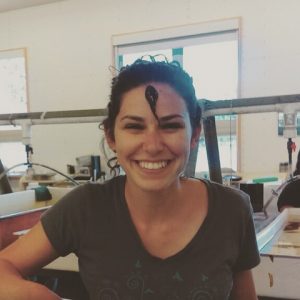
Sarah Friedman Sarah Friedman, UC Davis: “I am a 5th year in the Ecology program at UC Davis. As a Ph.D. candidate in Peter Wainwright’s lab, my work combines aspects of phylogenetic comparative methods, functional morphology, and biomechanics to determine the ecological mechanisms that shape the evolution and diversification of fishes. After completing my dissertation, I’m hoping to continue my work in macroevolution and functional morphology as a postdoc and ultimately run my own lab as a tenure-track professo
Winner of the Wake Award for Best Student Poster Presentation: Natasha Picciani, UC Santa Barbara. Natasha Picciani is an evolutionary biologist using phylogenetics, single cell techniques, and other comparative approaches to
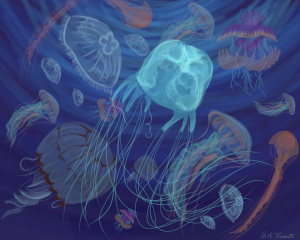
understand convergence of complex traits. Her focus is the evolution of eyes and photoreceptor cells in Cnidaria, including jellyfish with eyes that evolved repeatedly. Natasha is in the final year of the PhD program in Ecology, Evolution and Marine Biology at the University of California, Santa Barbara, where she works with Prof. Todd Oakley’s research group. She was recently awarded the Donnelley Postdoctoral Environmental Fellowship at Yale University to continue investigating the evolution of complexity and its molecular basis in the laboratory of Prof. Casey Dunn.
Wake Award BSP Poster Honorable Mention: Shannon Dohr for Dohr, SD*; Hahn, KM; Tuffield, MS; Ward, RS; Boyer, SL. New species of New Zealand Mite Harvestmen in the Genus Aoraki (Arachnida, Opiliones, Cyphophthalmi, Pettalidae). Presenting Author Shannon Dohr is a junior biology major, data science and spanish double minor at Macalester College. After graduation, she plans to join Americorps and apply to graduate school to study microbiology.
DPCB Chair-Elect Candidate Biographies
(Ballot: http://burkclients.com/sicb/elections/2020.php)
Samantha Price
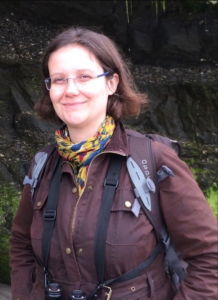
Current Position: Assistant Professor in the Department of Biological Sciences at Clemson University
Education: BA (2001) University of Oxford; Ph.D. (2006) University of Virginia; Postdoctoral Fellow (2005–2008) Duke University; Postdoctoral Researcher (2008–2011) UC Davis
Research Interests: My research uses phylogenetic comparative approaches to investigate how the biotic and abiotic environment regulates the evolution of ecomorphological diversity. Central to my research is the generation and analysis of vast ecomorphological databases based on museum specimens. Taking morphometric measurements and geometric morphometric descriptions of functionally relevant structures enables me to integrate fossil and living diversity when applicable. My aim is to identify repeating themes and general principles governing the evolution of vertebrate biodiversity.
SICB Activities: I have been an active member of the Division of Phylogenetic and Comparative Biology since joining SICB in 2008. I have taught at several phylogenetic comparative workshops supported by the division and in 2019 and 2020 I volunteered to be part of the DPCB “Ask an Expert Booth”. I also co-organized with Dr. Martha Muñoz a SICB-Wide symposium on “Comparative Evolutionary Morphology and Biomechanics in the Era of Big Data,” along with the accompanying student mentorship luncheon. I have also served the broader community of comparative biologists by teaching hands-on phylogenetic comparative method workshops in the US (as a guest instructor at the Bodega Bay Applied Phylogenetic workshop 2008 to 2017 & the Friday Harbor Evolutionary Quantitative Genetics Workshop 2019 & 2020) and Chile (3-day courses in Concepción 2015 & Santiago 2016).
Goals Statement: My primary goal as Chair would be to promote and advocate for the Division within the Society for Integrative and Comparative Biology and beyond, to attract new active members that share our interests in phylogenetic and comparative biology. I would work with the other officers of the division to build upon recent initiatives, such as the popular “Ask an Expert” booth, to support the application of phylogenetic approaches society-wide. For example, running a series of practical methods workshops each tied to a symposium that is co-organized with another SICB division. I would also solicit feedback from our members to identify new ways to engage and further support our graduate student and postdoctoral members, whose innovative research is the best advertisement we have for our division.
Haley D. O’Brien
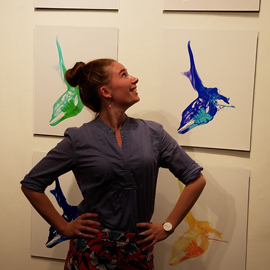
Current Position: Assistant Professor, Oklahoma State University Center for Health Sciences
Education: Ph.D., Ohio University, 2016; B.S., College of Charleston, 2009.
Research Interests: My research focuses on the role that unique thermoregulatory capabilities have played in the evolution of large-bodied mammals across periods of Cenozoic climate change. I use selective brain cooling in artiodactyls and carnivores as a model system, and employ macroevolutionary modeling and phylogenetic comparative methods to generate inferences regarding the interface between organismal physiology and environmental shifts across deep time scales.
SICB Activities: SICB is a great society to be involved in, and I have enjoyed my time as the Secretary of the Division of Phylogenetics and Comparative Biology since 2018. I also started and continue organizing the Ask-An-Expert Booth, have participated in symposia, contributed manuscripts to Integrative and Comparative Biology and Integrative Organismal Biology, and play an active role in SICB mentorship opportunities, such as the Broadening Participation Committee Mentorship Program.
Goals Statement: My goal is to help increase the visibility of the Division of Phylogenetics and Comparative Biology. As secretary, I have increased DPCB’s activity on social media and organized the Ask-An-Expert Booth. I have also been recruiting materials for the SICB Research and Education Resources database and have been working with the Webmaster to include systematics and phylogenetic comparative methods as a separate page. Currently, DPCB has a lot of forward momentum, and I hope to capitalize on that by continuing the highly visible projects that I have started and by soliciting DPCB-led symposia at upcoming meetings. Hashtag please vote for Sam Price.
DPCB Secretary-Elect Candidate Biography
(Ballot: http://burkclients.com/sicb/elections/2020.php)
Ryan N. Felice
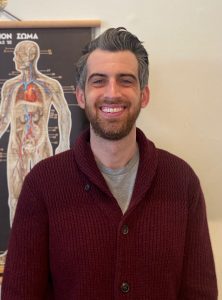
Current Position: Lecturer, University College London, London, UK
Education: Ph.D., Ohio University, 2015; B.S., Tulane University, 2009
Research Interests: My research is focused on the evolution of morphological diversity through time. I use geometric morphometrics and phylogenetic comparative methods to understand how the component parts of organisms relate to one another (i.e., modularity and integration) and how these interactions have shaped evolvability, disparity, and variation across the tree of life. Working primarily on birds, dinosaurs, and other archosaurs, I am interested in bridging macroevolution with developmental biology to understand the factors that constrain and/or facilitate skeletal evolution. I am also interested in developing and refining new methods for high-dimensional characterization of shape, working toward the goal of characterizing the “phenome”- the sum total of phenotypic traits of an organism.
Goals Statement: To me, phylogenetics and comparative biology represents the heart of SICB. Nearly every other division has members that use phylogenetic and comparative methods in their research. Spreading this message and raising awareness of our division to increase our membership is my goal as Secretary. DPCB has made great strides in this direction in two ways: (1) fantastic Wake Award sessions for best student talk with packed audiences and (2) the “Ask an Expert” booth. In my tenure as secretary, I plan to help in fostering the success of these events to enhance engagement with DPCB. I will further increase awareness and engagement by partnering with the rest of the DPCB officers to sponsor and organize multiple symposia.
DVM
Table of Contents
Division of Vertebrate Morphology: Newsletter Spring 2020
Please vote in the Spring 2020 Elections (candidate biographies can be found below). The deadline is April 19th, and the ballot can be found in the link provided here. http://burkclients.com/sicb/elections/2020.php
Message from the Chair, Patricia Hernandez, Chair.DVM@sicb.org
Hello all. Thank you to everyone that helped make our meeting in Austin a great success. I think that our meetings just keep getting better and better!
Among the many wonderful symposia and contributed talks a personal highlight for me was the D. Dwight Davis Best Student Paper presentations, which I had the great honor of chairing. Spanning a broad diversity of vertebrate morphology all of the talks were truly excellent. The winner was Jack Phillips of UCONN for his fascinating presentation “Novel Air-breathing Modes in Anuran Tadpoles.” Thank you Jack for introducing us all to single and double bubble sucks. The Karel Liem poster award went to Brenan Wynd for his poster “Allometric growth and shifting diet in the large-bodied traversodontid cynodont, Exaeretodon argentinus, with implications for modeling growth in distorted specimens.” Thank you to DVM Chair-elect Rick Blob for organizing judging of presentations and posters, and thank you to all the judges involved.

During the meeting several students approached me regarding the seemingly prohibitive language associated with the poster competition. We are now looking at that language to see what changes can be made there to increase the number of students competing for this award.
During the upcoming spring elections, we must select a new Secretary-elect. We are fortunate to have two excellent candidates vying for the position, Vanessa Young and Kristen Stover. Please see their candidate profiles below. Thank you to Marianne Porter and Marguerite Butler who served as our nominating committee. Thank you, Vanessa and Kris for being willing to serve your division.
As we start thinking about our next meeting in Washington, DC please know that we will be supporting several excellent symposia (see Mason Dean’s statement below). Also, we are already actively shopping for good symposium proposals for our 2022 meeting in Phoenix, AZ. As we have done in the past our program officer is collecting good symposium ideas; this offers an opportunity to suggest symposium ideas even if you are not quite ready to organize the symposium. If you would like to discuss the possibility of organizing a symposium please reach out to our wonderful program officer, Mason Dean.
As regards our next SICB meeting, I am taking advantage of being a local and am trying to find a more “lively” setting for our DVM/DCB social. If anyone has any suggestions of what might be fun, please reach out to me at phernand@gwu.edu.
Have a great spring everyone!
Message from the Program Officer, Mason Dean, DPO.DVM@sicb.org
Austin was a blast! We had 2278 total attendees and over 1800 abstracts, ~25% of those from DVM/DCB. Thanks to Phil Anderson for his hard work in helping programming the abstracts and to all of you for your excellent contributions to the scientific content; it’s fantastic to see DVM so prominent at the meeting. Thanks also for coming out and making the on-site DVM/DCB social a success – it wouldn’t have been possible without Kiersten Formoso and Aaron Olsen’s killer playlists!
Our student members continued to shine: the dedicated sessions for the Dwight D. Davis Best Student Oral Presentation competition and the Karel F. Liem Poster Presentation competition again showcased wonderful presentations. Thanks to the judges for their hard work and congrats to Jack Phillips and Brenan Wynd for their winning presentations! We’re looking forward to continued top-notch presentations by our student members at the 2021 meeting in Washington, DC.
..and now on to Washington! In DC, we are co-sponsoring a fantastic and diverse symposia line-up:
- An Evolutionary Tail: Evo-Devo, Structure, and Function of Post-Anal Appendages (Janneke Schwaner)
- Biology Beyond the Classroom: Experiential Learning through Authentic Research, Design, and Community Engagement (Ali Hansen)
- Bridging Disciplinary Gaps to Advance Canine Science (Caleb Bryce)
- Physical Mechanisms of Behavior (Patrick Green)
- Sending and Receiving Signals: Endocrine Modulation of Social Communication (Karen Maruska)
- The Biology of Sticky: Adhesive Silk, Fiber, and Glue Biomaterials Across Eukaryota (Mercedes Burns)
- The Integrative Biology of Pigment Organelles (Florent Figon)
If you’re thinking of organizing a future symposium, note how these topics (and previous symposia: http://www.sicb.org/archive/symposia.php) link multiple divisions, this is key to a successful symposium! Speaking of which…
We’re already looking for symposia for SICB 2022 in Phoenix, AZ. We need your help to keep DVM on the forefront! Think about topics in your research field that are under-addressed and/or cutting edge, and can build bridges with other divisions and scientific societies. We are particularly excited in timely topics that interest multiple SICB disciplines, and that address the broader impacts criteria of NSF.
Write to me if you want to chat about developing symposium ideas or if you need help with the application process, I can share previous, successful applications and give you pointers. You can also suggest ideas for symposia here, free of obligation: https://forms.gle/CAsbBkC3UjNGYJcw8. Once you’re ready to submit a proposal, the submission and proposal guideline website will be live soon! The deadline for symposium proposals is in late August this year, then the Program Committee will select the final symposia for 2022 at our meeting this fall.
What other DVM-y conferences are you attending this year? Between now and the next SICB, there are plenty of conferences where you can get your morphology fix:
Upcoming conferences:
- Society of Experimental Biology (SEB: https://www.sebiology.org/events/event/seb-prague-2020) in Prague, 7-10 July — great animal, plant and cell biology sessions, with an exciting one on food processing and transport organized by and showcasing SICB DVM members
- Euro Evo Devo (https://www.evodevo2020.eu/) in Naples, 7-10 July
- Joint Meeting of Ichthyologists & Herpetologists (https://burkclients.com/JMIH/meetings/2020/site/index.html) in Norfolk, VA 22-26 July
- Keep an eye out also for upcoming regional DVM meetings (http://www.sicb.org/meetings/regional.php). If you know of other courses and conferences that should be on our radar, please write to me or to the secretary, Angela Horner.
When you attend other conferences, remember to talk up SICB and our journals to the researchers you meet — it’s a great way for us to connect to other societies and can help recruit new SICB and DVM members. Consider organizing a SICB symposium with someone from another society — this is a perfect way to build interdisciplinary perspectives into our symposium topics from the start.
Have a fun and successful spring! — Mason
Message from the Secretary, Angela Horner, Secretary.DVM@sicb.org
Happy 2020 everyone! As others have noted throughout this newsletter, Austin 2020 was an excellent meeting with many opportunities for socializing, consuming barbeque, and seeing some of the most interesting and fun science talks in the field of biology (author’s opinion).
I would like to solicit more fodder for our researcher database (available on our webpage, sicb.org/divisions/dvm). Please consider submitting your best picture and brief research description to add your name to the (presently short) list of DVM researchers.
Additionally, program officer Mason Dean and I would like to solicit the names, dates, and locations of all meetings that may be of interest to our members to add to the website. Special thanks to those of you who continue to call attention to societies and conferences for under-represented groups, such as SACNAS (Society for Advancement of Chicanos/Hispanics and Native Americans in Science) and ABRCMS (Annual Biomedical Research Conference for Minority Students).
Before the candidates for Secretary (hey, I just got here!) introduce themselves, some notes and miscellanea from the meeting:
- Students impacted by the California travel ban to Texas: as SICB will be in Texas again in 2022, please reach out to your division chair and SICB executive officers to inquire about additional avenues for financial support. Please see the President’s comments regarding inclusivity and support for our LGBQT+ members.
- Steven Wainwright’s tremendous impact on the field of functional morphology will be honored with an eponymous grant in aid of research (GAIR); details forthcoming.
- In order to better align with other SICB division twitter feeds and to be more easily searchable, the new Twitter handle for DVM and DCB will be @SICB_DCB_DVM. It’s currently being managed by Kara Feilich (kfeilich@umich.edu) and Armita Manafzadeh (manafzadeh@brown.edu). Please send them your publications, questions, and memes.
- Regarding elections, you can vote even if you are not current with dues (I’ve done this myself a time or four), so please take the time to review the candidate bios below and watch for announcements from SICB regarding elections.
DVM Secretary-Elect Candidate Biographies
(Ballot: http://burkclients.com/sicb/elections/2020.php)
Kris Stover
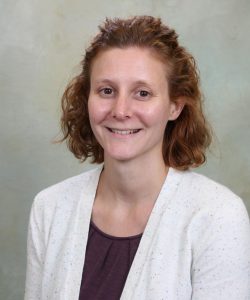
Current Position: Assistant Professor, West Virginia School of Osteopathic Medicine
Education: BS, Biological Science, Ohio University, 2009 (thesis w/ Susan Williams), MS, Marine Biology, College of Charleston, 2012 (Lou Burnett), PhD, EEB, Brown University, 2017 (Beth Brainerd and Tom Roberts)
Professional Experience: 2019 to present, Assistant Professor of Anatomy, Department of Biomedical Science, WVSOM. 2017-2019, Postdoctoral Researcher at University of California, Irvine with Manny Azizi
SICB Activities: Active SICB member since 2009 (13 presentations, 11 first-author), DVM D. Dwight Davis Award 2018, DVM-DCB regional meeting attendee (Northeast, SWOB, and Southeast), DVM student presentation judge
Other Memberships: American Association for Anatomy, Sigma-Xi, Poultry Science Association
Research interests: Comparative morphology and biomechanics of the musculoskeletal system, especially across time (growth, aging, and evolutionary time scales). Current projects include investigating the effects of aging on muscle shape change in a rat model and comparing hind limb bone morphology and biomechanical limits in domestic turkey strains with Aviagen Turkeys Inc.
Goals Statement: I am excited at the potential to contribute to DVM in a more impactful way, as SICB has been my home meeting since I was an undergraduate. I have greatly benefited from all of the opportunities offered to student members over the years, as well as the division’s promotion of classes, events, and positions available in our field of study. As DVM Secretary I would continue to communicate pertinent opportunities to our members, as well as increase the visibility of the current projects, publications, and symposia coming from our division. I hope to give back to the division that never fails to scientifically inspire me and to support our members’ professional development at all levels.
Vanessa K. Hilliard Young
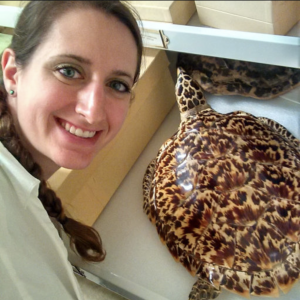
Current Position: Assistant Professor of Biology, Saint Mary’s College, Notre Dame, IN.
Education: BS, 2010 Erskine College; MS, 2012 University of Arkansas – Little Rock; PhD, 2017 Clemson University.
Professional Experience: 2017-present, Assistant Professor of Biology Saint Mary’s College
SICB Activities: Student Member of SICB (2012-2017); Active Full Member of SICB (2018-present); DVM & DCB Student Presentation Judge (2018, 2019), Broadening Participation Mentorship Program (2018, 2019), SICB Code of Conduct Ally (2020), DCPB Ask-An-Expert booth (2020), SICB Workshop Panelist: Panel on Research and Working at Primarily Undergraduate Institutions (2020)
Other Memberships: International Society of Vertebrate Morphology, Sigma Xi, American Society of Ichthyologists and Herpetologists
Research Interests: Evolutionary and functional morphology, comparative biomechanics, ethical practices and strategies to promote inclusion and diversity in classroom and research environments
Statement of Goals: I am excited and honored to be nominated for the DVM Secretary-Elect position! As a student, I was well supported by SICB, not only financially through the SICB GIAR and student travel awards, but also personally and professionally by this community of friends and mentors. Because of this foundation of support, I am eager to start giving back to SICB and getting involved in new ways. During my time as a SICB member, I’ve seen the Society make great strides in promoting a welcoming meeting environment. In this position, I plan to work with other officers to continue the Society’s progress toward making the SICB a safe, inclusive, and welcoming community for members of diverse backgrounds. I also see promotion of DCB-DVM regional SICB meetings as a way to connect with SICB members (or potential members) who are not currently attending national meetings. Finally, I look forward to supporting colleagues within DVM by collating and sharing scholarly and pedagogical resources, particularly for early-career members.

